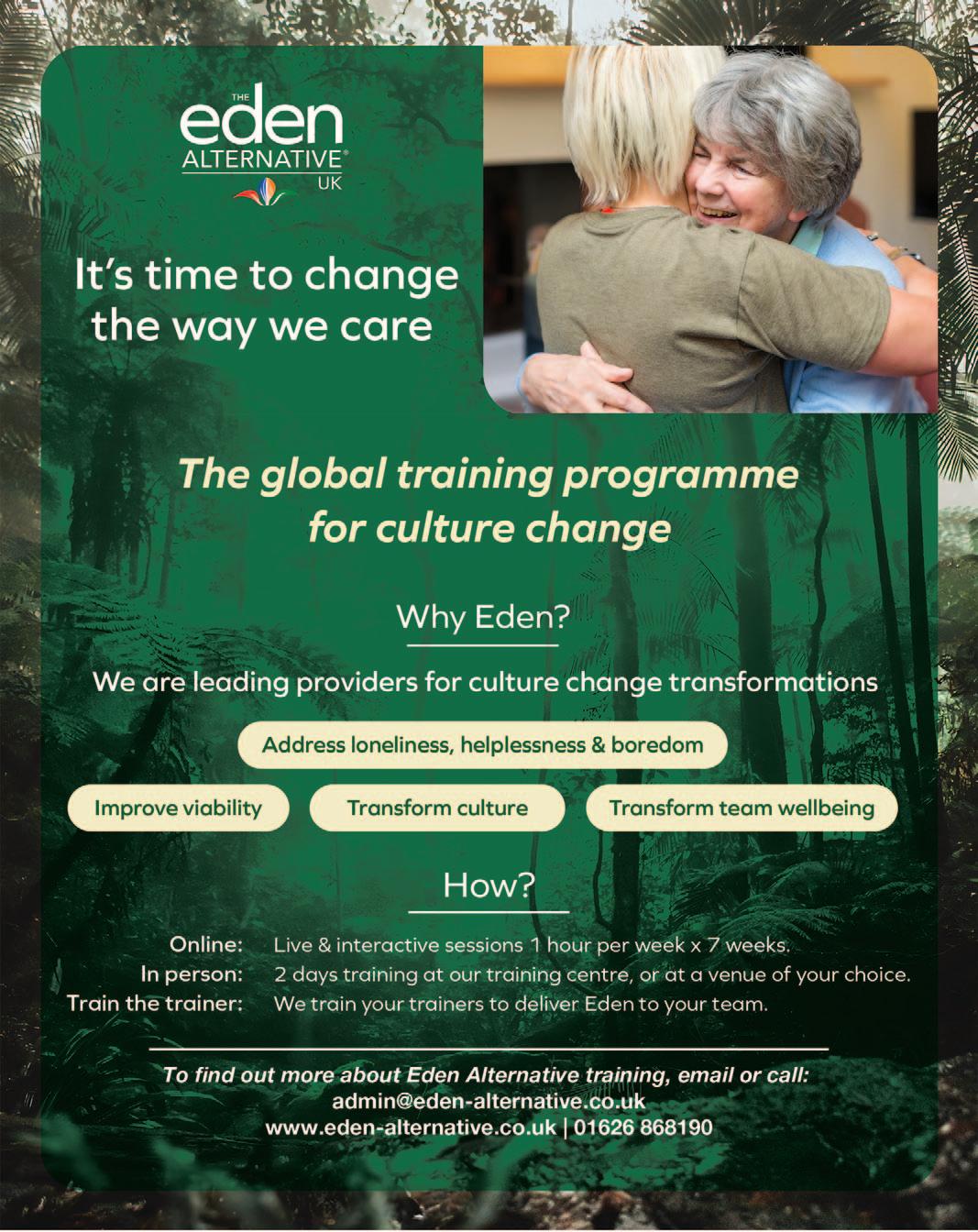















A major international research initiative has launched in a bid to curb the rising tide of Alzheimer’s disease with everyday lifestyle changes, as opposed to the use of “expensive drugs”.
The UK-based Alzheimer’s prevention charity Food for the Brain is behind the ambitious project, which aims to test over 20 million people worldwide to determine which combinations of diet and lifestyle factors have the most powerful effect on reducing the risk of dementia.
The launch follows the charity’s testing of more than 200,000 people in the UK and comes amid mounting evidence that more than 80% of Alzheimer’s cases could be prevented through simple, non-pharmaceutical interventions.
RATE INCREASING
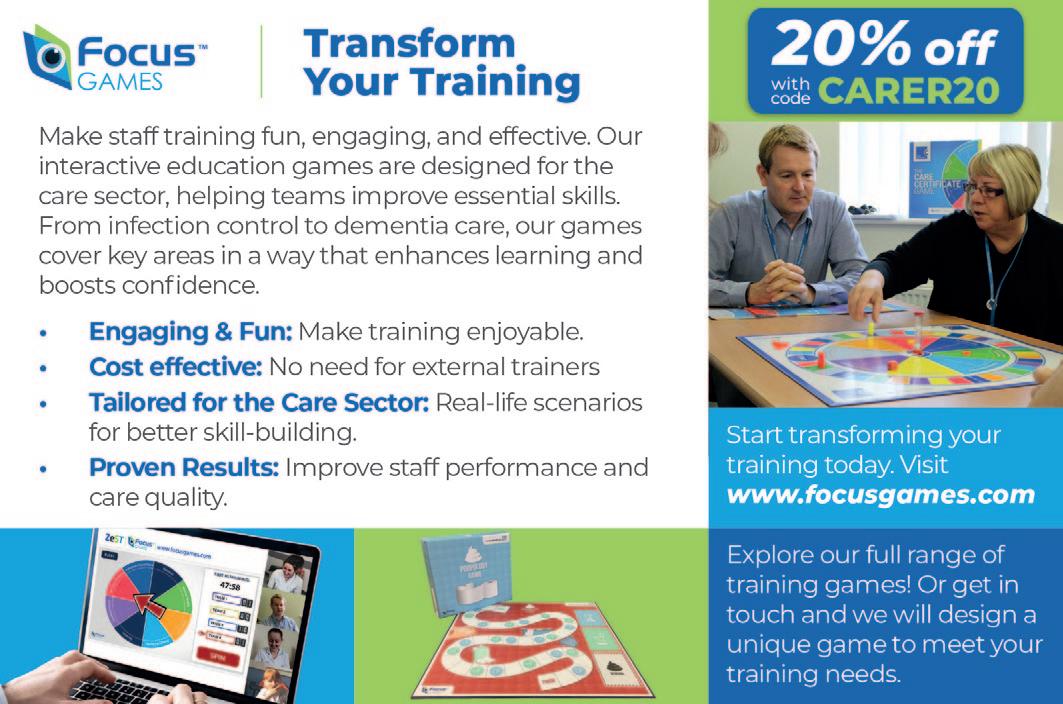
Every three seconds someone in the world develops dementia and the rate is increasing. Billions of dollars have been spent on the search for a drug that can block the damaging build-up of plaque in the brain that’s thought to be central to the disease. But the results are not impressive and the side effects include bleeding into the brain.
Now that gloomy picture is being transformed in a remarkable and surprising way. Rather than pinning our hopes on another new, powerful and expensive drug, mounting evidence suggests that such seemingly old-fashioned approaches as diet, lifestyle and environmental changes, could dramatically reduce the number of Alzheimer’s cases.
(CONTINUED ON PAGE 3...)
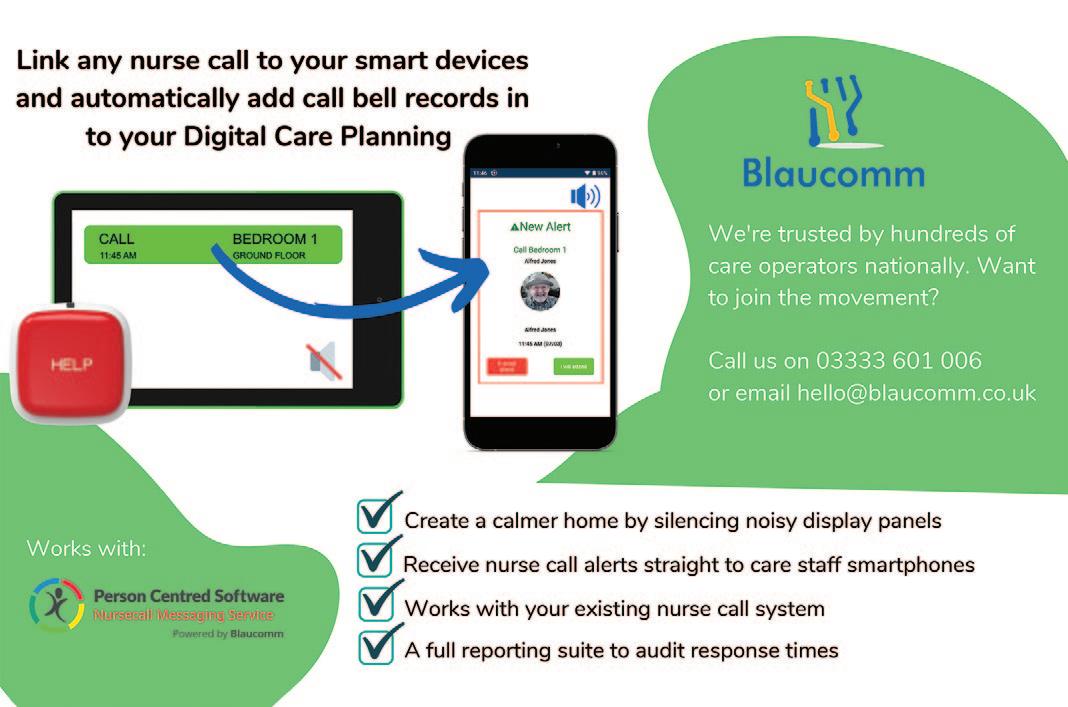
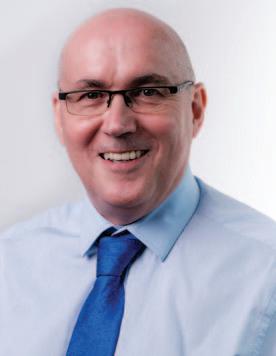
Editor
Peter Adams
This month’s Editor’s Viewpoint is a little shorter than usual, as I’m currently away from the office on holiday. However, I didn’t want to miss the opportunity to say a few words about our lead story — an important and potentially ground-breaking global dementia prevention research initiative, launched right here in the UK.
Regular readers may recall a thought-provoking piece we published some time ago from a leading dementia specialist. He discussed how certain lifestyle changes — healthy eating, regular exercise, avoiding smoking and illicit drugs — can help prevent dementia.
Crucially, he emphasised that these changes need to be adopted by the age of 34 in order to have a meaningful preventative effect. That insight has stayed with me, and it’s one of the reasons I’ll be following this new research initiative with particular interest.
The project seeks to prevent the onset of dementia without relying on what it terms “expensive drugs” — a bold goal. That said, it’s important to acknowledge the significant progress that has been made in recent years in drug development.
We reported recently on one such advance, and I was personally contacted by a medical expert from Singapore whose mother participated in an early trial back in 2018. She described the results as nothing short of remarkable.
Like so many, I’ve lost a loved one to this dreadful disease — my own mother, back in the early 1990s. At the time, dementia wasn’t widely recognised and was often dismissed as simply “part and parcel of growing old.” Yes, a doctor really did say that to me.
While the financial impact of dementia is widely discussed, the emotional
toll — watching someone you love slip away — is immeasurable.
As always, we’ll continue to follow and report on these developments as the research progresses. Until then, thank you for reading, and I’ll be back with a full column next issue.

I'd also like to remind our readers to be sure to read our VE Day 80th Anniversary supplement which we released last week. We were amazed and humbled by the hundreds of care homes across the UK who shared their moving stories and photographs of commemorations and once again I would like to offer my sincere thanks.. We have even added extra pages for stories that just missed the publication deadline!
From residents who vividly remember May 1945 to the beautiful tributes held in their honour, these stories remind us of the sector’s compassion, spirit and dignity.
Our heartfelt thanks to Matt and our graphics team, whose hard work has brought the special supplement in this issue to life.
I would also encourage our readers to sign up for our bi-weekly digital newsletter at www.thecareruk.com and follow us on social media for all the latest news.
I can always be contacted at editor@thecareruk.com


(CONTINUED FROM FRONT COVER)
An international Alzheimer’s Prevention Expert Team have calculated that over 80 per cent of them could be prevented in this way. A study in Holland last year found that having good levels of vitamin D, omega-3, found in oily fish, and B vitamins cut dementia risk to less than a quarter. Other changes can also have a beneficia effect, such as regular exercise, keeping mentally active and cutting down on sugar. This last change is especially effective since diabetics have double the risk of cognitive decline.
The next big challenge is to discover which combination of changes have the most impact? This is currently being investigated by the UK based Alzheimer’s prevention charity foodforthebrain.org
This week it launched global research project to discover the hardest hitting combinations of prevention steps having tested over 200,000 in the UK. They are now inviting people around the world to complete a free, online diet and lifestyle questionnaire and a cognitive function test.
The project, headed by Oxford University-trained neuroscientist Dr Tommy Wood, Associate Professor at the University of Washington, aims to test over 20 million people - a million each from the UK, Germany and Poland, a similar number from the US, Canada, Brazil, Japan, and 10 million in China, which has the world’s highest prevalence of dementia.
PREVENT 80% OF CASES
In China the project is supported by the China National Health Association and the former Minister of Health, Gao Qiang. “We must popularise prevention,” he says. “With 300 million people over 60, this has to be our focus. Foodforthebrain’s initiative is the way forward. It is something everyone can do, right now for themselves.”
China’s leading prevention expert Professor Jin-Tai Yu, from Fudan University in Shanghai adds: “It may be possible to prevent up to 80% of dementia cases if all known risk factors are targeted.’ The ones he considers especially effective are B vitamins which reduce levels of a toxic amino acid found in the brain called homocysteine. High levels can damage both brain cells and blood vessels.
His research, together with results from Oxford University’s leading prevention expert Professor David Smith, who has been analysing data from the UK Bio Bank, has already shown that up to 73% of dementia cases can be prevented[2] even without factoring in the B vitamin and omega-3 benefits.
“Our research at Oxford found almost nine times less shrinkage in the Alzheimer’s associated areas of the brain in those taking B vitamin supplements who had raised homocysteine[3], which is common among over 60+ year olds, and in early signs of dementia.” says Professor Smith. President of the China National Health Association, Wu YingPing, believes it is the combination of both diet, nutritional supplementation and lifestyle that can impact dementia prevention in the ‘silver-haired’ community. “It is education, rather than medication, that we need and foodforthebrain’s global campaign is something we fully support to help achieve this.”
10,000 DOCTORS
In the UK, Japan and Brazil a task force of over 10,000 doctors are being trained to enrol their patients in the ‘citizen science’ charitable
project which is being funded by individuals, not vested interest companies.
In the UK a group of GPs, part of the Public Health Collaboration, have joined the task force to help drive the project to hundreds of thousands of patients across the UK. Former GP and Chair of the Public Health Collaboration, Dr David Jehring, says “personalised digital health education such as this is the way forward. No drug treatment has yet produced a clinically meaningful effect, with awful adverse effects. We have to face the reality that dementia can only be prevented by tackling that ‘perfect storm’ of 21st century diet and lifestyle that create cognitive decline in the first place. It is not likely to be solvable by medication.”
FREE ONLINE TEST
The free online test, which is available in English, Chinese, Japanese, Arabic, Portugese, French, German and Polish, also invites participants to submit a pinprick of blood via a home test kit, to measure vitamin D, omega-3, B vitamin, antioxidant and blood sugar status.
Professor Peter Garrard, Director of the Dementia Research Group at St George’s, University of London, says “It is vital that functional biomarkers such as homocysteine and omega-3 are measured in this research because these can be changed with nutritional interventions and are associated with reducing risk.”
“The purpose of this global campaign is to collect diet, lifestyle, biomarker, and cognitive function data on an unprecedented scale. With these data, we hope to discover which lifestyle changes have the maximum likelihood of preventing cognitive decline early enough to minimise an individual's dementia risk in the future.” Says Dr Tommy Wood, who is heading the research.
“CITIZEN SCIENTIST”
Anyone can take part and become a ‘citizen scientist’ by completing the free online Cognitive Function Test at www.foodforthebrain.org which then advises individuals what changes to make to help reduce their future risk. All data collected is anonymised for research purposes. The data will then be available to prevention researchers around the world.
“Our aim is to discover the simplest changes that have the most impact on cognitive function to prevent this devasting disease, then share that information with the public and public health experts advising governments around the world.” says the charity’s founder Patrick Holford and author of a new book Alzheimer’s:Prevention is the Cure.
“Less than one in a hundred cases of Alzheimer’s is caused by genes. That means that, potentially, 99% of cases of Alzheimer’s are preventable”
This new initiative comes at the same time as the Care Quality Commission’s (CQC) released its report on the experiences of individuals with dementia interacting with health and social care services, and how these services are responding.
Based on direct engagement with people living with dementia and their loved ones, as well as analysis of a range of information CQC holds the report found that;
People did not always feel there was ongoing care for people living with dementia and that they had to seek out community charity support
groups themselves; and
Health and social care staff do not always understand the specific, personal care needs of people with dementia and how care environments, like hospital wards and care homes, sometimes do not support people’s wellbeing.
However, the report also found:
• How good care for people living with dementia is provided in considered environments by well-trained, compassionate professionals who understand the person and how best to relate to them;
• That people who had good support from their primary care services during their dementia diagnosis and ongoing support described the positive effect this had on their wellbeing; and
• That when a GP provides support and understanding of concerns during an assessment, it can help improve the person’s experience and lead to a more timely diagnosis.
CQC engaged with over 50 stakeholders with interest and expertise in the care and treatment of people with dementia, and analysed feedback, surveys and other data to inform this report. The aim was to inform the development of CQC’s dementia strategy and understand from their point of view what the key issues are facing people living with dementia, their carers and health and care services.
DEVASTATING EFFECT
James Bullion, Interim Chief Inspector of Adult Social Care, Care Quality Commission said: “Dementia can have a significant and sometimes devastating effect on so many people’s lives. This report shines a light on the challenges that people with dementia and those who care for them face when accessing and using health and social care services. It also highlights the practice that some services are taking to improve people’s lives and those who care for them. We will use the findings from this report to develop, alongside people with lived experience, providers and other stakeholders, a definition of what good, joined-up dementia care looks like so that we can apply it to all areas of our regulatory activity.”
URGENT OVERHAUL
Jen Keen, Alzheimer’s Society’s Associate Director of Evidence, Policy and Influencing, said:
“Around one million people are living with dementia in the UK, making them one of the biggest groups relying on health and social care, so we welcome this new report and CQC’s commitment to developing a dementia strategy.
“We know that dementia care needs an urgent overhaul in the UK. This report paints a stark picture of long-standing issues which cannot be ignored including staffing challenges, a lack of dementia-specific training, and pressure on unpaid carers. It also highlights some shocking findings notably a concerning disparity in the rates of abuse notifications in care homes where the majority of people were living with dementia.
“It’s vital that the findings from this work help to drive real improvements to dementia diagnosis and care, including a statutory duty for dementia-specific training for all care providers registered with the CQC, as well as a long-term social care workforce strategy. We want to ensure people living with dementia can access safe, affordable, highquality care delivered by a well-trained and fairly paid workforce.”
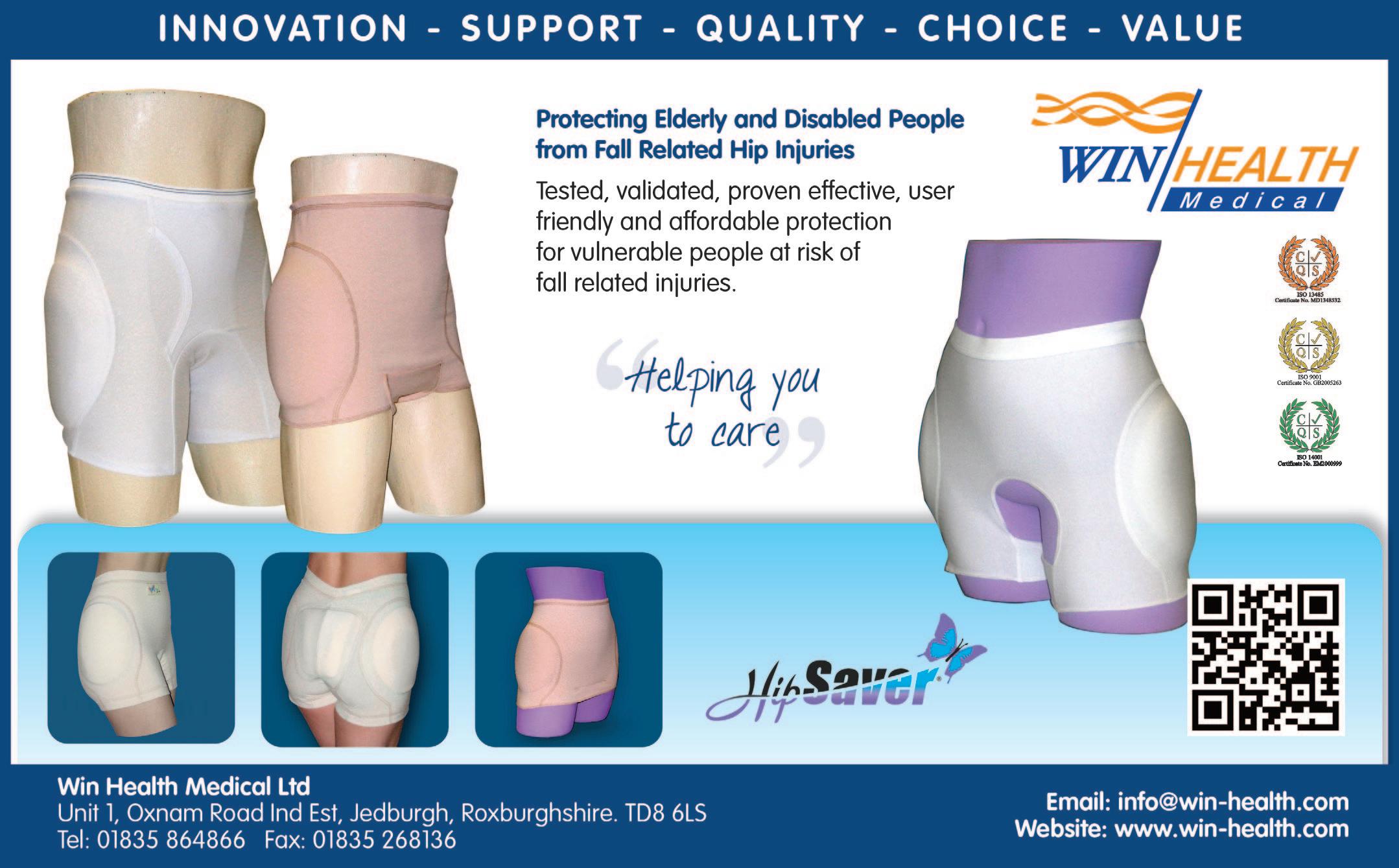
By Stephanie Snow, Chair of CIPR Health Group (www.cipr.co.uk) and
MD of Real Chemistry (www.realchemistry.com)
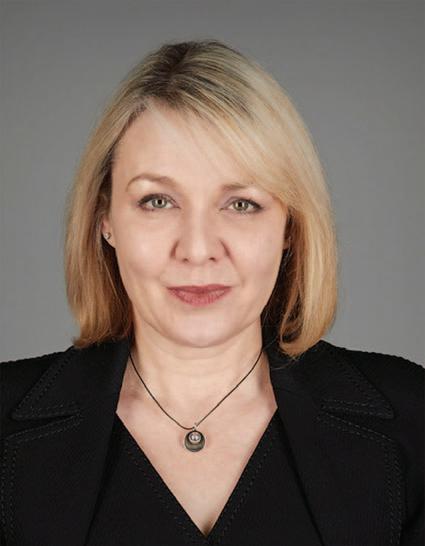
Imagine it’s your first day in a new job. But instead of starting out getting to know your colleagues and the value they bring to your organisation, you simply announce that you’re sacking half of them.
While that may sound like something currently happening on the other side of the Atlantic, it’s actually happening a lot closer to home.
Referred to as the “50% bombshell” by the Health Service Journal (HSJ), a recent NHS England announcement has called for integrated care boards (ICBs) to prioritise the reduction of staff in assurance, regulatory, performance management, communications and engagement. With 25,000 roles at risk, the decision has understandably been met with a mixture of apprehension and anger among NHS staff and leaders.
It also reflects a very short-sighted view of the value functions like communications bring. Effective communication is not a luxury – it’s a cornerstone of effective healthcare delivery, from greater understanding of public health messaging on smoking or diet, to knowing when and how to access vaccination services.
WHY COMMUNICATION MATTERS IN HEALTH AND SOCIAL CARE
The role of communication within the NHS and broader health and care sectors often flies under the radar but nevertheless has significant impact. From near universal recognition of 5-a-day messaging on healthy eating, to crashing the NHS Blood and Transplant website with new blood donor sign-ups, public understanding of key health initiatives has largely been the result of successful, well thought out strategic comms programmes, delivered by professional communicators.
Communications teams have a pivotal role in shaping public perception of organisations like the NHS and in sharing the needs of its staff and users. They are also vital in crisis management, providing critical updates and information during health emergencies – none more so than during the COVID-19 pandemic.
LESSONS FROM THE PANDEMIC
A pandemic where none of us knew about social distancing or where to get a COVID vaccination would
have been a very different experience. The pandemic underscored the importance of clear comms in disseminating public health messages, countering misinformation, and ensuring that accurate and timely information about vaccination reached members of the public.
It’s worth remembering that in the absence of clear and coordinated communication, misinformation and disinformation can spread rapidly – so much so it’s often said that a lie can travel halfway round the world before the truth gets out of bed.
As with the social care sector, many NHS communications staff worked tirelessly through the pandemic and made sure not only that NHS healthcare staff were kept up to date with developments, but that the general public were too. And in doing so made decision-makers like Chris Whitty, Patrick Vallance, Jenny Harries and Jonathan van Tam household names.
Cutting comms roles therefore not only risks eroding the capabilities of the NHS to manage day-to-day operations but also its ability to respond effectively in times of crisis.
The implications of this decision extend beyond immediate operational challenges such as who will fulfil statutory engagement exercises. It puts many of the NHS’s wider strategic objectives at risk, including its ‘three-shifts’ of digitisation, more community-based care and a greater focus on prevention.
We can all agree that duplication of any roles in a reorganised service should be avoided. But in the politically-charged landscape of healthcare, the ability to effectively communicate the rationale and benefits of health and care system change is crucial.
Communications professionals serve as a vital bridge between those who make policy and those the policies affect. Without that bridge healthcare policies risk being misunderstood, unsupported and poorly implemented.
The recent revelation that UK government ministers did not assess the impact of these cuts before proceeding to announce them is concerning, and many comms professionals in the service believe this decision could negatively affect both patient outcomes and public confidence in the NHS.
So here’s an alternative view: at a time when public trust in the NHS is at an all-time low, instead of pulling a percentage for headcount reductions out of thin air, how about considering the optimal structure of the health service before determining how to properly staff it – then communicating that to the millions of us waiting to see improved NHS services?
Now wouldn’t that have been a better message to land during someone’s first day in the job?
This Dementia Action Week (19th – 25th May), specialist dementia nursing charity Dementia UK will launch the second series of its podcast ‘My life with dementia,’ hosted by charity ambassador and awardwinning journalist and podcaster, Marianne Jones.
The second series follows a successful first series last year, hosted by actor Jim Broadbent.
The podcast features the stories of people who have experienced the condition themselves, people living with a diagnosis, people who have found themselves in a caring role they never expected, and people who are grieving the loss of a loved one.
Each story episode will be followed by an episode with practical advice from the charity’s dementia specialist Admiral Nurses. Through this, listeners will gain a deeper understanding of the condition from multiple perspectives – as well as invaluable insights, empathy, and hope. One in two of us will be affected by dementia in our lifetime. Either by caring for someone with the condition, developing it ourselves, or both. However, too often the voices of those impacted by the condition go unheard.

Michaela Williams features in the new podcast series. When her grandmother, Vanda, was diagnosed with vascular dementia, she felt her world come crashing down. She set up The Spring Bleau Dementia Café in her beloved grandmother’s honour to help support other families facing dementia.
She said:“I tell everyone that comes to the café to use Dementia UK’s Admiral Nurses. It’s a service that’s there, it’s a service that’s free and it’s a service that’s vital for helping people move through their journey with dementia. That is why I am taking part in Dementia UK’s new podcast. I want to share my story with others and bring attention to the brilliant services available through the charity.”
Marianne Jones is a journalist and podcaster with a career spanning over three decades in national
women’s lifestyle media. She is best known for her role as former editor of The Telegraph Saturday Magazine and Sunday Telegraph Stella Magazine. In addition to writing about fashion and lifestyle, Marianne has also spoken openly and honestly about her experience of dementia following her late mum Maria’s diagnosis of vascular dementia. Celebrity ambassador, Marianne Jones said: “I’m thrilled to be involved with Dementia UK’s new podcast series. It is important to listen to the voices of those who are living with dementia and those who care for and supporttheirloved ones, as too often they are not heard.
“Half of the UK population will be affected by dementia in some way during their lifetime – my lovely mum lived with it for five years and it affected the entire family. A podcast is such an easy, comfortingway to absorb information that is sometimesdifficult and emotional. I hope that by listening to the stories, shared experiences and advice on the podcast, it will help to take away some of the fear and stigma.”
Dr Hilda Hayo, Chief Admiral Nurse and CEO at Dementia UK, said: “We are excited to be launching our second podcast series, shining a light on the stories of people impacted by dementia. We know that too often families with dementia feel isolated and alone, without the support they need. We hope the new series will allow people to find connection through shared experience as well as raise vital awareness of the challenges facing families with dementia today.”
The second podcast series will be available on all major podcast platforms from Wednesday 21st May. Subscribe to ‘My life with dementia’ on Spotify, Apple Podcasts, or wherever you get your podcasts to listen to new episodes as soon as they come out.
You can find out more about the podcast on the Dementia UK website: dementiauk.org/dementia-podcast/
On Sunday, 11th May, Kailash Manor Care Home warmly welcomed the Sukh Shanti Group for a joyful and spiritually enriching celebration of Narsimha Jayanti. This special event, held in collaboration with the group, brought together residents, their families, and members of the local community for an uplifting afternoon of devotion and connection.
This gathering reflects Kailash Manor’s ongoing commitment to holistic wellbeing by embracing both religious and cultural engagement. The Sukh Shanti Group led a vibrant devotional program featuring traditional bhajans and kirtans, performed by skilled musicians on harmonium and tabla, accompanied by soulful vocalists. Their heartfelt performance created a serene, joyous atmosphere, with many residents smiling, clapping, and singing along.
The experience resonated deeply with residents, shared it evoked fond memories and offering a sense of peace, unity, and spiritual renewal.
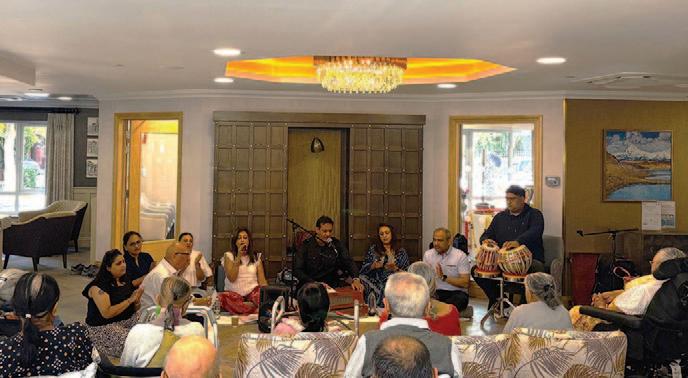
The Sukh Shanti Group reflected warmly on their visit, stating: “A beautiful Sunday morning spent at Kailash Manor Care Home… it was our first visit here. We felt so warmly welcomed by the staff and residents. So many smiles, so much blessing and kind words. We felt so motivated. We look forward to more visits.”
Payal Chhabra, Support Manager at Kailash Manor, added:
“Religion plays a vital role in our residents’ lives, offering comfort, identity, and peace. Events like these bring that connection to life, especially through music and shared devotion.”
This marks the beginning of a valued partnership between Kailash Manor and Sukh Shanti Group, aligning with the care home’s vision to create a nurturing environment where cultural and spiritual traditions are honoured and celebrated - rooted through community, culture, and care.
Actor Jim Carter handed in a petition to Westminster this afternoon calling on government ministers to fix end of life care.
The petition, run by the UK’s leading end of life care charity, Marie Curie, has 81,568 signatures and calls for urgent investment into community end of life care services and a strategy for the future of palliative care.
This comes ahead of the release of the 10 Year Health Plan and Spending Review, expected in the next few months. Both present vital opportunities to improve the support available for people affected by terminal illness.

During his visit, the Downton Abbey star also chaired a roundtable in parliament to highlight to MPs and policymakers some of the key gaps in current end of life care provision.
Campaigners and Marie Curie frontline staff took part in the round table, sponsored by James Frith MP, and highlighted services that are overstretched, underfunded and overlooked. A lack of joined up palliative and end of life care is leading many terminally ill people to spend their final weeks stuck in ambulances, hospital corridors and overwhelmed Emergency Departments.
MARIE CURIE’S PETITION IS CALLING ON THE SECRETARY OF STATE FOR HEALTH AND SOCIAL CARE AND THE CHANCELLOR TO:
• Establish a ‘transformation fund’ for new, innovative end of life care services.
• Invest in the workforce, with fair pay and better training for those caring for dying people across the NHS and hospice charities.
• Work together on a sustainable, long-term funding plan – so that wherever you live, whatever your illness, you’ll be able to rely on good care right to the end.
These changes would not only future-proof the workforce and ensure more dying people receive the right care when they need it, but also ease the strain on the wider NHS and help the UK Government achieve their ambition to shift more care from the hospital to the community.
Marie Curie Ambassador Jim Carter said: “I’ve been a Marie Curie Ambassador for almost a decade now, and during that time I have been shocked to learn about some of the appalling gaps in end of life care.
“It’s tragic to know so many people are dying in avoidable pain, without the care and support they need – it’s clear that end of life care is in crisis.
“How we care for dying people matters. It matters to us all. The government must sit up and listen, to Marie Curie, and to the tens of thousands of people who have signed this petition.
“They must urgently invest in palliative and end of life care and make it a priority in the upcoming 10 Year Health Plan.”
Marie Curie Policy Campaigns Manager, Frankie Wilks said: “An NHS fit for the future must be fit for dying people too. Right now, that’s not the case.
“Things will only get worse as demand for care increases – it’s estimated by 2048 that 147,000 more people will need palliative care every year. There’s currently no realistic plan by any government across the UK to address this challenge.
“That’s why we’re urging the Chancellor and Secretary of State for Health and Social Care to recognise this oversight and prioritise end of life care in the Spending Review and 10 Year Health Plan.
“We all want to have a good death – but that will only happen with government investment in end of life care.”
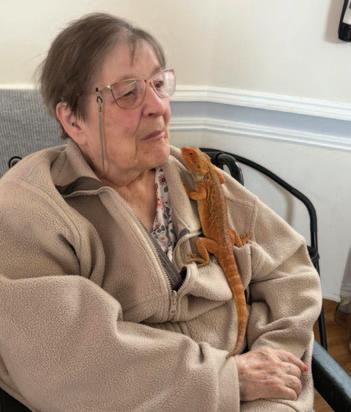
The official opening of the newly revitalised Norton Lees Care Home in Sheffield by independent provider Agincare is the family-owned care group’s first in the north of England.
This expansion builds on Agincare’s national presence and ethos of delivering high-quality, person-centred care, including home care, livein care, care and nursing homes, supported living and not-for-profit children’s services.
The official ribbon was cut by Adam Luckhurst, Director and eldest son of Agincare’s founder Derek Luckhurst, alongside residents Doreen and Audrey, pupils from Mundella Primary, and the care home team.
“Welcoming Norton Lees into the Agincare family is a real honour,” said Adam. “Wherever we go, we raise standards, build trust, and become a thriving part of the local community. Norton Lees will be no different.”
The Noton Lees community celebrated as residents, families, schoolchildren, health and social care professionals, and neighbours were treated to a warm welcome featuring a sparkling drinks reception, a delicious home-cooked buffet, and a performance by the Mundella Primary School choir.
A charity raffle added to the feel-good atmosphere, raising funds for the school’s PTA and cementing Norton Lees’ commitment to its community connections.
New Home Manager Phill Seddon, a qualified nurse with two decades of health and social care experience, led the celebrations with his team.

“It’s been a fantastic day,” said Phill. “We’re thrilled to begin this new chapter alongside our residents, families, and fantastic care team. My focus is on creating a stable, supportive, and joyful home – where every resident feels valued and truly at home.”
Purpose-built to accommodate up to 80 residents, Norton Lees Care Home offers personalised care in a peaceful residential setting, welcoming both privately and publicly funded residents.
Guests on the day shared heartfelt reflections on the positive changes. Margaret Price, niece of resident Doreen, said: “My Auntie Doreen has been here for two years, and I’ve seen a huge increase in the mood and togetherness at the home. The carers are amazing and you can tell that she feels settled, it’s her home and you can sense the friendships among residents.”

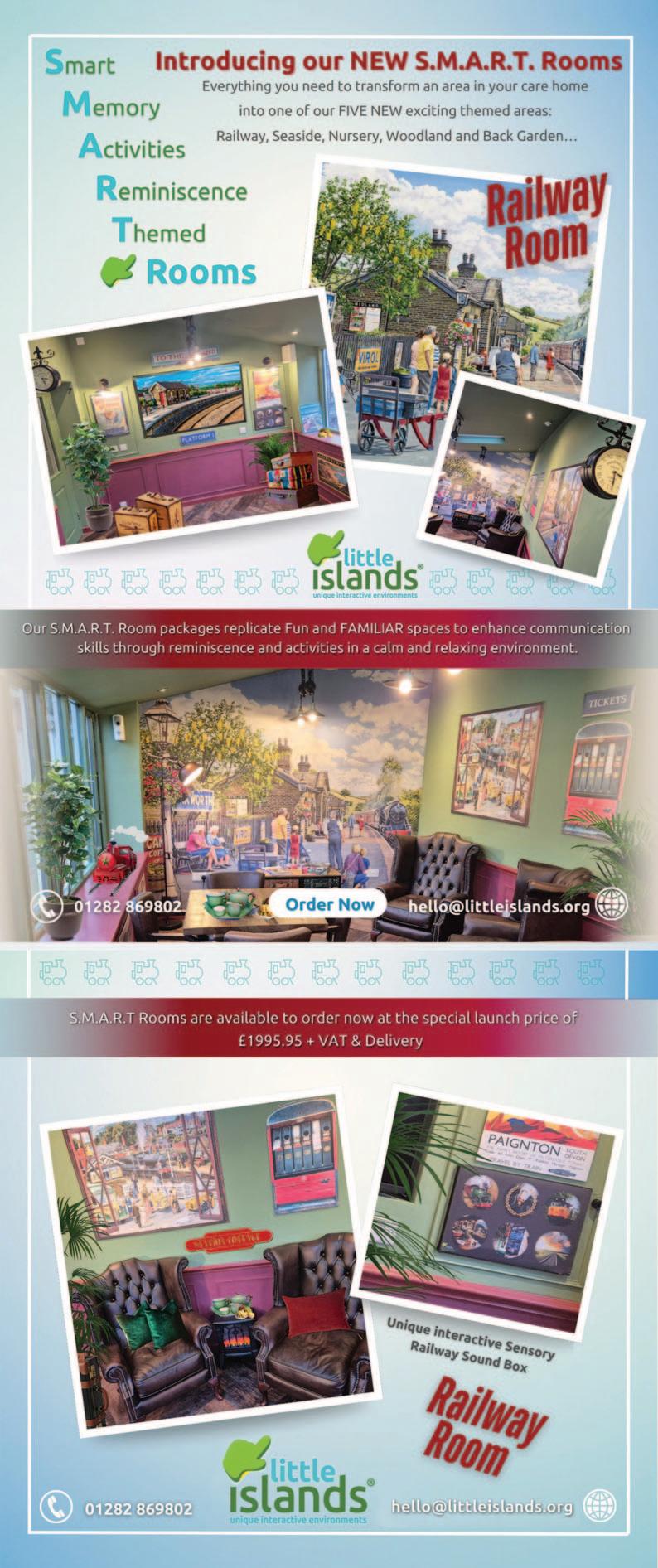
Social workers have written to health ministers for all four UK nations, urging them to address the UK mental health crisis through measures to better support the profession.
The letters urge each government to:
• Launch a campaign that recognises the hard work of social workers and that promotes the profession as a viable career
• Adopt a common framework in consultation with all four nations, which covers practices, pay and conditions (including housing)
The letters were sent by the Social Workers Union (SWU). SWU claims that scapegoating and negative portrayal of the profession by successive governments has led to significant challenges with recruitment and retention of social workers, with some posts going unfulfilled for more than a year.
A survey of 1,375 current and former social workers by Social Work England last year found that two fifths (41%) said their morale was low, compared to a quarter (24%) of those surveyed in 2020.
Meanwhile, according to the NHS Confederation, neglect of community mental health services and lack of suitable hospital beds is fuelling A&E waits of up to 80 hours for some mental health patients.
Social Care TV continue to fly the flag for highest quality online training for Health and Social Care, after unwavering commitment to excellence within the sector for over 25 years.
Their widely-used health and social care specific courses - produced and edited in-house - are expertly designed to make learning engaging, informative and, therefore, highly effective for learners.
Accredited by CPD, training with Social Care TV is quality assured, comprehensive and relevant.
As one of the leading online training providers in the health and social care sector in the UK, they supply training for local authorities, recruitment agencies, care home groups and other health and social care organisations.
Their feature-rich Manager platform has further been enhanced this year with the introduction of several new Manager tools designed to aid with compliance, reporting and trainee management. Features now available include:
• Compliance Dashboard with Traffic Light System
• Downloadable Trainee Matrix
• Custom Bundles
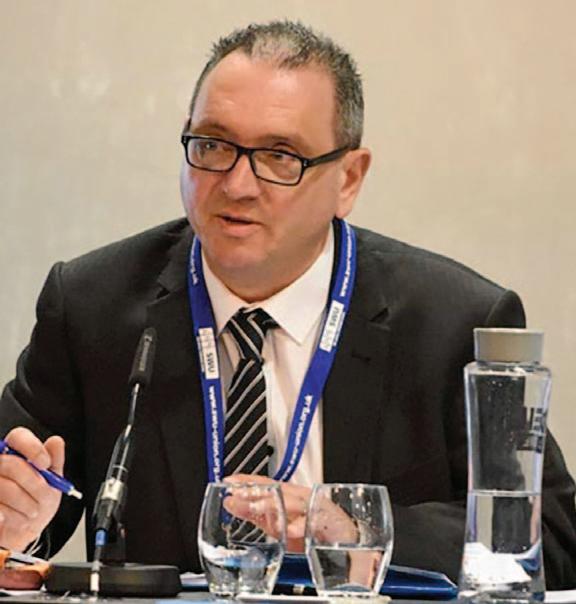
• Trainee Groups
• Bulk Uploads
• Bulk Enrolment Onto Custom Bundles
• Course Enrolment Notifications
• Course Reminders
SWU adds that investing in community care and frontloading the adult mental healthcare workforce could save the NHS time and money and help to reduce pressure on A&E departments.
The news coincides with Mental Health Awareness Week, from 12-18 May, which this year celebrates the positive communities that support our mental wellbeing.
John McGowan, General Secretary of the Social Workers Union, said: “All social workers want to do the best they can for the communities they serve. Many believe that the public is fed negative stories about social workers and their failings though, which leads to a negative perception of the profession. It shouldn’t surprise us then that we have major challenges filling vacant roles and a constant stream of hardworking people leaving the sector.
“Our efforts are also being hampered by a lack of funding for community care and increasing demand for suitable hospital beds.
“Each government can play a vital role in helping to make the profession an attractive route for people who want to make a difference in their local communities. We’re also asking them to invest more in community care, which combined will save the NHS money and reduce pressure on our hospitals.”

SCTV regularly release new and updated high-quality courses. Previews for all courses can be viewed at: Courses - Social Care TV (www.social-care.tv/courses/course-details)
To enhance their learners' experience further they have created free, comprehensive subject-specific workbooks which were rolled out across all courses this year. This unique addition provides excellent value and a fully robust training package.
SCTV are delighted to have won several awards over the last 12 months including:
• Best Online Health and Social Care Learning Platform’ – Global Health & Pharma Social Care Awards 2024
• ‘CPD Provider of the Year’ – The CPD Awards
• Social Care Training Provider of the Year’ - Corporate Livewire Innovation & Excellence Awards
Gold standard customer service remains a core staple of the business, with expert support and guidance provided via telephone, email and live chat. They place great importance on the training and development of their customer services team to ensure that they continue

to provide a personal, friendly and knowledgeable service.
Their much-loved ‘Care Worker of the Month’ award recognises and rewards the selfless dedication shown by care workers across the UK and they proudly support the Care Workers Charity who aim to advance the financial, professional and mental wellbeing of social care workers.
SCTV believe that high quality training should be accessible to all and offer regular, free courses which include a digital certificate accessible via their website.
The company stands behind a clear mission and set of values which define their ethos and their dedication to both the Care Sector and those within it. These can be viewed at: Mission Statement and Core Values - Social Care TV
(www.social-care.tv/about/mission-statement-and-core-values)
Social Care TV are a responsible business, committed to ensuring that their actions have a positive impact on their employees, customers, the wider health and social care community and the environment.
Above all, SCTV consistently strive to make a meaningful contribution to the wellbeing of those being cared for.
For more information please see: Homepage - Social Care TV (www.social-care.tv) and see advert on the facing page.

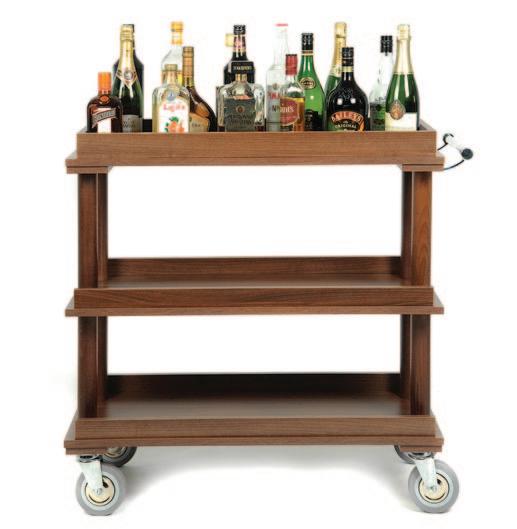
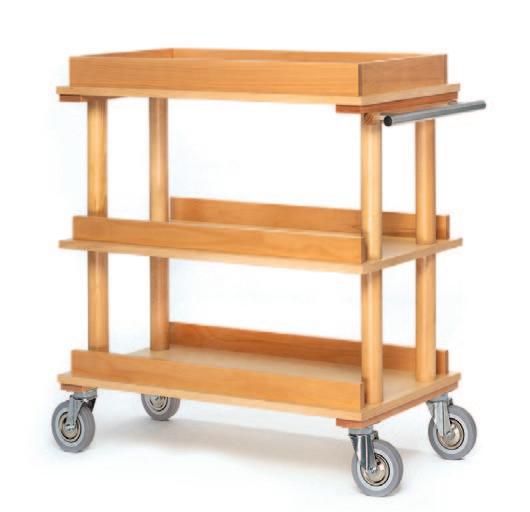
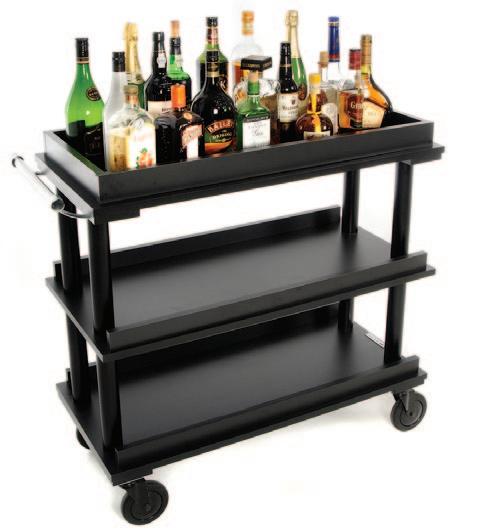
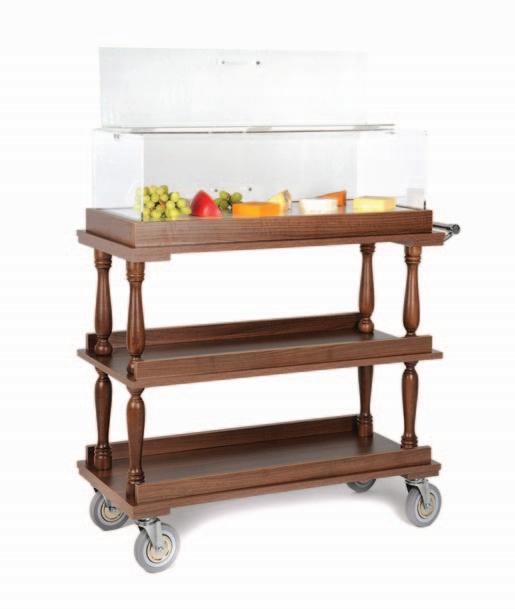
Care homes will close and lives will be put at risk in Wales as a result of the “half-baked” immigration crackdown on social care workers.
That’s the warning from sector champions Care Forum Wales (CFW) who say the plan to end the recruitment of care staff from overseas will have a devastating impact on care homes and domiciliary care companies – with catastrophic consequences for the NHS.
The announcement by Home Secretary Yvette Cooper came at a time when the sector was already reeling from increases in National Insurance contributions and wage rises, which amount to a 37 per cent hike in costs.
CFW raised the issue as a matter of urgency at a meeting of the Five Nations group, which represents social care providers in Wales, England, Scotland, Northern Ireland and Eire, where the condemnation was unanimous.
Both organisations are writing to Prime Minister Kier Starmer and the Home Secretary urging them to reverse the overseas recruitment ban for social care.
Mario Kreft MBE, the chair of CFW, said:

“It really is a half-baked, ill-thought through idea that’s ignored commonsense for the sake of short-term political expediency.
“Calling these social care heroes low skilled is an affront. It’s shocking because we’re talking about some very special people who are highly skilled at caring.
“To treat them with such disdain as the Home Secretary has done is an absolute disgrace.
“We live in ageist society where older, vulnerable people are not valued.
“As a result, these social care workers are at the wrong end of the salary scale because of the model that local authorities and health boards apply to commissioning publicly funded social care services.
“It’s particularly damaging here in Wales because most people who need social care – whether it’s in a care home or in their own homes –are publicly funded.
“If you lose 10 per cent of your workforce it’s going to cause major issue because you need so many people.
“Most council jobs are 9 ‘til 5 but social care doesn’t work like that – it’s 24/7, 365 days a year.
“This will inevitably lead to care homes closing and domiciliary care companies going to the wall.
“If you have problems in terms of quality because you haven’t enough staff, you’ll get closed down anyway by the regulator.
“At the very least, domiciliary care and care homes will have to reduce services which will cause a backlog into the NHS.
“It is so counterintuitive. At a time when you’re hitting businesses with a 37 per cent increase in National Insurance to raise £20 billion for the NHS, the UK Government is harming the social care sector that keeps the NHS going. They are shooting themselves in the foot. It defies logic.
“All of the work we have done over the past 20 to 30 years to professionalise the sector, working in partnership with the Welsh Government and Social Care Wales, they have put a match to it overnight.
“If we were able to recruit sufficient staff locally we would. We certainly wouldn’t go to the extra expense of recruiting international workers. It can cost £10,000 per person.
“All of this is politically driven. It’s certainly not driven by reality. This is knee-jerk politics of the worst kind in an effort to confront a right-wing agenda.
“Things are bad enough now but even more people won’t be able to get into hospital when they need to and down the line it’s something that could cost lives.”
CFW treasurer Sanjiv Joshi was equally shocked and said:
“International recruitment of care workers has been a lifeline for our sector and the NHS as well.
“As we’ve realised since the pandemic, the NHS and the social care sector are totally intertwined and the backbone of both these very vital services are the care workers and we have a very small pool to recruit from in Wales.
“It is absolutely essential that we are able to supplement our domestic workforce with international recruitment.
“It’s ironic that the country has just made huge financial sacrifices with higher taxation to try and improve the NHS and the social care offering and this is going to do the opposite.
“The Government’s claim that not enough is being done to recruit workers from this country is just a false narrative.
“International recruitment has been going on in the social care sector and the NHS for the last 25 to 30 years .

“What happened was that the rules for non-EU recruitment were tightened because we had an EU workforce prior to Brexit.
“The rules were subsequently relaxed because as a result of Brexit and the pandemic we lost a large pool of our workforce.
“Throughout recruitment has always focused on the domestic workforce but our working population is decreasing relative to the growing demands of our ageing population.
“This is making a nonsense of the current rules. If we want to recruit somebody from overseas, we already have to demonstrate that we have tried our best and exhausted the domestic pool of local people and incountry overseas staff.
“We only recruit overseas staff when we have to. It’s a lot more expensive to hire people from overseas so we only recruit internationally when there is no other option.
“The language in calling them unskilled is disgraceful and an insult to our existing workforce when we have been working so hard to professionalise the sector and to raise the esteem of our fantastic staff.
“This unwelcoming approach is going to make our current overseas staff feel incredibly uncomfortable.
“Without international recruitment, it’s going to be impossible to plug the gaps today and going forward the situation is going to get worse.
“Recruiting international workers for the social care sector and the NHS are going to be essential if we are going to deliver these vital services.
“We always try and recruit locally first, then we look at the overseas pool of people who are already here and only then will we look to recruit from overseas.”

By Sandra Schembri, CEo at Nordoff and Robbins and Chair to The Power of Music Consortium for Health and Wellbeing

There are nearly one million people living with dementia in the UK. Yet the number of people impacted is much larger, whether as one of the 700,000 unpaid carers or as a family member of someone living with disease.
It is also one of the most expensive conditions to treat in the UK. On average, it costs £42 billion a year. Sadly, most of these costs are shouldered by people with dementia and their families. Without action, this could rise to £90 billion a year by 2040. Music can help reduce this burden.
The Power of Music Consortium for Health and Wellbeing, which I chair, is a growing collective of organisations advocating for music’s use to help treat a range of conditions, including dementia. Music has a unique power of helping people living with the condition. For example, it can help with symptoms such as agitation, stress and anxiety. But it's more than that, it's also accessible and it's cheap compared to the cost of medication and care. For example, the use of personalised playlists has proven to reduce the use of psychotropic medication, restraints, stress and distress and wandering.
Music in care settings can also have a powerful ripple effect that spreads beyond the individual and money saving. Studies show it has a positive effect on care staff and family members too. It resonates from person to person within the session, beyond the person’s time in session time and out into the care home. I’m lucky, I get to see the impact of music for health in my day job as CEO of Nordoff and Robbins Music Therapy. For example, with Marion who has a diagnosis of dementia. She was often consumed by a need to
carry out tasks she would have completed when she used to work as a nurse, her inability to carry out these tasks means she is often in distress. However, when she heard our music therapist playing piano, she joined in rather than search for her next task. Making music has given her a new occupation which allows her to be present and connect with others, something she struggled with before. Music is enabling her to live well, something we all deserve.
It is only by sharing stories like Marion’s that we can bring music’s transformative power to more people. With that in mind, it was my pleasure this week to speak at a post-show discussion of In Other Words by Matthew Seager. It depicts a love story that explores the effects of Alzheimer's disease, and the role music can play in making the most challenging of times, just that little bit easier.
The play captures the essence of something bigger, and the performances are astounding. As part of its commitment to the Power of Music Consortium, the Utley Foundation has funded free tickets for social care staff in performances around the country and without fail, these post-show discussions with social care staff and the general public are moving, inspirational and effective at establishing the role music can play.
But we want music and its power to ripple out further and reach more people. This week is Dementia Action Week. To mark this, I would encourage you to look for ways to bring music into someone’s life. At early stages of dementia something as simple as building a personalised playlist with songs that can spark happy memories.
As dementia advances this could include researching music therapy that might be available to them, or getting involved in specific music and dementia activity groups. Visit Music Can to find a group near you, or if you’re based in Manchester, Manchester Camerata hosts Music Cafes. Or, simply visit the Music for Dementia website to find other ways you can give music a go. The right method for the right person is there, you may just need to uncover it and trust that we are all musical, yes even you.
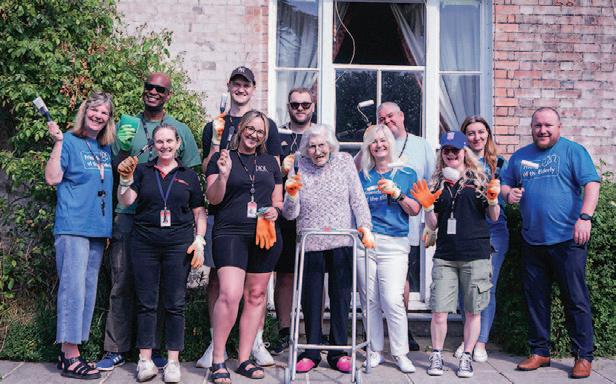
Team members from The Access Group UK, one of the leading providers of business management software, have spent a day volunteering at Charity, Friends of the Elderly’s Alton-based residential care home, The Lawn. Friends of the Elderly, which is celebrating its 120th Anniversary this year, welcomed 10 Access Group volunteers who wasted no time getting the care home’s garden furniture ready for the summer.
Talking about her long relationship with The Access Group UK, Sharon Nunn, Friends of the Elderly’s Group Financial Controller said: “Back in 2005, my Finance Director asked if I would consider implementing a finance system for the Charity. I arranged a Tender Process and three companies demonstrated their systems for us. We chose a relatively small company called Asyst, which is now part of the much larger Access Group, and our working relationship has gone from strength to strength and continues to do so.” Given the strong relationship, The Access Group UK chose Friends of the Elderly as one of its charities to support through its Staff Volunteering Program. ‘Giving Back’. The 10 volunteers were joined by colleagues from Friends of the Elderly and the group tackled the time consuming task of preparing, sandpapering and revarnishing all the care home’s garden furniture.
“It was hard work, but there was a real sense of camaraderie,” continued Sharon. “As we sandpapered and varnished, we chatted away to each other and had a lovely time. We were even joined by some of the residents who came to admire our handiwork – and a few pointed out if we’d missed any spots when we were varnishing.”
“Encouraging and supporting employees to volunteer their time and skills to benefit the community
through various initiatives is extremely important to us,” continued Sherri Gooch, The Access Group UK’s Premier Customer Success Manager. “As an organisation, we support volunteering and encourage our employees to give back to their communities. Spending a day with Sharon and the Friends of the Elderly Team at The Lawn was a great experience for us all and I even picked up a few handy DIY tips from the residents who came out to see how we were doing.”
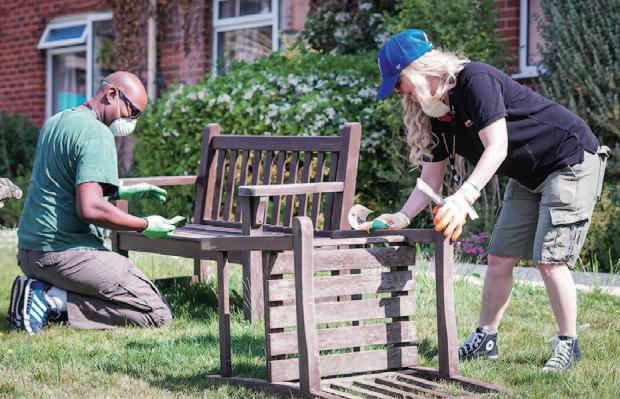
“All the volunteers on the day were excellent,” added Alina Gutu, the Registered Manager at The Lawn.
“Everyone worked so hard and as a team. Each volunteer was organised, enthusiastic and creative. The residents had a lovely time as well interacting with everyone as they worked on the job in hand.
“The results of all their hard endeavors were amazing, the garden furniture looks like new and once the warmer weather arrives, the residents will be out in the sun, relaxing and making the most of everyone’s hard work.”
“The Access Group UK volunteers worked hard, but had a lovely day, especially speaking with the residents,” added Sherri. “It was so rewarding to see how much everyone at The Lawn appreciated the end results and we hope that the residents have a wonderful summer enjoying their rejuvenated garden furniture.”
“We are very grateful to all the volunteers for spending a day at The Lawn, helping to revitalise and refresh the care home’s garden furniture for the residents to enjoy, was a great thing for them to do,” concluded Sharon.
HC-One’s Ashworth Grange Care Home, in Mirfield, Dewsbury, proudly partnered with Dewsbury Cares Community Group to make a dream come true for over 50 vulnerable adults and volunteers, who enjoyed a memorable day trip to Blackpool’s iconic seaside.
This marked the community group’s first-ever seaside outing, a heartwarming initiative supported by a £500 donation from the family of a late service user and generous contributions from Ashworth Grange. The group, which supports vulnerable adults and homeless individuals across Dewsbury and surrounding areas, set off with a coach full of excitement, armed with cricket sets and beach balls.
Ashworth Grange Care Home stepped in to ensure everyone was well-fed, donating lunch bags packed with sandwiches, crisps, biscuits, and flavoured water, including vegetarian options, for all participants. Michelle Hainsworth, Dewsbury Cares Community Group volunteer, said: “We bring everyone together, it doesn’t matter what your lifestyle

is, your colour or your creed. We love seeing people that are all different sharing the same day.
“To introduce a trip to the seaside was something we had dreamt about so with the kind-hearted community we live in and Ashworth Grange Care Home supporting us we were able to make it happen. We plan on making this an annual trip as this one has been very successful.”
Deborah White, HC-One’s Ashworth Grange Care Home Manager, stated:
“We’re thrilled to support Dewsbury Cares Community Group in making their first-ever Blackpool seaside adventure a reality for over 50 vulnerable adults and volunteers. We believe in the power of community and inclusion, and it was great to see everyone come together for such a joyful day.
“From providing lunch bags to contributing to the trip’s success, we’re proud to have played a part in creating lasting memories. We look forward to supporting this wonderful initiative in the years to come.”
After a demanding day, it’s normal to feel drained, but for key workers across the UK, high levels of stress have become the norm. A new study reveals that sectors like healthcare and education are under immense pressure, with emotional strain and burnout pushing many professionals to leave their jobs entirely.
Experts at online therapy service manconfidence.co.uk analysed factors such as sickness absence rates, reports of stress, depression, or anxiety, and total monthly search volumes for stress-related queries across various industries.
Each factor was weighted and scored to produce an overall stress index for each profession, with higher scores indicating higher stress levels and, by extension, a greater potential for burnout among workers.

Taking the top spot as the most stressful industry in the UK is the human health and social work sector, scoring 91.88 out of 100 and 649% higher than the least stressful sector, agriculture, forestry, and fishing (12.27). The healthcare sector faces high levels of stress due to demanding work environments, long hours, and the emotional toll of caring for others.
According to the Health and Safety Executive (HSE), the human health and social work sector reported
one of the highest rates of work-related stress, depression, or anxiety in recent years, which means its professionals have a significantly increased risk of bur
Dr Junaid Hussain, from manconfidence.co.uk, commented on the findings, “The high-stress levels in healthcare and education reflect the immense pressures faced by professionals who are responsible for the wellbeing and development of others, and show that burnout risk isn’t limited to traditionally ‘high-pressure’ fields, but that it can be deeply rooted in sectors where emotional responsibility and underfunding collide.”
“Interestingly, industries associated with high pressure, such as financial and insurance activities, and manufacturing, didn’t rank as high as the healthcare and educational sectors. The finance industry, in fact, was slightly above the average, while manufacturing received a stress score below the average.”
“This research highlights the varying levels of pressure professionals in the UK are dealing with. Wellbeing and mental health must soon become a priority across all industries, or we face the risk of sectors breaking down due to fewer young graduates joining these professions and senior professionals changing
Saint Cecilia’s Care Group is pleased to announce that Aaron Padgham has been appointed as its new Managing Director, marking a significant new chapter for the family-run care provider.
Aaron has been part of the organisation for the past eight years, joining in 2017 and playing a central role in its growth and development. He initially led the acquisition of Queen Margaret’s Nursing Home in Scarborough and has since been closely involved in welcoming new homes into the group, strengthening financial foundations, introducing new systems, and helping to build the teams that make everything possible.
Before joining the group, Aaron trained as a Chartered Accountant with Deloitte, where he gained experience across a range of sectors and built a strong foundation in financial leadership and strategic planning.
Reflecting on his appointment, Aaron said: “After some careful thought, I’ve made the exciting decision to take up the role of Managing Director of Saint Cecilia’s Care Group. Over the years, I’ve seen just how much hard work, com-

passion, and care it takes to keep moving forward — and it’s been a privilege to be part of that journey.
This business means a great deal to me personally. It’s not just where I work — it’s something I’ve seen built with love and determination by my mum and dad since the early days. Taking this step gives the company the long-term direction and stability that only an owner stepping into leadership can bring — and I feel ready to take on that responsibility.
We have a truly committed and compassionate team, and I want to harness the full strength of that as we move into the next phase of our journey. These are challenging times for the care sector, but I believe Saint Cecilia’s is well placed not just to survive, but to thrive — delivering even better care and creating a place where staff and residents alike feel proud to be.”
As part of this transition, Mike Padgham will continue in his role as Executive Chair and remain actively involved in the organisation, particularly in championing social care at a national level through his campaigning work.
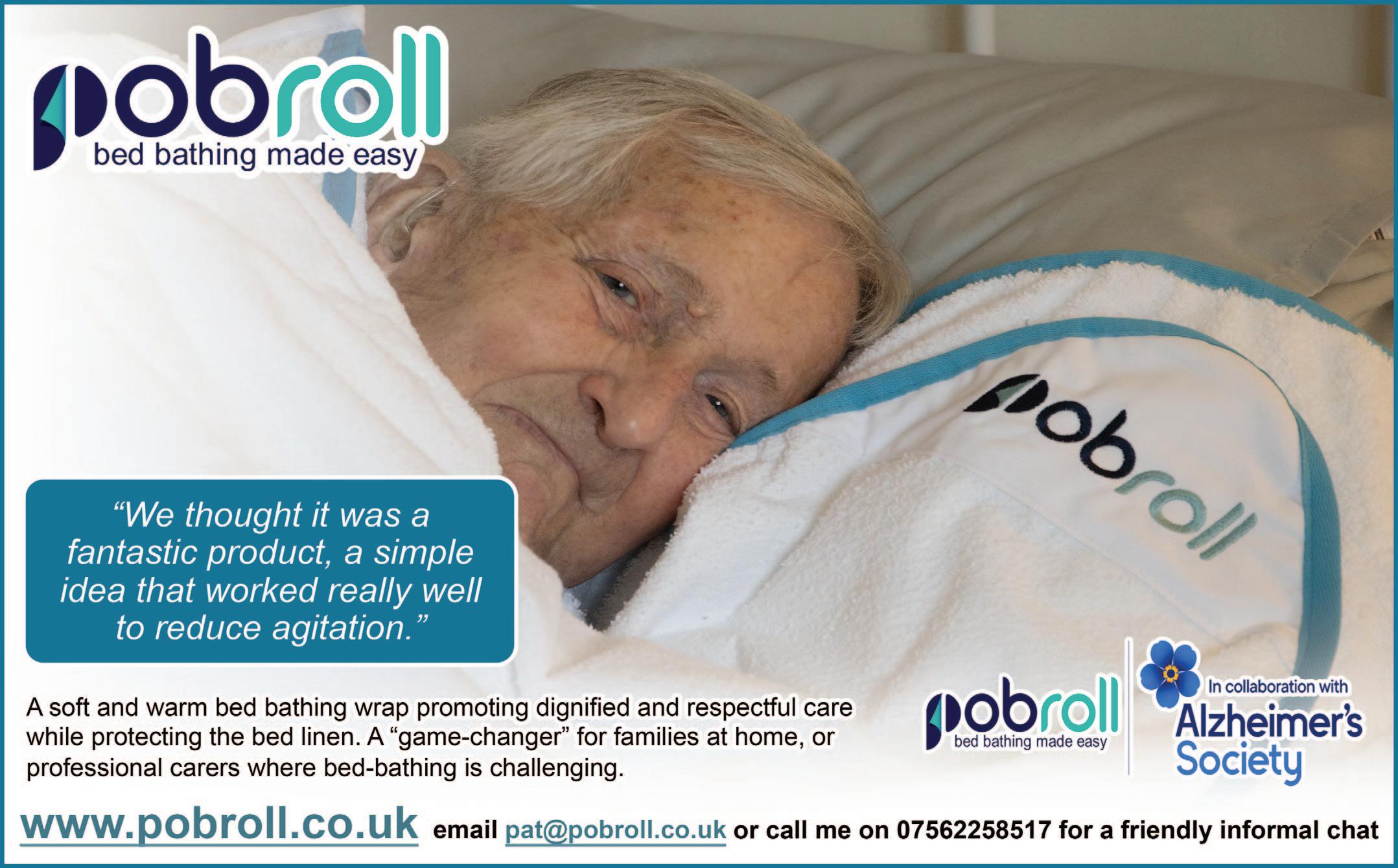
By Dr. Gary Sidley is a retired NHS Consultant Clinical Psychologist and co-founder

**While care homes have always retained flexibility to base their infection control measures on local circumstances, and to be guided by their own risk/benefits assessments, providers are expected to act according to government advice**
The pro-mask narrative that emerged in early 2020, purportedly as an infection-control measure, was characterised by an implicit assumption: mask wearing was NOT associated with any appreciable harms. Lady Hallett (the chair of the UK Covid Inquiry) demonstrated this widespread mindset when, in response to witness testimony that masks constituted an ineffective viral barrier, she quipped, ‘If they help a little bit, what’s the problem?’ . The failure to consider the negative consequences of face coverings has become more difficult to justify following the recent publication of a comprehensive risk/benefit analysis of mask mandates in care homes. The conclusion of this evaluation is unequivocal: ‘There is little evidence that wearing masks in care home settings confers a significant benefit. In contrast, mask wearing is associated with very significant risks of harm to residents, carers and visitors.’
People living in care homes are typically characterised by both physical frailty and cognitive decline, a combination that leads to confusion, frustration, bewilderment, and communication difficulties. Under such circumstances, a requirement that all residents, staff and visitors hide their faces behind porous strips of cloth or plastic is difficult to justify, an imposition – one might think – that could only be made in the expectation of evoking more distress and vulnerability within those ostensibly being cared for. Yet, between April 2020 and May 2022, universal masking in care homes was recommended by the UK government public health experts. How could such a counterproductive decision be reached?
One can only assume that the rule makers, ensconced within their infection control towers, were unaware of the negative consequences of mask mandates in care homes. But such ignorance is no longer an acceptable excuse. The suffering caused by face coverings – to residents, visitors and staff – was powerfully illustrated by personal testimonies given to the Scottish Covid Inquiry (summarised in a previous article ). And now, for the first time, a comprehensive risk/benefits analysis of masks in care homes has been conducted by Valerie Nelson (an experienced psychiatric nurse and independent consultant) and Richard Ennos (a retired Professor of Evolutionary Biology), a piece of work that emphatically demonstrates that face coverings have no place in this sector of healthcare.
The harms highlighted within the analysis include:
1. CARER WEARING A MASK: IMPACT ON RESIDENTS
• A masked carer is rendered less capable of providing empathic comfort, engaging in jokes and banter, and of nurturing human connectedness.
• A masked carer will initiate less conversation/social stimulation, thereby increasing the likelihood of mental decline and the neglect of the residents’ nutritional and personal care needs.
• A masked carer is more likely to evoke distress, confusion, and feelings of isolation in elderly residents.
• A masked carer nullifies lip-reading, thereby condemning many residents to a communication vacuum.
• A masked carer will spend more time donning/doffing/replacing masks and less time interacting with residents.
• A masked carer detracts from a homely environment.
2. RESIDENTS WEARING A MASK: IMPACTS ON SELF
• A masked resident is more likely to experience discomfort and breathing difficulties.
• A masked resident is more likely to suffer falls due to restricted vision and glasses steaming up.
• A masked resident is more likely to inadvertently dislodge hearing aids.
• A masked resident is less likely to effectively express his/her needs.
• A masked resident is less likely to communicate thereby accelerating their cognitive decline.
• A masked resident is less likely to reveal signs of distress or illness, thereby leading to neglect.
3. CARER WEARING A MASK: IMPACT ON SELF
• A masked carer is more likely to suffer physical discomforts such as headaches, facial rashes, and dry eyes.
• A masked carer will find it more difficult to concentrate.
• A masked carer will be at risk of inhaling harmful micro-fibres.
• A masked carer will display less patience.
• A masked carer will experience less job satisfaction and be at greater risk of sickness and absence.
• A masked carer will more likely be the source of cross-infection due to facial touching and inappropriate mask storage.
Collectively, these negative consequences of masking nullify the raison-d’etre of care homes, which is to meet the physical and emotional needs of a frail and vulnerable cohort of elderly people. Further evidence about the detrimental impacts of masks in care homes is provided in a soon-to-bereleased Smile Free film, titled ‘Masking Humanity’ , where healthcare professionals specialising in the care of the elderly offer their damning verdicts on this non-sensical restriction that will, hopefully, from this point onwards, remain in that (rather large) cupboard labelled, ‘Crazy public health interventions, never to be repeated’.
A TEAM of experts have come together to disrupt the expensive and complex social care system by launching an ‘app’ to bring care homes/providers and carers together using AI.
AgoraStaff, a temporary staffing app for the social care sector, is the brainchild of Richard Williams-Pears, a longstanding Cornwall councillor and former mayor of St Austell, who saw firsthand the rising costs and inefficiencies in social care.
He teamed up with his wife Jolene, AgoraStaff’s Director of Outstanding Compliance, who has an extensive background in operating theatres, and Janet Shreeve, who brings hands-on care sector experience from running Shreeve Care Services, based in Wiltshire.
Together, they partnered with tech experts Ben Grave and Simon Wetherell —creators of the UK’s leading asbestos management system - to bring the app to life.
Richard said: “Providing care is expensive and it’s even more expensive if a care home, local authority, or other care provider has to pay an agency to find carers, particularly at the last minute. The carer gets minimum wage, or just above and the agency takes a hefty cut on
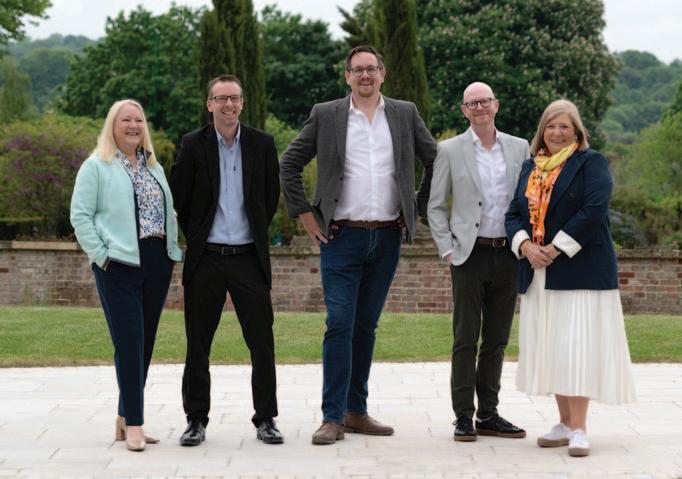
average around 30% of the fee from the provider.
“We felt there had to be a better way, using modern technology, to speed up this process leaving more money available for carers and providers. So much money is lost on agencies sitting in the middle between providers and carers, our app is designed to cut through this inefficiency.
“We have therefore combined deep sector knowledge with smart tech.”
Janet Shreeve is the Chief Business Development Officer

for AgoraStaff. She said:
“Many carers throughout the UK are self-employed and rely upon agencies to find them suitable shifts. Our marketplace gives them the opportunity to not only register for free but have complete control over the shifts they apply for and undertake.
“We are committed to ensuring the carers within our marketplace are the best professionals for individual roles. We achieve this with a vetting process to ensure they are legally entitled to work in the UK (if relevant) and must register their relevant training. They will also have the option to undertake more training to enhance their rolesa concept not commonly found within traditional agencies.”
AgoraStaff goes live week commencing May 19th in Somerset and the surrounding counties.
Care providers can sign up for the app for a monthly fee of £34.99 per location (plus five per cent from the agreed daily shift fee) and trained carers sign up FREE once they have completed the vetting process.



Leadership in social care is an extraordinary responsibility. It calls for compassion, strength, clarity, and resilience, often all in one day. Whether you're managing a team, leading a service, or supporting others through the complexities of care, the expectations are immense.
Yet, amidst the pressure to perform and support others, there’s a key piece that’s often left out of the conversation: the wellbeing of the leaders themselves. WHY WELLBEING GETS OVERLOOKED
In care, the culture of putting others first runs deep. Many leaders have worked their way up from frontline roles, where going the extra mile is not just encouraged, it’s expected. This sense of duty often carries into leadership, where the pressure to be always available, always strong, and always coping becomes the norm.
The result? Wellbeing is pushed to the bottom of the list. Leaders work through illness, ignore stress, skip breaks, and keep their challenges to themselves. Over time, this creates a silent crisis of burnout, fatigue, and disconnection.
We hear phrases like, “It’s just part of the job,” or “There’s no time for me,” far too often. When people responsible for leading others are running on empty, what message does that send? And what impact does it have on the teams they lead, and ultimately, on the quality of care?
WELLBEING ISN’T A LUXURY, IT’S A LEADERSHIP STRENGTH
A shift in thinking is needed. Wellbeing isn’t a ‘nice to have’, it’s essential. When leaders prioritise their own wellbeing, they strengthen their ability to stay emotionally grounded, present, and resilient under pressure. This supports clearer decision-making, cultivates healthier teams, and helps create a more positive and sustainable workplace culture.
When leaders are well, everyone benefits.
SO HOW DO WE BRING WELLBEING INTO THE HEART OF LEADERSHIP IN CARE?
1. Model it openly
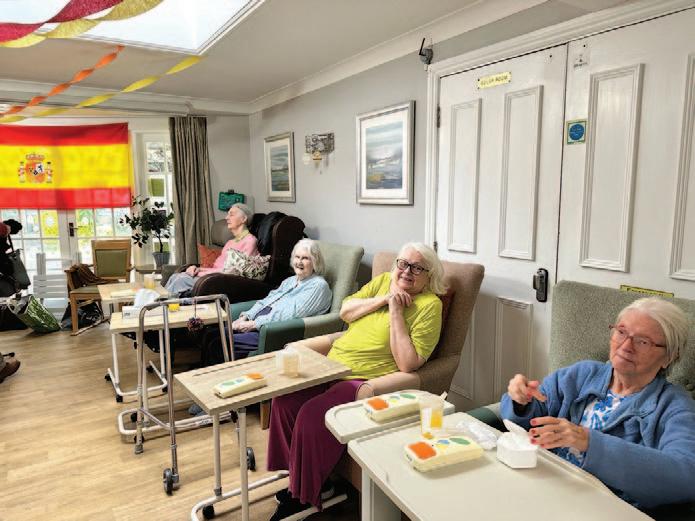
By Helen Gruber and Marilyn Rixhon of https://pastora.co.uk
One of the most powerful things a leader can do is model wellbeing in action. This means being honest about needing rest, taking breaks, having boundaries, and asking for help. When leaders show that they take their well being seriously, it gives others permission to do the same.
2. Make space for real conversations
Too often, wellbeing is addressed in passing or through posters and policies. What’s really needed are human conversations. Leaders can create informal, safe spaces for teams to check in, connect, and talk honestly about how they’re feeling. These small moments of connection build trust and support.
3. Build in reflection and support
We often expect leaders to have all the answers. But leadership is just as much about learning and growing. Reflective practice, coaching, and peer support allow leaders to process what they’re holding and strengthen their own self-awareness. Without reflection, it’s easy to get stuck in survival mode.
4. Challenge the culture of ‘doing more with less’
The pressure in care services is real. But we need to stop glorifying overwork and start celebrating sustainability. Leaders have a crucial role in challenging the belief that wellbeing comes after the work is done. Instead, it needs to be seen as part of how we work.
Taking care of yourself
Leadership begins with self-leadership. Ask yourself:
• What are my warning signs that I’m running on empty?
• What practices help me reset and recharge?
• Who supports me in my role?
Start with small acts of daily care: stepping away for lunch, setting a clear finish time, or pausing to check in with yourself. These aren’t selfish, they’re foundational.
When you lead with wellbeing at your core, you become more than just a manager or coordinator, you become a model for what sustainable, compassionate leadership looks like.
If you're a leader in care looking for a space to reconnect with yourself, reflect on your role, and develop a more sustainable way of leading, the Leading Gracefully course was made for you.
This 6-week online, live course is designed specifically for care managers and leaders who want to lead with heart while looking after their own wellbeing. It’s a space to explore real challenges, share openly with others in similar roles, and gain tools to navigate the emotional weight of leadership.
We believe leaders in care deserve to feel fulfilled, not just functional.
To find out more or register your interest visit: https://bit.ly/4fujXbY
FINAL THOUGHTS
The future of care will be shaped by the strength and sustainability of its leaders. Leadership isn't just about what we do—it's about how we are. When leaders value their own wellbeing, they lead with greater clarity, courage, and compassion. They create cultures where people thrive, not just survive.
Residents at HC-One’s Adelaide House Care Home, in Walton-onThames, Surrey, were transported to the sunny streets of Spain this month as part of their cultural exploration series.
With Spain selected as the country of the month, the home came alive with the flavours, sounds and spirit of Spanish tradition. The celebration featured a delicious spread of authentic Spanish cuisine from tapas-style dishes to sweet treats.
Adelaide House also enjoyed a special performance, which had residents clapping and singing along – most notably to a heart-warming rendition of Doris Day’s classic “Que Sera, Sera” (Whatever Will Be,
Will Be).
Following the musical interlude, residents took part in an engaging Spain-themed quiz, testing their knowledge of Spanish geography, culture and history in a light-hearted afternoon of fun and laughter. Slawomir Janik, HC-One’s Adelaide House Care Home Manager, said:
“Wellbeing is all about connection, joy and discovery – and Spanish Culture Day was the perfect example of that. It was wonderful to see residents smiling, singing, and sharing stories over great food and music.”
Growing training specialist Realise has formed a new partnership with one of the country’s largest independent care providers and developed a bespoke Level 3 apprenticeship for its staff.
Realise’s Health and Social Care division has been appointed by Barchester Healthcare to deliver the Senior Healthcare Support Worker apprenticeship.
Barchester is one of the most respected care providers in the country, with more than 250 care homes from Inverness to Falmouth.
Realise will provide the apprenticeship to colleagues working within Barchester’s complex care and hospital care division, which covers 14 settings.
Realise will also offer other apprenticeship opportunities from Level 2 right through to Level 5.
Angela Kaine, Director of Health and Social Care at Realise, said the collaboration came after the training provider was able to demonstrate how it could adapt the programme for Barchester’s specific needs.
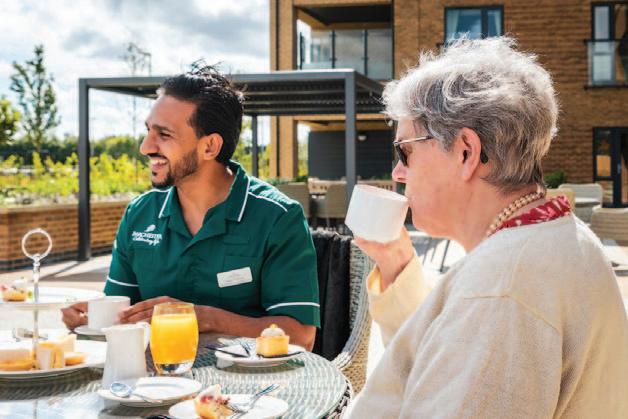
She said: “We are delighted to be entering into a new relationship with a care provider of Barchester’s calibre and reputation.
“The agreement follows in-depth discussions with Barchester’s leadership team where we were able to demonstrate our agility and ability to adapt the programme so that it best serves their employees within the complex care and hospital care division.
“This has meant us working alongside Barchester to create a bespoke curriculum that aligns with the company’s needs, values, language and behaviours.
“Consequently, the programme will have a significantly heightened focus on the mental health pathway,
including crisis intervention, mental capacity and de-escalation techniques.
“We are excited to begin work with Barchester and to be helping the business effectively to address its apprenticeship challenges.”
Realise will offer flexible solutions to accommodate off-the-job training and mentoring within varied shift patterns, including evenings and weekends.
A dedicated operations team from Realise will work on the partnership to ensure high standards of provision and good outcomes.
Other apprenticeships from Level 2 to Level 5 will also be adapted with specific pathways to meet Barchester’s needs.
Members of the Realise management team recently attended Barchester’s Quality First Conference to reinforce the new relationship, understand the business better and allow employees to sign up to the course.
A total of 33 staff are set to enrol on the 18-month Senior Healthcare Support Worker apprenticeship in the coming weeks, with more to follow soon after.
Sarah Clifford, Head of Apprenticeships for Barchester Healthcare said: “From initial meetings and introductions, Realise showed their professionalism from day one.
“They listened to our current challenges, taking them away and sharing a bespoke apprenticeship design to support our career development specifically for our Hospitals and Complex Care division.
“This included a modern innovated style of delivery which was fit for purpose and role specific, with the golden thread of embedding the curriculum in the Barchester way of working.”
For more information, visit www.realisetraining.com
A new study published on Sunday 18 May uncovers the tough decisions NHS leaders are making to balance their books and protect patient care. Researchers from The King’s Fund health and care charity spoke in detail to NHS leaders in England to understand the decisions being driven by tight finances.
In addition to initiatives to drive efficiency and boost productivity, the researchers found examples of local NHS leaders cutting services like patient transport, holding down workforce costs by freezing recruitment and reducing agency staffing, and reducing investments in public health services like health visiting and school nurses.
The authors call for realism about the trade-offs needed to deliver essential NHS reforms in the context of tight public finances and pressure to rapidly improve existing services.

Despite sustained real terms increases in the NHS budget, rising demand for care and treatment driven by a sicker population have left the health service struggling to live within its means. An additional £22.6 billion NHS funding was announced in the 2024 Autumn Budget, yet the first iteration of financial plans for 2025/26 showed ‘a very significant financial deficit’ of £6.6 billion for NHS systems. Meanwhile, the maintenance backlog to return NHS buildings and equipment to an acceptable standard has been growing, and currently stands at £13.8 billion.
The financial strains are complex, with some newer pressures, like mitigating the impact of recent industrial action and cyber-security risks, while others, like inflation, have been longstanding. Now, leaders interviewed for this research warn that some services are becoming financially unsustainable to run.
With the NHS unlikely to get a major funding boost in the current economic context, the report authors conclude that it will not be possible for the health service to do everything that might be asked or expected of it. The researchers argue that the government and public will need to be realistic about the extent to
which current services can be improved in the short term while also delivering fundamental reforms that would make for a sustainable health service in the long term.
The authors also recommend NHS Trusts are set multi-year budgets instead of the current annual approach. They argue that greater funding certainty would help NHS leaders mitigate the risk that in-year financial pressures adversely impact patient care.
Commenting on the findings, Siva Anandaciva, Director of Policy at The King’s Fund, said: “It is absolutely right that the NHS is asked to be as productive as possible and deliver value-for-money for patients and taxpayers. By adopting new technology and improving existing processes, health services around the globe are trying to improve patient care and reduce pressures on public finances. But it is also right that the health service is set realistic goals.
“Our research shows how challenging it is to keep running highquality services when budgets can’t keep pace with demand. It underlines just how difficult it will be to deliver much-needed reforms while also expecting rapid improvements to current services.
“NHS budgets have risen in real terms while some other public services have seen funding cuts, but financial pressures persist and they are having an impact on the quality of care. Patients are experiencing long waits for care, are treated in dilapidated buildings, and report worsening experience. The impact is shown in the findings of the latest British Social Attitudes survey which found that public satisfaction with the NHS is at its lowest level since the survey began over 40 years ago.
“The government’s ambition to deliver major reform for the NHS has never been more needed. To achieve that goal, ministers have previously said they will need to make tough trade-offs. Now is the time for realism about what can be achieved in the current financial envelope, and clarity about how the NHS should prioritise funding to deliver reforms versus maintaining the services people are currently using every day.”
This Spring, Recreo VR is offering care homes an exciting opportunity to enhance resident wellbeing through the power of Virtual Reality (VR). By signing up for one of our 24-month Recreo Theatres packages, you’ll receive a free VR headset and staff training.
Our platform provides person-centred, budget-friendly activities that are fun, engaging, and accessible, especially for residents who are bedbound or socially isolated. Co-created with Alzheimer’s Society and individuals with dementia, our service empowers staff to deliver personalised reminiscence and one-to-one sessions that promote memory recall and connection.
Our VR headsets have been recognised as good practice by the Care Quality
Commission (CQC), further validating their impact on care. Regular use of Recreo VR has a proven positive effect on wellbeing, with residents reporting increased activity, engagement, and social connection, often leading to a reduction in the need for PRN medication.
Whether combating loneliness, promoting relaxation, or enhancing cognitive health, VR offers a non-pharmacological solution to enrich care and elevate quality of life. Don’t miss out! Take advantage of this exclusive offer and see how VR can transform your care home experience.
For more information, visit recreovr.co.uk. Or contact us at info@recreovr.co.uk or 01482 526940.

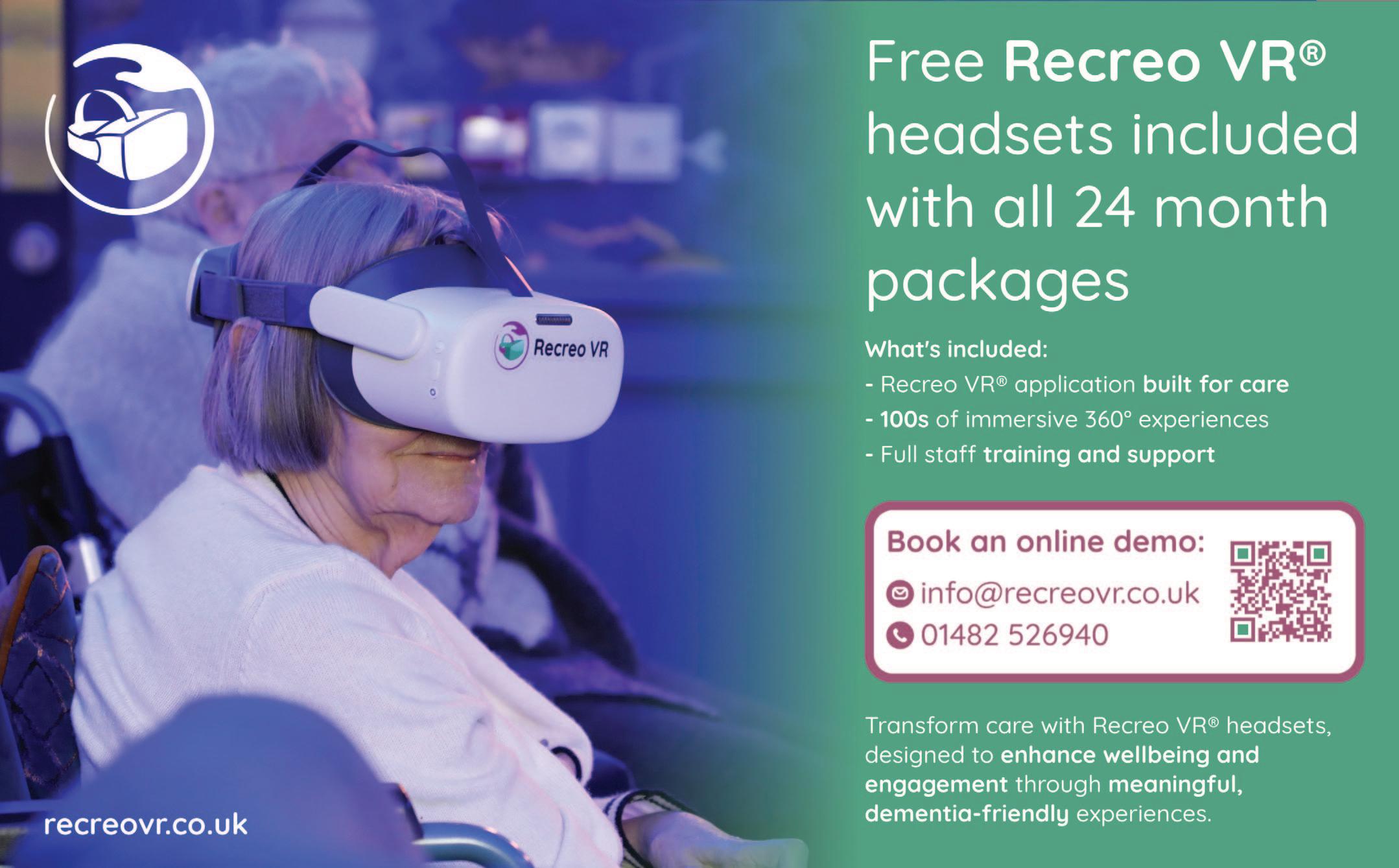
By Louise Blezzard, CEO and founder of Venelle (www.venellelife.co.uk), providing
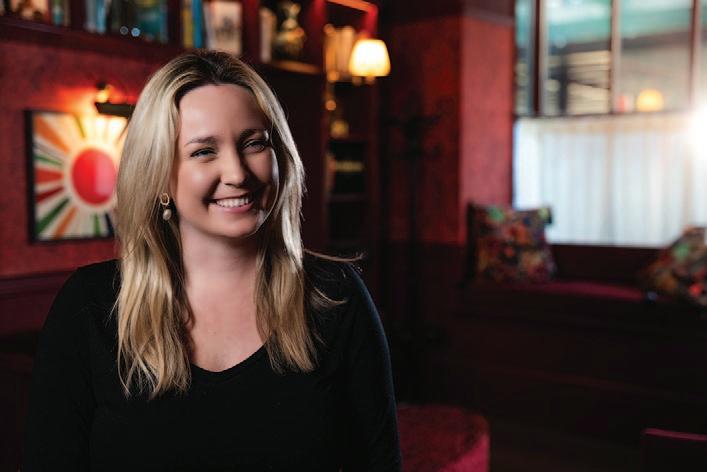
Earlier this month we celebrated International Nurses Day – a day that offered us a moment to reflect on the remarkable contribution nurses make to healthcare worldwide. Their impact extends far beyond hospital wards, with nurses demonstrating exceptional versatility across diverse care settings.
Nursing fundamentally combines compassion with clinical expertise. While qualification pathways differ globally, the essence of nursing remains universal. Skills acquired in one country transfer seamlessly to another – making nursing truly international. Whilst Monday marked International Nurses Day, this is something we celebrate daily through our team of international nurses whose expertise and compassion
enhance our clients' lives – underlining the global influence, and necessity, of nurses.
One of our Australian nurses Mietta, exemplifies this adaptability. Her background in orthopaedics and High Dependency Units developed her ability to make swift, informed decisions while maintaining compassionate care. As she puts it: "What I love is being able to help others and knowing you've made someone's day easier and better when they are facing difficult times." This blend of clinical precision with genuine warmth defines her approach – and is something central to good nursing.
Fellow Australian, Maddi, who has worked extensively in haematology and oncology says that, for her, nursing's reward lies in human connection: "The thing I love most about being a nurse is making an impact on my patients' lives. Whether it was holding their hand on their hardest days, brightening their day with a smile and a chat or helping them finally walk out the door after months of gruelling treatment." These meaningful interactions drive her dedication to care.
Sydney, another of our nurses who trained in the Philippines and worked throughout Manila, brings valuable international perspective to our team. With extensive community care experience, she emphasises relationship-building: "What I love most about being a nurse – especially in the community setting – is being able to build strong, ongoing relationships with patients and their families. Being out in the community allows me to connect with people on a more personal level." Again, another skill of nurses is their ability to forge relationships beyond the patient – and is something community nurses are wonderfully adept at.
More recently qualified Grace, another Australian nurse, offers a fresh yet equally valuable perspective from her experience in cardiolo-
gy and various surgical specialties. For her, seeing "the impact we have on both patients and their families" represents nursing's most rewarding aspect.
These diverse experiences reflect a broader healthcare trend where professionals seek roles combining clinical excellence with holistic approaches to care. Their transferable skills – whether developed in demanding hospital environments or community settings – enable them to create meaningful connections with those they support. Quality care is inherently personal. Each client is unique, requiring individualised support. Our nursing team's diverse backgrounds and clinical knowledge enhance our care provision. Clients benefit not only from technical expertise but from these nurses' ability to connect with people from all walks of life. This empathy, developed through varied cultural and professional experiences, distinguishes exceptional care. Effective care extends beyond managing health conditions – it's about fostering relationships and supporting personal aspirations. At Venelle, we believe care environments should promote independence and empower recipients to live fulfilling lives, supported by professionals who truly understand their needs.
This International Nurses Day, we celebrated nursing as a profession and the dedicated nurses who contribute so significantly to our success. Mietta, Maddi, Sydney, Grace – and our entire team – demonstrate nursing's transformative power. Their skills and compassion, coupled with unwavering client commitment, enrich both individual lives and the wider care sector.
To nurses worldwide, we extend our profound gratitude. Your dedication inspires us daily, and your life-changing impact deserves celebration not just on International Nurses Day, but every day.
The official opening of the newly revitalised Norton Lees Care Home in Sheffield by independent provider Agincare is the family-owned care group’s first in the north of England.
This expansion builds on Agincare’s national presence and ethos of delivering high-quality, person-centred care, including home care, livein care, care and nursing homes, supported living and not-for-profit children’s services.
The official ribbon was cut by Adam Luckhurst, Director and eldest son of Agincare’s founder Derek Luckhurst, alongside residents Doreen and Audrey, pupils from Mundella Primary, and the care home team.
“Welcoming Norton Lees into the Agincare family is a real honour,” said Adam. “Wherever we go, we raise standards, build trust, and become a thriving part of the local community. Norton Lees will be no different.”
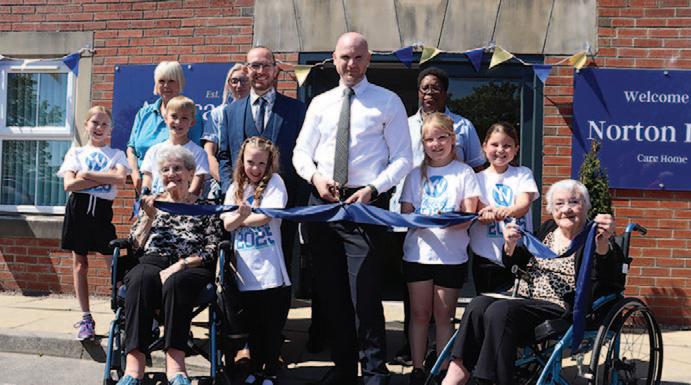
The Noton Lees community celebrated as residents, families, schoolchildren, health and social care professionals, and neighbours were treated to a warm welcome featuring a sparkling drinks reception, a delicious home-cooked buffet, and a performance by the Mundella Primary School choir.
A charity raffle added to the feel-good atmosphere, raising funds for the school’s PTA and cementing Norton Lees’ commitment to its community connections.
New Home Manager Phill Seddon, a qualified nurse with two decades of health and social care experience, led the celebrations with his team.
“It’s been a fantastic day,” said Phill. “We’re thrilled to begin this new chapter alongside our residents, families, and fantastic care team. My focus is on creating a stable, supportive, and joyful home – where every resident feels valued and truly at home.”
Purpose-built to accommodate up to 80 residents, Norton Lees Care Home offers personalised care in a peaceful residential setting, welcoming both privately and publicly funded residents.
Guests on the day shared heartfelt reflections on the positive changes. Margaret Price, niece of resident Doreen, said: “My Auntie Doreen has been here for two years, and I’ve seen a huge increase in the mood and togetherness at the home. The carers are amazing and you can tell that she feels settled, it’s her home and you can sense the friendships among residents.”
A £17 million Extra Care Housing scheme in Telford is preparing to welcome its first residents with construction works now completed.
Stirchley House is the first development delivered by Midlands-based Deeley Construction in partnership with Preferred Homes Ltd.
The 72-apartment scheme on Grange Avenue in Stirchley has seen the transformation of the site of the former Stirchley Leisure Centre site into new homes which will enable residents to live independently with onsite care support.
Deeley Construction has completed the project in a busy town centre environment with minimal disruption to nearby businesses, organisations, school and nurseries.
The 66 one-bedroom and 6 two-bedroom affordable apartments are designed to meet the needs of older local people. Homes will be occupied through a nominations agreement with Telford and Wrekin Council that prioritises residents in need of affordable housing.
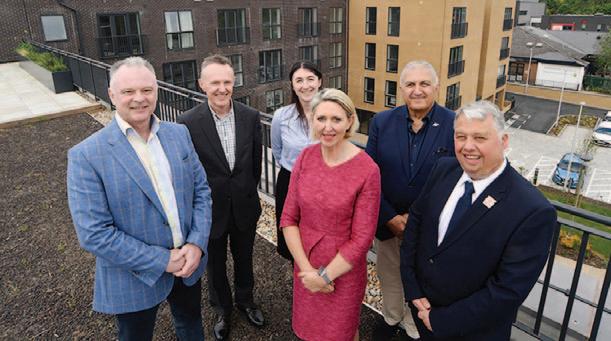
Stirchley House also features community space to support residents’ social activities and a community bistro for guests, visitors and residents to enjoy.
Residents can also relax in the development’s landscaped gardens and green rooftop area, while also benefitting from a range of local amenities such as shops, restaurants, a doctor’s surgery and leisure centre. Homes England has helped to fund the scheme through the Affordable Homes Programme.
Preferred Homes has partnered with Telford & Wrekin Council to deliver the facility which will provide affordable rented Extra Care Housing for local people, which supports residents to live independently and within a community, with access to care support on site.
Richard Frank, Property Director at Preferred Homes, said: “The completion of Stirchley House marks the next step in our ambition to provide affordable Extra Care Housing, helping people to live independently in their old age – and we can’t wait for residents to start moving in.
“We’re pleased to have worked with Deeley to have delivered these 72 high quality apartments and facilities. Our bistro and shared spaces are open to all, and we look forward to being part of the Stirchley community for the long term.”
Eleanor Deeley, Joint Managing Director at Deeley Group, said: “Through our strong partnership with Preferred Homes we have delivered a scheme which will support residents to live independently but also access important support.
“Our team has been working closely with local stakeholders to limit disruption to existing residents and nearby businesses.
“This development is a perfect example of the benefits of partnership working and we look forward to continuing to deliver important schemes for local communities with Preferred Homes.”
Councillor Richard Overton, Telford & Wrekin Council Deputy Leader & Cabinet Member for Highways,
Housing & Enforcement said: “The completion of Stirchley House is a fantastic milestone for the community. It transforms a once-disused site into a place where older people can live independently with the care and support, they need, in high-quality, affordable homes.
“This development supports our commitment to create homes that meet the needs of our residents and is a great example of how strong partnerships can deliver real, positive change in our communities.”
Richard Parker, Mayor of the West Midlands said: “Building more affordable homes is a top priority for me because too many people are waiting too long for a safe, affordable place to call home.
That’s why I’m backing schemes like Stirchley House, developments that can change people’s lives for the better. This scheme has not only brought a derelict site back into use but will allow more of our residents to live independently and in their own home for longer.
“It’s by the public and private sectors working together like here in Telford that we can begin to tackle our region’s affordable housing crisis.”
Alzheimer’s Disease International (ADI) has warned that the world is heading towards a global health crisis, with just 45 (23%) of the World Health Organization’s 194 Member States having a national dementia plan in place despite unanimously pledging to do so by 2025.
The stark finding appears in ADI’s new report, From Plan to Impact VIII: Time to deliver, released ahead of a crucial vote at the 78th World Health Assembly later this month. ADI is calling on all governments to vote to extend the WHO Global Action Plan on dementia until 2031 and to fund concrete action immediately.
Across the world, someone develops dementia every three seconds. It is the seventh leading cause of death globally and, published forecasts suggest, this will rise to the third leading cause of death by 2030. By this time, 78 million people will be living with dementia at an annual cost $2.8 trillion globally. In $1 bills, that would stack 7 times around the earth’s equator and is equivalent to the UK’s national debt.
“Dementia is more of a global health crisis today than it was in 2017 when the global action plan was adopted,” says Paola Barbarino, ADI CEO. “Not extending this vitally important Global Action Plan would undermine the progress we have made in the past 8 years and limit the potential for governments to stem the tide that is coming.”
Adding further importance to the issue of dementia globally remaining a top priority, the WHO was forced to revise its financial plans this year after the United States, formerly the organisation’s biggest funder, pulled out in January 2025. The US had previously covered nearly a fifth of the WHO’s budget.
“Funding cuts to the World Health Organization are seriously bad news for our movement. Without support for the Global action plan, we would lose a precious tool to advocate on behalf of the weakest
amongst us and the leverage to engage with governments productively on the development of their national dementia plans.” Continues Barbarino.
According to survey data from the World Alzheimer Report 2024, more than 90% of carers and respondents from the general public said they would be encouraged to get a diagnosis if a disease-modifying treatment for dementia was available. New disease-modifying therapies and blood-based biomarker diagnostic tools have received regulatory approval in several countries. Despite this progress, ADI says governments globally are not prepared.
“Even with a low target of diagnosing half of people currently living with dementia, the fact is Member States have not reached this target. This means more than half of people living with dementia won’t have access to new treatments, new diagnostics, and to vital care when they become available. National Dementia Plans are crucial to ensure this changes,” Barbarino says.
ADI says that in order to achieve the vision of the Global dementia action plan beyond 2025, countries must prioritise dementia in local and global agendas and commit resources to its implementation.
“From Plan to Impact data indicates that just 23% of countries have dementia plans – either stand-alone or integrated. Countries with national dementia plans are more likely to meet other key dementia targets, highlighting the importance of formulating robust national responses to dementia,” continues Barbarino.
It’s not all bad news, ADI says. Since its inception in 2017, national plans have been launched in countries of all sizes, from Brazil and China to Qatar and Singapore. Early support from countries such as France and the United Kingdom have ensured a global focus on
dementia, and governments including Australia, Canada, Italy, and the Netherlands have championed the cause. While progress is being made, ongoing resources are required to support the implementation of these plans and take policy from paper to practice, to deliver meaningful change for those living with dementia and their carers.
G7 and G20 presidencies have elevated dementia, including the Okayama Declaration under Japan’s G20 leadership in 2019 and successive G7 commitments under the presidencies of Japan in 2023 and Italy in 2024.
“There are grounds for hope. Many states have come good on their commitment and developed plans, importantly capturing the voices, experience, and advice of people living with dementia and their carers. This real-world experience is incredibly valuable in designing robust plans”, Barbarino adds.
ADI says that while the Global Action Plan on dementia has not galvanised member states enough to reach targets, it has been a valuable compass since 2017. While the expiration of the Global Action Plan sets a hard deadline, the extension would give governments globally six extra years to make real progress, rebuild momentum, and renew commitment.
Barbarino ends: “Things are starting to change, and the lives of millions of people are in the balance. To lose this momentum would be a catastrophe and to use an extension as an excuse for further inaction, unforgivable. Dementia is everyone’s business. Regardless of the outcome of the vote, dementia remains an undeniable public health crisis that must be addressed head on by governments and civil society, working hand in hand to secure better prospects for people living with dementia, today and tomorrow.”
Local groups, Staff, residents and relatives came together on Monday 19th May at the Boroughbridge Manor Care Home in Boroughbridge to raise funds and to launch ‘Dementia Action Week’ together. Boroughbridge Manor welcomed event organisers Amy and Sian from Dementia Forward and also Victoria and Elise from Helping Hands in Knaresborough as they came together for a fundraising coffee morning, raising funds and awareness for the Dementia Forward Group. Dementia Forward’s theme for the week is ‘don’t keep dementia under your hat’
With this the homes residents and guests sported an array of dazzling headwear,

Clive, a resident at Boroughbridge Manor said, “I thoroughly enjoyed it. I could feel Staff did a great job, not just on the day, but organising the event and getting everyone together.”
General Manager, Susan Carter, commented: “Staff at Boroughbridge Manor are dedicated to making sure that the home is the hub of the local community, and this event for Demenita Forward with Helping Hands was a resounding success!”
Shelbie Taylor-Howson, an Activity Coordinator, added: “We just want to say a big thank you to everyone that came along to support us, you all made this event extra special. We have raised £40 for Dementia Forward which is absolutely fantastic!”

This Dementia Action Week (19-24 May) Alzheimer’s Society is shining a light on the six most common symptoms of dementia and encouraging people to seek help if they spot these signs in themselves or a loved one.
Around one million people are living with dementia in the UK and a third do not have a diagnosis. Yet, new research by the charity reveals that over 60% of UK adults do not know that problems with vision can sometimes be a symptom of dementia – and one in ten could not name a single common symptom of dementia.
As well as causing problems with memory and thinking, dementia can also damage the parts of the brain involved in processing information from the eyes. This can cause problems judging distances, making out objects, or reading large font text. People may also misinterpret patterns or reflections.
The survey also found that less than two-thirds of respondents identified that problems with communication (61%) or mood changes (64%) could also be symptoms of dementia.
Steve Howe (60), from Darlington, whose wife Leigh (67) has Alzheimer’s disease, spoke about the importance of recognising all the symptoms of dementia, including sight loss:
"Leigh started experiencing vision problems when she was just 57. Some days her eyesight was fine and others she couldn’t see at all. It took over three years and a serious accident before we received a diagnosis of Alzheimer's disease.
"By then, the condition had likely been developing for around eight years, and we missed the opportunity to use treatments that could have helped slow its progress. It's crucial that people understand vision loss can be a symptom of dementia, as early diagnosis is key to getting the support and treatments that can make a real difference.
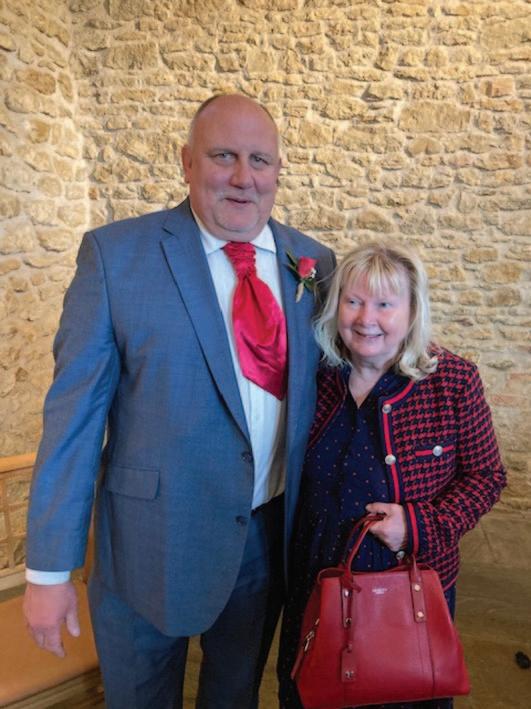
“Since Leigh’s diagnosis, I’ve been committed to raising awareness and supporting Alzheimer’s Society,
particularly through our local golf club’s fundraising efforts. It’s been heartening to see how the community has rallied around us, and it’s given me hope that we can make a difference for others facing similar challenges."
Corinne Mills, Interim CEO of Alzheimer’s Society said:
"This Dementia Action Week, we’re highlighting the six most common symptoms of dementia and encouraging anyone with concerns to use our free symptom checklist and seek help from their GP or other health professional.
“More than a third of people with dementia don’t have a diagnosis, meaning they’re missing out on the vital care, support and treatment they need. But it doesn’t have to be this way. We understand that getting a diagnosis can be daunting, but we believe it’s better to know.
“Our research shows that 97% of people affected by dementia saw a benefit in getting a diagnosis. An early and accurate diagnosis helps people to live independently for longer, access existing treatments, and can prevent crisis situations. It also allows people to better understand their condition and plan for their future.”
Dementia is not a natural part of ageing. The six most common symptoms of dementia include:
• Memory loss – problems recalling things that happened recently
• Difficulty organising thoughts – struggling to make decisions, solve problems or follow steps
• Problems using words or communicating – difficulties following conversations or struggling to find the right words
• Problems with vision – problems judging distances or perceiving object edges
• Getting confused about time or place – losing track of the time or date, or becoming confused about where they are
• Changes in mood or personality – becoming unusually anxious, irritable, or withdrawn
The secret to reaching 100 years old is plenty of laughter, according to Enfield resident and former Wren Ena Redman.
Ena celebrated her milestone birthday at Brookwater House Care Home on Oakthorpe Road, where she lives, and was joined by her cherished family for the happy occasion.
Brave Ena, who served the country during the Second World War, was joined by daughters Louise and Zoe, stepson Graham, her grandchildren and great-grandchildren – who travelled from France for the occasion.
As the four generations of her family gathered to help Ena celebrate, she said that ‘enjoying life’ is the key to her longevity and urged others to seek joy.
Ena said: “I have always loved my friends and family, and it’s kept me busy, so keep on enjoying, embrace every moment and don’t forget to laugh.”
Vibrant Ena says she loves nothing better than learning a new hobby, and at Brookwater House, she enjoys arts and crafts, gardening, board games and even a spot of Zumba.
Norwich-born Ena moved to London as a child to live with her older sister,

Miriam, after their mother sadly passed away. In 1943, she joined the Women’s Royal Naval Service (WRNS) and was tasked with various roles supporting the war effort, including working as an air mechanic.
She said: “The experience was transformative and certainly taught me resilience and determination.”
After the war, Ena worked as a secretary and went on to meet her husband, Stanley, in 1951. Together, the couple had two daughters Zoe and Louise, and she became stepmother to Graham.
Customer Relations Manager at Brookwater House Amba Shaw said: “It’s wonderful to have Ena here with us - she teaches us all to be adventurous and try new things.
“She has a real passion for life and always likes to experience our many activities here, like painting and all things creative.
“She embraces every moment, finding joy in the little things and cherishing the people she loves.
“Her positive outlook and zest for life are truly infectious, and those lucky enough to know her are always inspired.”
Following the British Dietetic Association’s (BDA) rollout of the Care Home Digest last year, Bidfood, one of the UK’s leading wholesalers, has produced an industryleading, four-weekly menu cycle, aligned with the Care Home Digest.
Designed to support care operators in implementing the guidelines, the menu cycle offers unrivalled inspiration for Bidfood’s care customers, featuring over 300 Care Home Digest-aligned recipes available for download.
Until last year, healthcare foodservice guidelines were mainly aimed at hospitals, leaving care operators, many of which don’t have access to a dietitian, without tailored resource to support with menu planning.
However, using the new Digest, Bidfood’s expert chef and nutrition team have collaborated to develop this extensive bank of recipes and four-week menu cycle.
The cycle demonstrates how operators can align their menus to meet the unique needs and preferences of their individual residents, incorporating food waste tips and a variety of dish types to suit a range of kitchen skill levels.
The menu plan features a balance of food groups including both animal and plant-based proteins, higher-fibre carbohydrates, “healthy” fats and plenty of fruit and vegetables, maximising levels of key nutrients such as protein, fibre and essential vitamins and minerals. The team have also worked hard to reduce sources of saturated fat, free sugars and salt where possible.

What’s more, every recipe has been nutritionally analysed and adjusted, tweaking both the ingredients used and the quantities, to ensure that nutrition is prioritised whilst also balancing taste, cost and other factors.
Nutrition Manager, Heather Dolan said “At Bidfood we pride ourselves on an evidence-based approach to nutrition, so we were delighted when the BDA’s Care Home Digest was released. We’ve been working on this menu ever since, with the aim of helping care homes to implement the Digest, and ultimately, supporting them in meeting residents’ nutrition and hydration needs.
“It’s been a pleasure collaborating with our healthcare chefs on this project. They’ve brought a wealth of culinary expertise and creative flair to the project. Together, I believe we’ve struck the perfect balance of classic dishes and fresh, innovative concepts.”
To view the four week menu cycle, please visit https://view.bidfood.co.uk/bidfoods-four-weekly-menu-cycle/?page=1
The British Dietetic Association’s Care Home Digest was created to support care homes in developing varied and balanced menus that will tempt residents to eat and drink well, whilst being designed as a toolkit that makes it easy for care operators to dip in and out of chapters as needed. For more information on the Care Home Digest, visit here

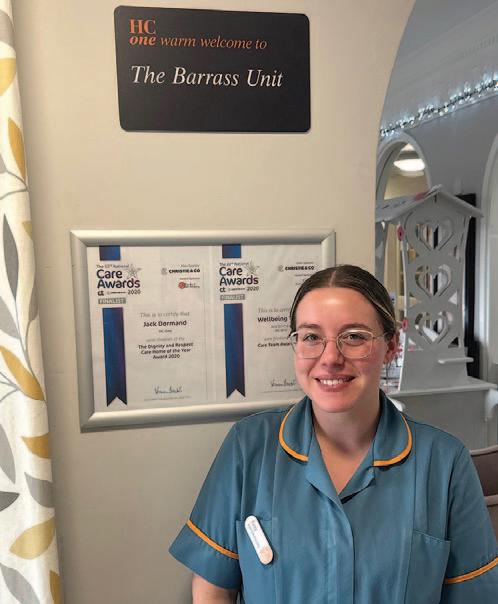
A Nursing Associate at HC-One’s Jack Dormand Care Home in Horden, Peterlee, County Durham, shared her personal inspirational story to encourage others to consider a nursing career in the social care sector to mark International Nurses’ Day on May 12, 2025. International Nurses’ Day is an annual event which honours the invaluable contribution of Nurses across the world and coincides with the birthday of Florence Nightingale, the founder of modern nursing.
It highlights the importance of investing in the nursing workforce to ensure resilient health systems and sustainable development.
Letizia, also known as ‘Tizzy’, Taylor, aged 28, a Nurse Associate at Jack Dormand Care Home, attended East Durham College and gained a Diploma in Animal Management before starting her career in health and social care. Letizia started a new job as a Domiciliary Care Assistant in 2015, working within the community for four years, where she completed her Level 2 NVQ qualification and progressed to a supervisor role.
Letizia soon realised her passion for caring for others and making a difference to people’s lives by providing high-quality care and support. Letizia started at HCOne’s Grampian Court Care Home, in Peterlee, County Durham as a Care Assistant in October 2018. After completing her Level 3 Health and Social Care NVQ apprenticeship, she was promoted to Senior Care Assistant.
Letizia transferred to HC-One’s Jack Dormand in Peterlee in April 2021 to pursue a clinical role. She completed Safer People Handling and enhanced medication training, then joined HC-One’s Care Assistant Development Programme and Level 3 Lead Adult Care Worker apprenticeship in June 2021. This led to her promotion to Nursing Assistant, where she applied her clinical skills.
In February 2023, Letizia seized HC-One’s offer to pursue a Nurse Associate Apprenticeship (NAA) with the Open University, completing the two-year foundation degree programme. Letizia is now working as a Nurse Associate at Jack Dormand Care Home and plans to continue in her nursing career journey by progressing to complete her Registered Nurse Bachelor’s Degree in the near future.
Letizia’s highlight has been completing her placements, which allowed her to explore new environments and fields as a student.
Letizia Taylor, Nurse Associate at Jack Dormand Care Home, commented:
“I have always had a passion for learning and developing my skills. I had an interest in the clinical side to health care, and I enjoy spending as much time as I could with the Nurses to gain insight into different clinical procedures.
“There are lots of progression and development opportunities available through completing an apprenticeship. Choosing to do an apprenticeship has helped me to improve my skills and knowledge, and to allow me to provide high quality care by understanding the theory behind it.”
Kelly Smith, Head of Nursing & Practice Development at HC-One, stated:
“International Nurses’ Day is a great moment to reflect on the immense contribution that Nurses make in the social care sector.
“At HC-One we’re always looking at how we can further support our nursing colleagues and provide them with even more opportunities to learn and progress in their careers, encouraging them to reach their full potential be that through apprenticeships, preceptorships or leadership programmes.
“I am extremely proud of what Tizzy and our other nursing colleagues have achieved and of the difference they make to residents’ lives.”

The fourth ‘coffee & cakes’ Drive It Day event held at Castle View Retirement Living Windsor attracted over 50 classic vehicles and raised £730 for NSPCC Childline, well up on last year’s event, and declared a big success by organisers.
Tying in with the national Drive It Day, an eclectic collection of classic vehicles arrived during the morning, including a 1939 Triumph Dolomite Roadster and Railton Straight 8 also from the 1930s, a 1954 Morris Minor, 1963 Humber Sceptre Mk1, a Maserati Merak, Mercedes Unimog, four Triumph Stags and five Second World War Jeeps.
Participants had travelled from across the country to join in – from West London, Berkshire, Buckinghamshire and Hampshire, and even a Lamborghini Murciélago from Yorkshire. A wide choice of cakes were baked and served by the homeowners living at Castle View and sold along with hot dogs, tea
and coffee.
Jack Rankin, MP for Windsor attended the event to meet the Castle View homeowners, sample their baking and admire the cars. Meanwhile, several of the more adventurous homeowners went out for a spin in the Lamborghini in exchange for a donation to the NSPCC.
“It was such a great atmosphere,” commented one of the drivers who was back for the fourth year running: “A wonderfully broad selection of cars – different makes, models and eras: a great couple of hours.”

Commented Karl Hallows, managing director of Castle View. “We were treated with glorious Spring sunshine which helped to attract a record number of 51 interesting cars. The enthusiasm of the owners and a large number of members of the public helped to raise much needed funds for the NSPCC, our homeowners doing us proud with all the cakes they baked and sold. The event has grown year on year and I much look forward to welcoming everyone back again in 2026.”
PASS by everyLIFE has today (Wednesday, 30th April) announced the launch of PASSgenius™, a powerful new suite of data, AI and automation tools built into its award-winning care management software – marking a major step forward in digital innovation for social care.
Designed to turn complex data into clear, actionable insight, PASSgenius™ helps care providers make faster decisions, plan smarter rotas, reduce admin and stay ahead of risk – using the information they already collect.
As providers continue to face rising pressures - from tighter regulation to financial strain and staff shortages - the new innovative technology empowers care teams do more with less, improving quality, compliance and operational performance.

Commenting on the launch, Robin Batchelor, CEO of PASS by everyLIFE, said: “Care providers are under more pressure than ever. With PASSgenius™, we’re giving them the tools to unlock the power of the data they already hold, helping them make better decisions, deliver safer care and free up time for what really matters.”
One of the standout features of PASSgenius™ is its AI-powered care note summaries – a tool that can scan weeks of care logs in seconds and highlights key changes in behaviour, health or mobility, helping teams identify risks earlier and provide more responsive, person-centred support. Instead of reviewing long records manually, users receive concise summaries and recommendations that surface what’s changed and what needs attention, improving both care quality and continuity across shifts.
At the heart of the new suite is the PASSgenius™ Dashboard – a fully interactive, customisable dashboard that provides real-time oversight across key performance areas, such as:
• Required hours: Spot gaps in care hours early and plan ahead
• Pending hours: See unassigned visits and fill them faster
• Travel time: Flag long journeys and improve routing
• Punctuality: Track lateness trends and take action sooner
• Cancelled hours: See costly cancellations and reduce repeat offenders
• Missed and overdue visits: Catch missed visits fast and protect care quality
With live data in one view, managers can quickly spot where hours are missing, identify risks, and take action without digging through spreadsheets or switching between systems.
A full suite of automation tools has also been brought together under the PASSgenius™ banner, helping services streamline day-to-day tasks like timesheet verification, payroll calculations and invoicing. In-built reminders and alerts help keep teams on top of compliance, while automated workflows reduce paperwork and improve consistency across the board.
There is no need for bolt-ons or third-party software as all tools work seamlessly within PASS, and the suite will continue to expand throughout 2025, with planned updates including additional dashboard
and

We offer high-quality residential, nursing, dementia and respite care in a welcoming and engaging environment. Arrange a visit to discover comfort, companionship, and expert care.
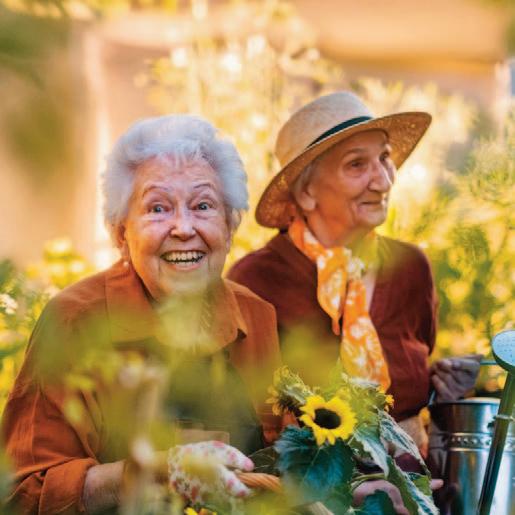

Vital new online tool provides clear, personalised guidance and practical help to those navigating life with dementia.
This week marks Dementia Action Week and the launch of a new web platform created to support people living with dementia and those who care for them.
Developed using lived experience and extensive research, the platform fills a gap in user-friendly online support, with a highly personalised and empowering approach.
As local support services continue to decline thanks to cashstrapped council cutbacks - and in a rapidly evolving digital landscape - researching this distressing subject online is becoming more and more essential. DementiaNet is heavily focused on simplicity and clarity, to minimise the triggers and overwhelm of searching for information to get affairs in order.
It also offers a secure digital vault, downloadable planning tools and a step-by-step dashboard to help people tackle things like a care plan - one manageable task at a time.
DementiaNet was created following direct, personal experience of the dementia journey by two of its three co-founders, Brian Schur and Hugh McGouran. Both have witnessed firsthand the challenges that come with navigating the overwhelming information and practical tasks involved.
Brian struggled when his mother-in-law was diagnosed in 2022: “Just finding out what to do was impossible,” he said. “I’ve worked in the digital world for more than 30 years and despite being savvy online, I still found it a nightmare to do. We were given two leaflets from the GP and
basically were sent away.”
Hugh, who is chair of a dementia charity in the North east, said: “There’s an overwhelming amount of information out there, however, much of it is generic and it’s hard to navigate without being sent down a rabbit hole of links, which lead to hundreds of other results that are not relevant to you at that point. This makes the search for information very upsetting, triggering and often unproductive.
“Overwhelm is immobilising for people in this situation, many of whom are already highly stressed and frightened, whether they are looking for themselves or someone they care for,” he said.
DementiaNet is uniquely designed to offer a more tailored experience; relevant information to help people at the earliest point of their journey to achieve the best sense of control they can - that’s been missing for far too long.”
DementiaNet offers a digital vault for securely storing personal information, care plans and important documents, alongside step-by-step guidance tailored to the user whether they have a diagnosis, suspect dementia, or are caring for someone else. The platform’s accessibility tools cater to users with visual impairments, ADHD and other needs.
Available free of charge with optional paid features for the secure planner and document store, DementiaNet adapts to users' specific situations — whether they’re worried about symptoms, have just received a diagnosis, or are supporting someone with dementia. As the platform grows, it will expand to serve more groups, such as younger carers.
In addition to planning and legal tools, DementiaNet creators are also hoping to tackle the emotional and social isolation many people experience, with an online forum: “We know online communities can be saviours to people in shared experiences, so we’ve built a live conversation area for people to ask questions and help each other,” said Hugh, “Our aim is to build that community overtime, so there’s always somewhere people can go to share and support each other, day or night.”

A built-in search tool also connects users with relevant activities in their local area, which dementia support groups can use to add their event or gathering to. This also has further development plans.
“Our objective is, and will always be, DementiaNet is to be a calm, informative place where people can find answers as easily as possible, get their affairs in order in a step-by-step, manageable way and connect with others,” Hugh adds.
Research shows widespread frustration and dissatisfaction with online dementia resources. A 2024 DementiaNet survey found that 88% of respondents felt unhappy or unsatisfied with existing general dementia-related information and 36% were dissatisfied with government support information.
Fewer than one in three felt “fairly satisfied” with the help they found.
The number of people living with dementia in the UK is expected to rise to 1.4 million by 2040, and with the NHS estimating that 1 in 3 people will care for someone with dementia at some point in their lives. The aim is to grow and develop DementiaNet to be the place people can go to get everything they need to manage life with dementia.
To browse or register go to www.dementianet.com
When residents at Brocastle Manor Care Home in Bridgend, hear the gentle sound of tiny paws padding down the hallway, they know the much-loved cockapoo puppies have arrived, bringing with them joy, cwtches, and lots of tail wags.
It all began when Amanda Davis, Deputy Home Manager at Brocastle Manor, a Hafod care home, found out her cockapoo Cosmo was to become a dad. When the eight puppies arrived, one, Leila, stayed with Amanda and two others found their forever homes with Brocastle colleagues.
Every other Friday, the puppies visit, filling the home with excitement and laughter.
“They absolutely love them,” says Amanda. “They light up the room as soon as they come in, everybody smiles. Residents reminisce of the dogs that they had and it's just wonderful.
“Residents save bits of their breakfast just to offer treats to the puppies. It’s so lovely.”
COMFORT AND COMPANIONSHIP

The puppies are more than just adorable visitors, they’ve become therapeutic companions. Clinical Lead, Olimpia Hojda, who brings her cockapoo puppy Bear with her on her daily rounds, says the presence of the dogs has had a calming, uplifting effect, “I took Bear with me this morning while checking blood sugars and giving insulin. Bear jumped on a
resident’s bed, and they laughed and said, ‘Can I keep him all day?’ It’s comforting. It turns a routine task into something joyful.
“Even residents with limited mobility can enjoy the puppy visits. They come into the office just to check if the puppies need anything, it gives them a reason to get up, to interact.”
Linda Jenkins, Manager at Brocastle Manor, has witnessed firsthand the extraordinary emotional impact the puppies have, particularly on residents living with dementia,
“Some of our residents are non-verbal, but when the puppies visit, their eyes light up, they smile, and it makes such a difference to their day.”
Resident Clive agrees. “I thoroughly enjoy it. When they’re playing and jumping around, it really breaks the day up. Bear even woke me up this morning with a kiss! It reminded me of my Beagle, it’s lovely.”
For Brocastle’s Wellbeing Coach, Ceri Powell, the puppies bring something very special to the home,
“I call it ‘Dog TV’, because when the puppies are here, nothing else matters. Everyone is fully engaged. There are very few activities where everyone in the room is smiling, but this is one of them.”
The Brocastle puppies aren’t just visitors, they’re family. They bring laughter, memories, and emotional connection in a home where compassion, care, and community are at the heart of everything.
These 6-month old puppies bring a joy that is changing lives, one tiny paw at a time.
Jangro’s Soft Dry Wipes set the standard in personal care, offering a trusted solution for both comfort and hygiene. Designed for everyday use in healthcare environments and care facilities, these wipes provide an effortless way to cleanse while being exceptionally gentle on even the most delicate skin.
Made from 100% non-woven cellulosic material, the wipes offer a softness that’s kind to fragile skin, ideal for patients with skin conditions or heightened sensitivity. Whether used in hospitals, care homes or in domiciliary care, they ensure reliable hygiene without causing irritation.
Supporting both daily hygiene routines and specialist skincare needs, these wipes are an essential part of providing dignified, effective patient support. Their generous size and high absorbency make them particularly suitable for full-body cleansing, helping caregivers maintain comfort and cleanliness with minimal effort.

are distinguished by their perfect balance of softness and durability. Expertly
designed as cleansing wipes, they offer superior strength while maintaining an incredibly gentle feel on the skin. The high-quality construction ensures they won’t tear during use, delivering consistent reliability with every wipe. Perfect for daily patient care, these wipes provide the ideal combination of comfort and effectiveness for every hygiene routine.
Manufactured in the UK under ISO 9001, 13485, and 14001 certifications, these wipes meet rigorous standards for quality, medical-grade safety, and environmental responsibility. Each pack is conveniently dispensed from a waterproof packet, maintaining hygiene and ease of access in busy care environments.
Whether you’re aiming to elevate patient care or streamline hygiene routines, Jangro’s Soft Dry Wipes are the trusted choice. Choose Jangro for a product that prioritises comfort, performance and sustainability. Discover how Jangro can support your cleaning needs by visiting www.jangro.net
Chartwell House, part of Boutique Care Homes, has proudly achieved Veteran Friendly Framework (VFF) accreditation, formalised its pledge through the Armed Forces Covenant, and received the Bronze Award in the Defence Employer Recognition Scheme (ERS). Together, these recognitions affirm the home’s deep and ongoing commitment to honouring and supporting the Armed Forces community—both within its walls and across the wider Broadstairs area.
The VFF, developed by Royal Star & Garter in collaboration with the Royal British Legion and NHS Veterans Covenant Healthcare Alliance, supports care homes in delivering person-centred, militaryaware care to veterans and their families. It encourages meaningful engagement, increased understanding, and tailored wellbeing approaches for those who have served.
Kathryn Glass, VFF Project Lead at Royal Star & Garter, shared, “We’re delighted that Chartwell House has achieved VFF status. This is a great commitment to their continuous improvement in the delivery of person-centred care for veteran residents and their partners. This programme will benefit both current and future residents, along with current and future staff at Chartwell House, who are able to access enhanced training and guidance to better engage with the unique military experiences that their residents and partners have lived through.”
At Chartwell House, the principles of the Veteran Friendly Framework are now woven into everyday life. From the earliest stages of enquiry through to ongoing care, Armed Forces status is thoughtfully identified and recorded to ensure each resident’s life story is acknowledged. Personal histories are explored in detail, with wellbeing and care plans tailored to reflect military service where appropriate. Visible symbols such as poppies are used to honour those who have served, helping to foster a deeper sense of identity, pride, and connection across the home.
These efforts are supported by enhanced training for the team, equipping them with the skills and

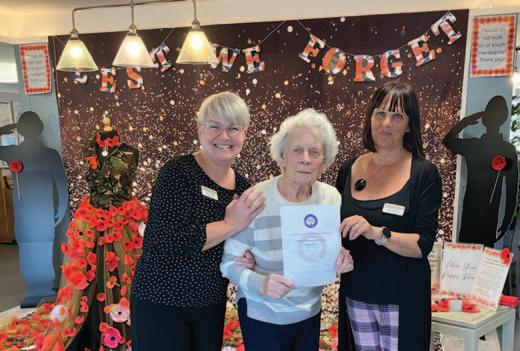
understanding to engage meaningfully with veteran residents and their families. In parallel, Chartwell House continues to build strong links with local Armed Forces groups and charities, working collaboratively to ensure its veteran residents remain connected to the wider community and have access to ongoing support.
Diane Blake, Home Manager at Chartwell House, said; “The VFF accreditation reflects our promise to truly see and support every resident who has served. It’s more than symbolism—it’s in the way we talk, plan, and care. From visits to local veteran groups to monthly gatherings and our visible in-home tributes, we’ve created a culture of honour and connection.”
This commitment is further strengthened by Chartwell House’s signing of the Armed Forces Covenant, pledging fair treatment and opportunity for veterans, reservists, and military families, as well as the Bronze Award recognition from the Defence Employer Recognition Scheme, celebrating inclusive recruitment and veteran-friendly employment practices.
For those seeking care, these accreditations offer reassurance. Jude Coveney, Admissions Manager, added; “Families want to know their loved one will be understood. When someone’s life has been shaped by service, it deserves respect and thoughtful care. These accreditations show we don’t just acknowledge that—we live it, every day.”

• We specialise in the sale and purchase of quality used wheelchair accessible vehicles and ambulances.
• They can be bought as seen or refurbished and sign-written to your own requirements.
• Fully serviced, new mot & warranty
• Engineers inspection supplied if required.
• Free delivery service available
• All buses comply with new legislation
• Lease hire and purchase available
• Always large stock of accessible vehicles


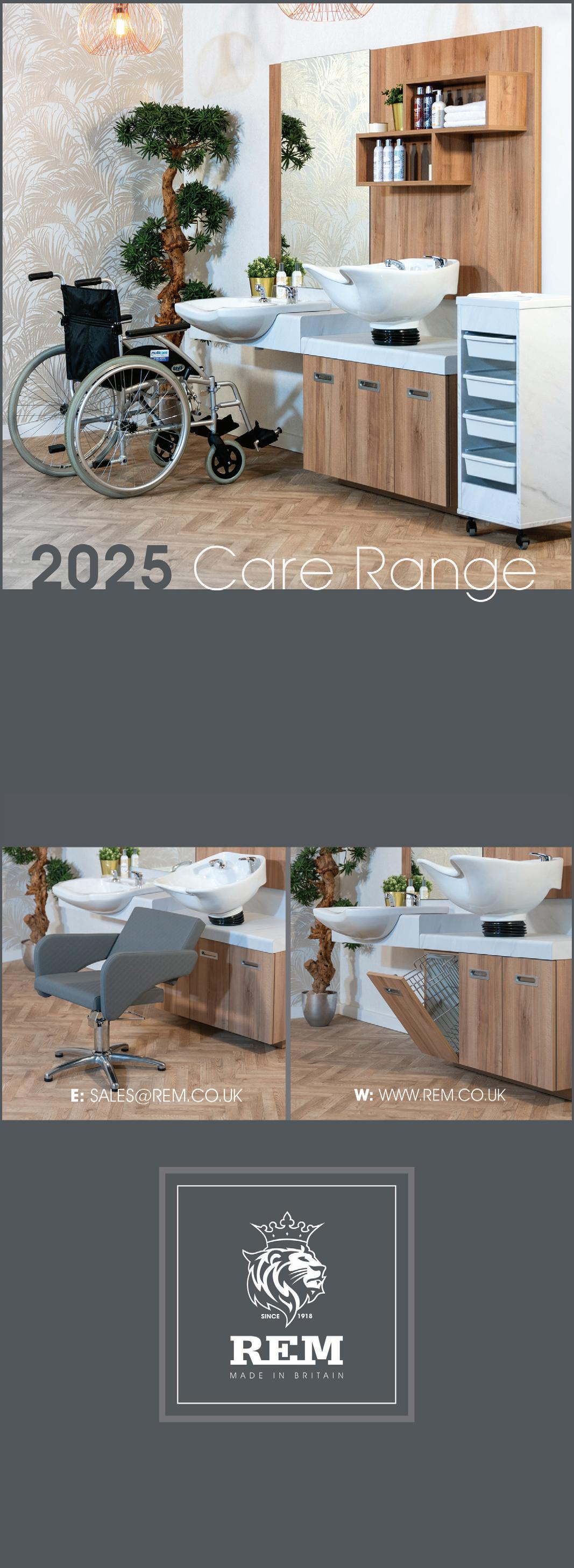
REM have been manufacturing furniture for the Hair & Beauty Sector for over 100 years and are now considered to be one of the largest manufacturers in both the UK & Europe. Understanding the growing requirement for Care & Residential Home Salons, REM’s Design Team have produced the Pendle Care Range for the Small, Compact Care Home Salon.
Care workers at one of Scotland’s largest social care charities are set to begin strike action over what they describe as continued underfunding and a lack of meaningful government support.
Staff employed by Enable Scotland, a prominent third-sector provider supporting individuals with learning disabilities, will walk out over five days in a coordinated campaign for fairer pay.
The action, led by UNISON Scotland, follows a ballot in which 93% of participating members voted in favour of industrial action.
The strike will roll out across multiple areas of the country, starting in East Renfrewshire on 29 May and concluding in Edinburgh and Glasgow on 12 June.
UNISON has stated that this represents the first coordinated national strike by care workers in over a decade, driven by long-standing grievances around pay and what it views as repeated failures by the Scottish Government to address the funding crisis in the sector.

According to the union, frontline care staff have waited years for reform and improved investment, only to see little material change.
Unison Scotland regional organiser Jennifer McCarey said: “Strike action is always a last resort. But unions representing care workers have been working with the Scottish Government for several years on a plan for
social care. But not a single promise made by ministers has been kept. In fact, care workers’ pay has got worse.
“The care sector is in crisis, and that responsibility lies squarely with the Scottish Government. Until care workers are properly valued and paid fairly, the sector will never have the care workers it needs.
“Ministers must fund charitable care properly and act to resolve this issue.”
Enable Scotland has acknowledged the industrial action and stressed that it is working collaboratively with the union to protect the individuals who rely on its services.
The charity, however, emphasised that its ability to increase pay above the real Living Wage is constrained by limited government and local authority funding.
Social care minister Maree Todd said: “We value the vital role social care workers play in delivering high-quality care.
“Pay negotiations are a matter for trade unions and employers and I urge both parties to continue to work together to reach an agreement which is fair for the workforce and affordable for Enable.
“Our 2025-26 Scottish Budget provides an additional £125 million to enable adult social care workers, delivering direct care in commissioned services, to be paid at least the real living wage of £12.60 an hour. This takes our total investment in improving social care pay to £950 million.”

ONE LUXURY care provider is on a mission to radically change the perception of care home food by showcasing the fine dining options available to residents every day.
Hamberley Care Homes showcased the delicious and nutritious options their chefs serve at an event at Southampton's Templeton Place Care Home.
Guests were served a menu of options like those offered to the residents each day, comprising three courses prepared and served in the style of gourmet cuisine normally found in a high-end restaurant.
Templeton's Clifford McCrea, the home’s multi-award-winning Head Chef, said that he, Sous Chef Samuel Lavell and chef colleagues across the Hamberley group were determined to challenge the outdated reputation of care home food.
Clifford said: "Food is an incredibly important part of all our lives – for many residents here, it's the highlight of their day.
"We take pride in offering options that are delicious and nutritious prepared with seasonal produce that's fresh and high-quality.
"Each dish is served with pride and care, so it looks as good as it tastes, and we believe every resident
should be able to enjoy exceptional dining every day."
Hamberley Care Homes recently appointed a new Head of Hospitality, George Paul O'Malley, to continue enhancing the dining experience mission throughout the group.
George said: "Our dining experience helps promote physical health and mental wellbeing.
"By using fresh ingredients that are in season and locally sourced where possible, we're offering food that is both healthy and enjoyable.
"Mealtimes in our homes are the perfect opportunity for residents to socialise, so the dining experience boosts the spirit and nourishes the body.

"Each Hamberley Care Home has a private dining suite where residents can invite their family and friends to share a meal, which enables them to create beautiful memories together.
"We believe by making mealtimes special every day, we can dispel people's assumptions about food in care homes."
As well as offering a varied menu three times a day, the chefs also work to ensure dietary requirements are met, including those in line with cultural and religious traditions.
George added: "Every resident is an individual, and we want to ensure they are eating their favourite foods and that we’re meeting all their dietary preferences and needs.
"Our chefs take the time to get to know the residents, to find out their favourite dishes and any cultural or religious considerations.
"We are determined that the residents in our homes will get to eat the meals they love and have the chance to experience delightful dishes every day on our menus."
A historic home in North Wales is celebrating 60 years of caring for older people.
Hillbury House was built in 1864 on five acres of land on the south west of the city of Wrexham for local businessman John Bury. It became a care home in 1965 when it was taken over by the Catholic Order of the Sisters of Nazareth who ran it until 2005 as Nazareth House when it became part of the Pendine Park care organisation founded by Mario Kreft MBE and his wife, Gill.
Pendine Park is now celebrating its 40th anniversary but Hillbury has been looking after Wrexham people even longer and has a unique history of its own, according to Mario.
He said: “It was built in 1864 for John Bury who was well known locally and was one of the founders of the Wrexham War Memorial Hospital.
“In building the house they dug into a Bronze Age burial mound and found a number of artefacts which were given to the Wrexham Museum.
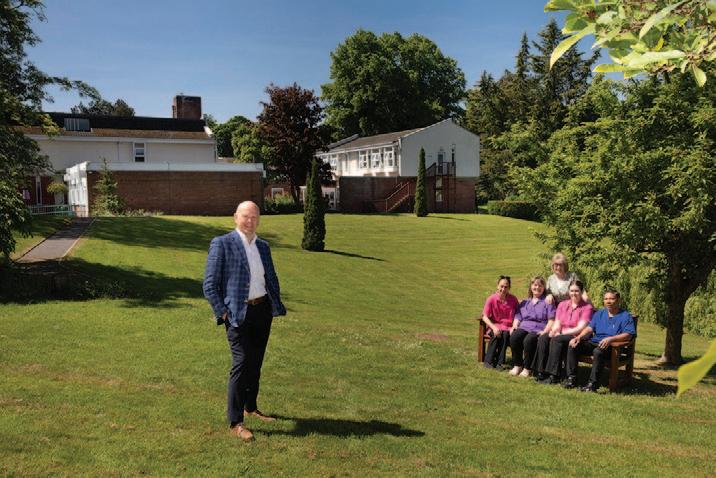
“Gill and I were looking for somewhere to open a care home in 1985 because we wanted a place suitable for our elderly grandparents which would provide the level of care we wanted for them. “A property in Llandudno was set up but it fell through at the last minute and Gwern Alyn became available in Wrexham which was another of the areas we were looking.
“Converting Gwern Alyn into a care home was the start of the Pendine story and choosing Wrexham was the right decision for us.”
Gwern Alyn is next door to Hillbury which became available in 2003 and opened under the Pendine banner in 2005.
Both care homes are run by manager Cindy Clutton, who began her own career in care in 1982 aged just 15, working at weekends and in the school holidays at Nazareth House, as Hillbury was then called.
She said: “My mum was there and she had always worked in care and I went there when I was still in school and I enjoyed it so when I finished school I went on to take a YTS - Youth Training Scheme - in care and started with Clwyd County Council in their home at Wren’s Nest in Rhosddu.
“I joined Pendine in 2000 at Gwern Alyn and they took over Nazareth House and I became acting manager of Gwern Alyn and Hillbury and the rest is history.
“Mario had encouraged me to my Level Five management course and gave me the support I needed and
I’ve been at the two homes ever since.
“I’ve really enjoyed it. It’s a challenging job but it’s also very rewarding when you see the residents all smiling and happy.
“I still love coming to work each day.”
Mario: “We started with 14 residents at Gwern Alyn and now we’re up to 440 at our nine care homes in Wrexham and Caernarfon.
“Later this year we will welcome our 6,000th resident and at the same time we employ 864 people and what we do supports the NHS.
“Four decades on and Pendine Park has become a very, very important community asset for Wrexham and 10 years ago we opened Bryn Seiont Newydd in Caernarfon.
“We were the very first in the UK to deliver what in those days were NVQs – National Vocational Qualifications – although the skills you need as a carer are not something everyone can do and you don’t really learn them at a college.
“It’s about empathy and emotional intelligence and you probably either have or don’t have that by the time you leave primary school.
“So many people can’t do it or won’t do it but these are very important skills and it’s a sad indictment of our society that they’re so undervalued.”
Mario and Gill are both passionate about the arts which have become a “golden thread” running through daily life at all their care homes.
They became the first care organisation in Wales to employ an artist in residence and 30 years later the person they appointed, Sarah Edwards, is still their working with them as a consultant, along with a musician in residence, a creative practitioner and an army of enrichment co-ordinators.
The couple have also launched the Pendine Arts and Communities Trust which supports a host of community and arts-related activities, including the Llangollen International Musical Eisteddfod where they sponsor the Pendine International Voice of the Future competition and the North Wales International Music Festival where they sponsor the Pendine Young Musician of Wales competition.
Gill, a chartered accountant, also set up the influential Wrexham Business Professionals group to promote regional prosperity and shine a light on the enterprise and expertise that exists in the region.
Meanwhile, Mario has also found time to become a fearless campaigner for the social care sector, founding both Care Forum Wales, which represents around 500 independent providers, and the Wales Care Awards, to recognise frontline care workers.
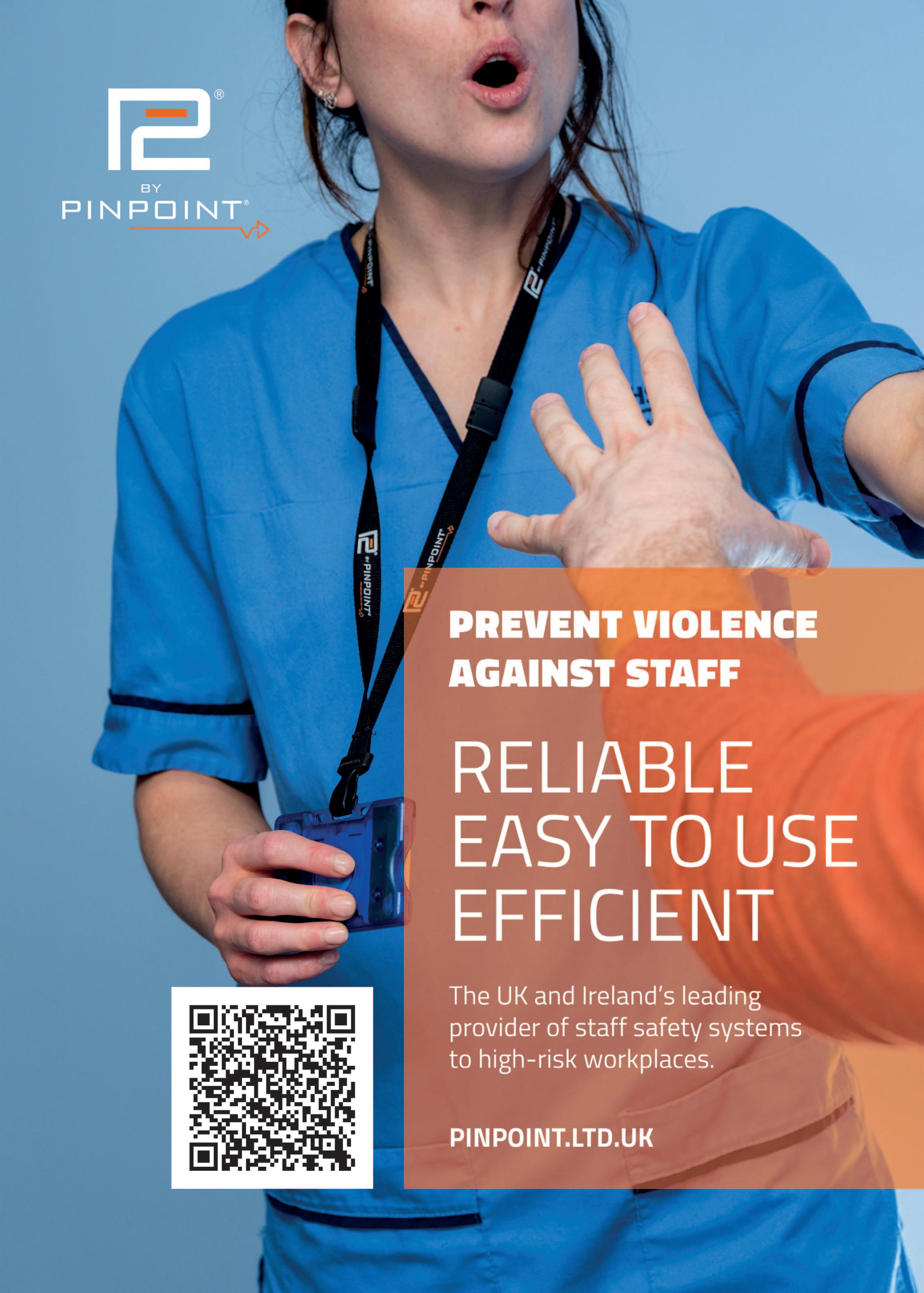
A LUXURY care home group has pledged its support to the armed forces and received recognition for its work.
Hamberley Care Homes is delighted after being awarded the Veteran Friendly Framework (VFF) and Employer Recognition Service (ERS) awards to homes within the group.
Cambridge Grove Care Home, Fulbourn, and Montague House in Brampton have successfully achieved Veteran Friendly Framework status and are now Veteran Friendly Care Homes.
They are the first of Hamberley Care Homes to obtain Veteran Friendly Framework status.
The homes have also been given bronze status in the Employer Recognition Service awards.
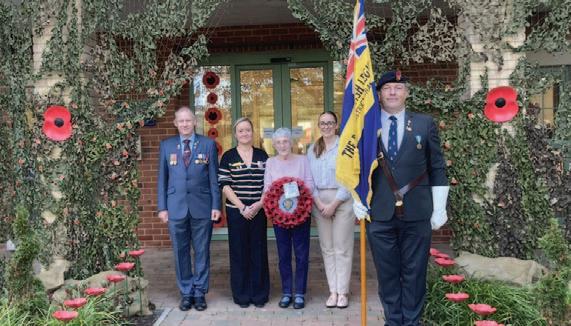
Kathryn Glass is the Veteran Friendly Framework Project Lead at Royal Star & Garter and responsible for supporting and assessing care homes going through the scheme.
She said: “We’re delighted that Cambridge Grove and Montague House have achieved Veteran Friendly Framework status.
“This is a great commitment to their continuous improvement in the delivery of person-centred care for veteran residents and their partners.
“This programme will benefit both current and future residents, along with current and future staff at Hamberley Care Homes who are able to access enhanced training and guidance to better engage with the unique military experiences that their residents and partners have lived through.
“Being a Veteran Friendly Framework care home means that there is an increased understanding and
recognition for the veteran community at both Cambridge Grove and Montague House Care Homes.”
Amy Milburn from Cambridge Grove Care Home said: “We are very proud of our armed forces and grateful for the service of our personnel.
“Our team have worked hard to achieve the status from both highly valued schemes, and we are proud to now shout out about our success.”
Juliet Peall Regional Operations Manager said: “Of course, this has inspired other teams within our group, and we hope to expand both of these programmes to other homes.”
The ERS scheme is awarded to employers who pledge to support the armed forces, including existing or prospective employees who are members of the community. It means they must sign the Armed Forces Covenant and be open to employing reservists, armed forces veterans, cadet instructors and military spouses/partners.
The Veteran Friendly Framework (VFF) supports care homes in identifying veterans and their partners in order to meet their wellbeing needs effectively. It is a free-to-access programme funded by Royal Star & Garter, the Armed Forces Covenant and the Royal British Legion.
Juliet Peall Regional Operations Manager added:: “Thank you to our dedicated teams who are driving this programme. We understand that being handed these awards is a huge privilege and it’s an honour to display the status from both schemes in support of our armed forces.
“We now have to work even harder to demonstrate our commitment. We must continue to show how much we care and value those who have served in our forces, as well as those in our community too who are serving in our forces today.”
Led by Changing Connections Rutland a group of community partners have come together to support two of our villages during Mental Health Awareness Week.
Alongside the Chater Lodge Care Home in Ketton, Citizens Advice Rutland, Rutland County Council, P3 Charity, Rob Persani from Rutland and Stamford Sound and the Cadence RCC Mobile Advice Centre,
The groups visited Manton Village Hall and the Glaston Village Hall to meet and speak with the community about schemes and events taking place in the

local community for those living in or are affected by isolation. Mental Health Awareness Week takes place from Monday 12 until Sunday 18 May. The Mental Health Foundation started Mental Health Awareness Week 24 years ago and it has grown to become one of biggest awareness weeks both across the UK and globally.
This year’s theme is ‘Movement: Moving more for our mental health’ which examines how important movement is for our mental health.
A host of health and social care courses delivered by leading training provider Realise have received the new Quality Assurance Care Learning Services (QACLS) endorsement.
The Department of Health and Social Care (DHSC) has taken on responsibility for reviewing the quality of individual courses and qualifications delivered by training providers within the sector.
Realise submitted 11 of its health and social care programmes to be quality assured – and all received the stamp of approval, including the Level 2 Adult Social Care Certificate.
Funding for health and social care qualifications is now provided through the Government’s Learning and Development Support Scheme (LDSS), which has replaced the Workforce Development Fund.
From April this year, only courses and qualifications delivered by training providers that have been QACLS endorsed will be identified as preferred options by LDSS. And from next year onwards, employers will only be able to claim LDSS funding for courses that have been quality assured.
Care providers currently have to replace almost a third of their workers each year due to staff leaving their jobs. This high turnover has a negative impact on the quality of care - and the DHSC hopes the QACLS endorsement will help boost retention.
Lesley O’Connor, Head of Strategic Development at Realise, said: “We are absolutely delighted to be one of the first training providers to achieve endorsements across a wide range of courses.

“This new system marks a step-change for the industry as it means, for the first time, individual courses are being reviewed rather than the training provider as a whole in an attempt to drive up standards.
“The approval process was thorough, looking at evidence of quality of delivery, testimonials, achievement rates and policies.
“Being QACLS endorsed is very important as it demonstrates quality and also allows employers to continue to claim LDSS funding. Soon employers will have to pay the full price for programmes that are not endorsed.
“We look forward to working with employers who can benefit from quality assured training.”
The QACLS endorsement lasts for three years, with regular monitoring every six to nine months.
Realise will strive to have all its health and social care programmes approved through QACLS during phase two and three of the process. Phase two runs from now until the end of the 2025-26 financial year, and phase three follows immediately after.
The Government says it is "fully committed to a professional, well supported social care workforce" with learning, development and training that is "of outstanding quality, relevant and accessible".
The full list of Realise’s 11 quality assured courses are: Level 2 Certificate in Understanding Autism, Level 3 Certificate in Understanding Autism, Level 2 Adult Social Care Certificate, Level 2 Certificate in Understanding the Care and Management of Diabetes, Level 2 Certificate in Falls Prevention Awareness, Level 2 Certificate in Understanding Nutrition and Health, Level 3 Diploma in Adult Care, Level 4 Diploma in Adult Care, Level 5 Diploma in Leadership and Management for Adult Care, Level 2 Certificate in Understanding the Safe Handling of Medication in Health and Social Care and Level 2 Certificate in Awareness of Mental Health Problems For more information, visit www.realisetraining.com
Brampton Manor, part of the Boutique Care Homes family, is proud to announce a new partnership with Suffolk Sight—a trusted local charity dedicated to supporting people living with sight loss. Together, they are creating a welcoming, communityfocused space where individuals can access personalised guidance, practical advice, and meaningful connection.
The partnership launched on Wednesday 14 May with a wellattended session that welcomed residents, family members, and local visitors into Brampton Manor’s elegant and comfortable surroundings. With sight loss affecting an increasing number of older adults in the community, the event marked an important step in making trusted, local support more accessible and inclusive.
Now continuing as a regular feature, Suffolk Sight sessions will take place on the second Wednesday of every month, from 10:30 AM to 12:00 PM at Brampton Manor. These monthly events are open to residents, families, and the wider community, offering a safe and supportive environment to explore the help available.
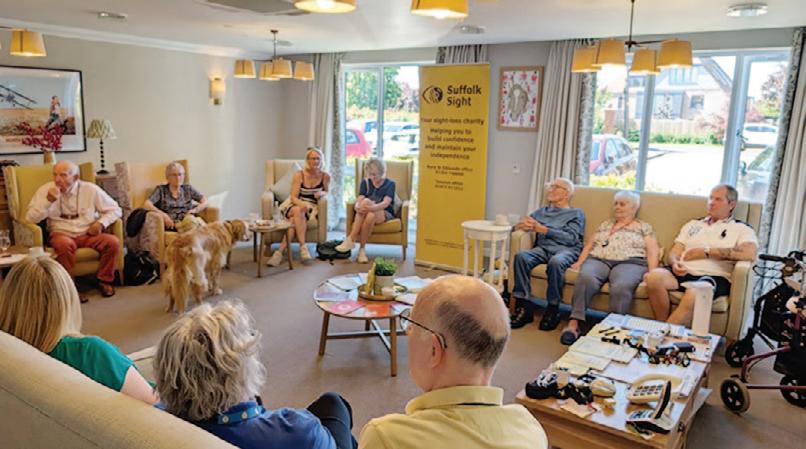
For resident Mary, the first session offered a chance to speak openly about the challenges she faces day to day. “It’s been frightening,” she shared. “But talking to others and learning what support is out there
made me feel less alone.” Suffolk Sight arranged a one-to-one follow-up to help her explore practical options in more detail— just one example of the immediate impact the event had. Suffolk Sight’s knowledgeable team will now be on hand each month to offer tailored advice across a wide range of essential topics. These include practical support for daily living and maintaining independence, guidance on low vision aids such as magnification and assistive reading tools, and help navigating financial matters, including benefits, grants, and concessions. The sessions also explore technology solutions to support visual impairment, alongside opportunities for social engagement and befriending—ensuring that no one has to face sight loss alone.
Whether someone is living with sight loss themselves, supporting a loved one, or simply seeking information, these sessions offer a compassionate and informative space to ask questions and access trusted resources.
Danny, Admissions Manager at Brampton Manor, said; “Supporting wellbeing and quality of life is at the heart of everything we do. By partnering with Suffolk Sight, we’re not only helping our residents, but also extending that support to neighbours in the wider community. This is care that connects.”
Following the government’s announcement that it will close the health and care worker visa route to new overseas applicants, a leading business immigration lawyer from Shakespeare Martineau is urging social care providers to urgently review their existing sponsored workers’ visa statuses.
The call comes in response to the government’s ‘restoring control over the immigration system’ white paper, which was published on Monday, 12 May. The wideranging policy document outlines a significant tightening of the UK’s immigration regime, including plans to shut down key recruitment pathways for sectors such as social care.

Calum Hanrahan, legal director and head of the business immigration team at Shakespeare Martineau, said: “We’re advising all social care employers to assess their current sponsored workforce as a matter of urgency.
“With the closure of the visa route for new applicants, the ability to bring in care workers from overseas will disappear almost overnight. There is a limited transition period until 2028 to extend or switch the visas of those already in the UK, and we don’t expect that window to widen.”
Under the proposed reforms, the skill level for sponsored workers will be increased from RQF 3 (A-level equivalent) to RQF 6 (bachelor’s degree), ruling out the majority of frontline care jobs from eligibility.
Employers will also face a 32% increase in the immigration skills charge and higher salary thresholds, making international recruitment significantly more expensive and less accessible.
The white paper also outlines the creation of a new tempo-
rary shortage list, which will only allow limited, time-bound immigration access for occupations below the RQF 6 level. This list will be tightly controlled, and only applicable where there is evidence of long-term shortages, sector workforce strategies, and commitments to domestic training and recruitment.
Calum said: “These changes represent a major shift in immigration policy. International recruitment has been essential for many care providers, but that model is being dismantled. Those who don’t start preparing now risk significant workforce disruption and the loss of valued employees whose visas aren’t properly managed.”
While the government has indicated it will keep the social care visa policy under review, there is no guarantee any relaxation will follow.
Calum said: “The direction of travel is clear. Immigration is no longer seen as a long-term solution to staffing shortages. Providers must prepare for a future with fewer international options. Providers must begin planning for a future with far more limited access to overseas talent.
“They can do this by auditing sponsored worker visa expiry dates; identifying workers eligible for in-country visa extensions or switching; ensuring compliance with ongoing sponsorship duties to avoid enforcement risks; and accelerating domestic recruitment planning.
“This is not a time for delay. Without proactive planning, businesses face serious risk – not only in terms of staff continuity but also compliance exposure under a stricter immigration regime.”
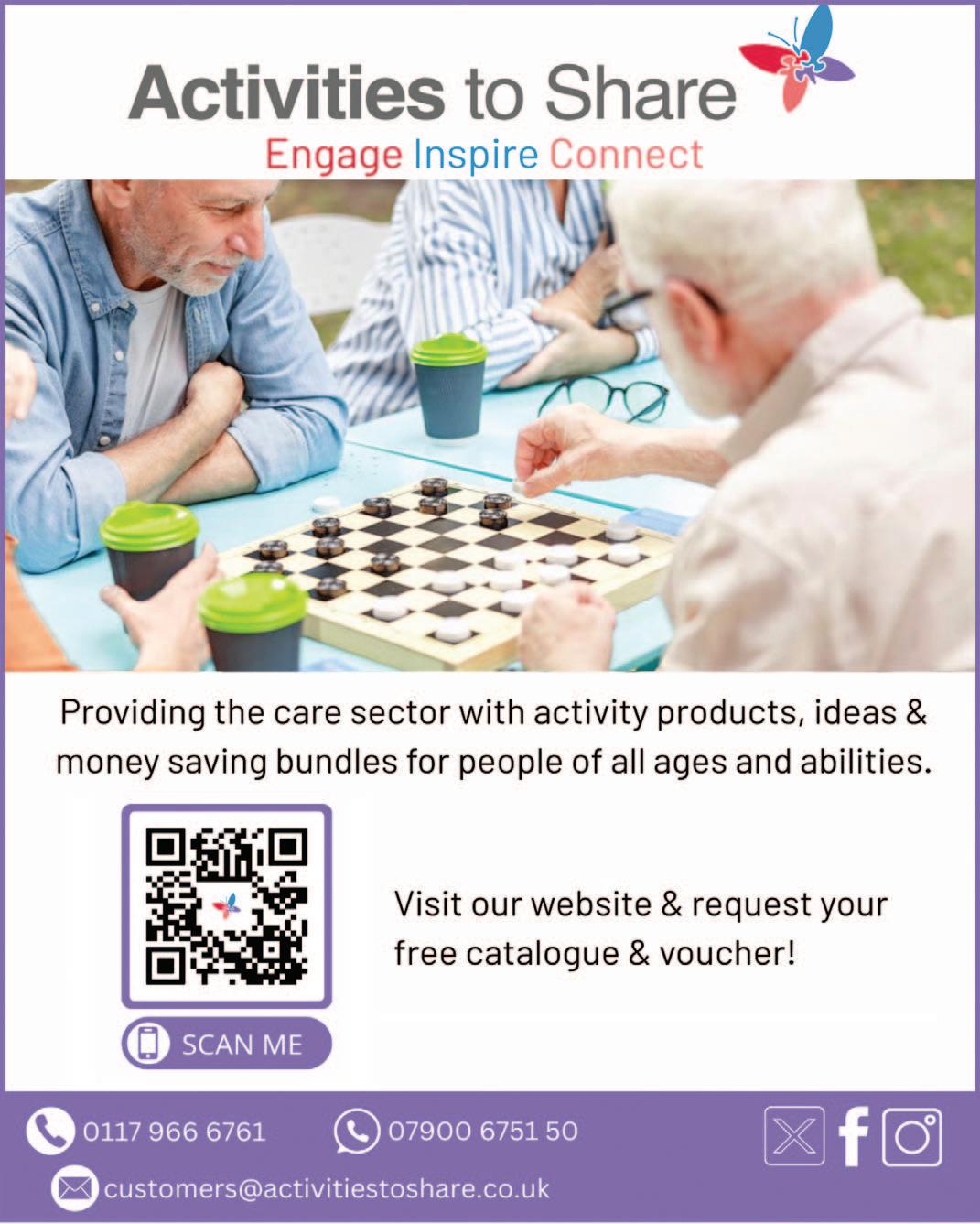




As Dementia Action Week approaches, we’re supporting professional carers, looking after increasing numbers of people with dementia. Day in, day out, we provide emotional advice and practical support to family carers, as they cope with the challenges of dementia care. Those challenges don’t stop when a loved one moves to a care home. They change.
And what many families tell us is, they would like better support from the professional carers they meet.
In fact, of the 1,300 family dementia carers who responded to our 2023 survey, only one third agreed that paid carers understood their needs. This is worrying, given the best possible person-centred care is only possible through working in partnership with families
With estimates of the number of professional carers receiving dementia training as low as 29%1, it could be that some carers just don’t have the training or practical experience to support families well. But most care homes invest in regular dementia training, and a host of other professional requirements. Despite this, many families are not confident about paid carers’ understanding of dementia. Only around a quarter (27%) of our 2024 survey respondents said that paid carers had a ‘good understanding of dementia and dementia care2
So, what could you do differently to ensure your busy, committed and hard-working team have everything they need to support residents and families with the care and compassion you’d want?
Well, whilst you’re busy arranging shift patterns, cover, inspections, visits and the rest, it’s easy to overlook problems with the current basic
By Satya Cashman, Partnerships Manager for

1. Dementia has so many presentations, and no one prognosis, affecting every person differently. To provide high-quality, person-centred care for people with dementia, you need a wide range of knowledge from a broad practice base.
2. Staff churn is challenging for any care business. But all too often, staff move on because they don't feel confident or supported by low-quality training, when they do face those challenging situations.
3. It’s tough getting carers together for a whole or half day of training. Arranging shift patterns and cover, transport from other sites, or managing sickness and emergencies.
At Dementia Carers Count, we understand the pressures you face and the genuine commitment you have to your residents. As a dedicated charity, our mission is to improve support for anyone caring for someone with dementia. That’s why we’ve developed short, regular interventions, delivered live by trainers with experience and insight, to help your staff understand all the dimensions of expert dementia care for your clients and their families.
Our 90-minute format minimises disruption to your schedules, while maximising learning outcomes. These focused sessions share genuinely useful knowledge in an accessible and engaging way. And as all our CPD accredited training comes from years of experience supporting carers, you can feel confident you’re your staff will learn from the very best.
What’s more, proceeds from our training go to our work for family carers across the UK. When you work with us, you're supporting your team and your local community.
To speak to Satya and find out more about training– and receive a 30% discount when you enquire before Dementia Action Week – visit www.dementiacarers.org.uk/DAW
A Carterton home had some special visitors in the form of some farm animals, who were a huge hit.
MHA The Homestead welcomed members of The Good Day Farm in Chipping Campden to come and visit staff and residents.
The team from the farm brought with them Lambs, Guinea Pigs, Rabbits, Ducks, Cockerels, and a Tortoise. The visit was courtesy of a donation left by the family of a resident, who specifically asked for some of the money to go towards the farm visiting.
Residents are no strangers to having animals coming into the home as last month they had some penguins come to visit.
MHA The Homestead provides residential and residential dementia care for 68 residents.
Speaking after the visit Jo Tuckfield, activity coordinator said: “We

had used the farm for a visit before, but we have had some new residents and staff, so it was nice to have a refresh.
“Initially the animals were set up to come inside, but as the weather was glorious, we decided to set up outdoors.
“The residents and staff were very happy to see the animals, the visit was a surprise for some as we did put a notice up telling everyone, but some didn’t see it.
“The animals were here for just over an hour and everyone including staff members had a great time
“The residents had plenty of opportunities to pet, feed, and cuddle the animals and there were plenty of smiles throughout the visit.
“The animals were really well behaved, and I am pretty confident it will be something we decide to do again later on in the year.”

Residents at Ribble Court care home in Preston, part of Sandstone Care, were treated to a special visit from some fluffy new friends – a group of chicks who stayed at the home for a few days.
The chicks, already hatched and around two weeks old, were housed in the main lounge for everyone to enjoy. They were also brought to the rooms of residents who residents who were unable to leave their rooms, as the chicks can be out of the incubator for short periods of time, allowing all residents the opportunity to take part in this heartwarming activity.
The visit proved to be a huge hit with residents and staff alike. Many residents have fond
memories of farm life and childhoods spent around animals, making the presence of the chicks a nostalgic and joyful experience.
Kerry, Social Activities Coordinator at Ribble Court, said: "The chicks brought so much joy to our residents. It's lovely to see their faces light up, especially for those who grew up on farms – it brings back so many happy memories.”
Abbi Street, Social Activities Coordinator at Ribble Court added: “This was an activity that everyone was involved in, and that makes it all the more special. It also reminds us that Spring has finally arrived and we can look forward to many more fantastic activities, particularly enjoying the sunshine.”
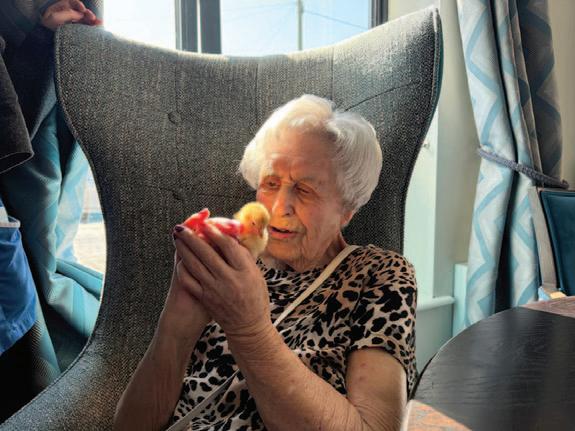
Residents at a Wellington care home have been making the most of the flexibility offered by online exercise classes to work on their own flexibility by taking part in chair yoga.
Harriet Burraston, activities coordinator with specialist dementia care provider Camelot House and Lodge, said: “Encouraging our ladies and gents to keep active can be quite challenging because of their dementia, so the key to success is keeping it fun.
“We’ve started doing online chair yoga classes with them using our large tablet, and they’re absolutely loving it.
“Chair yoga is great for older people because it’s low impact and can improve their balance and strength without any risk of falls.
“It’s a safe and accessible form of exercise that can be modified to suit each individual.
“For people who spend a lot of time sitting, which is often the case for those living with dementia, chair yoga can help increase the range of motion in their joints and muscles as well as relieving the tension and stiffness linked to conditions like arthritis.
“And then there’s the added bonus that the gentle movements and focused breathing definitely seem to reduce stress and boost everyone’s mood.
“Not all our residents need to stay in their chairs, so there’s always quite a range of activity going on in the lounge when the yoga instructor is doing her thing, but what is clear from everyone’s faces is how much they enjoy these sessions.”
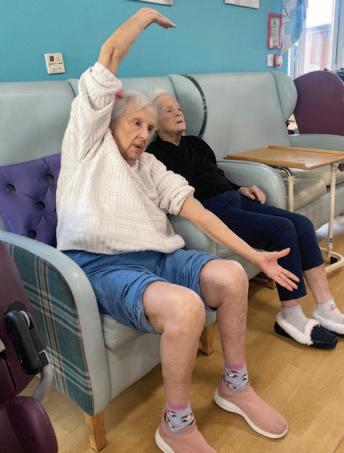
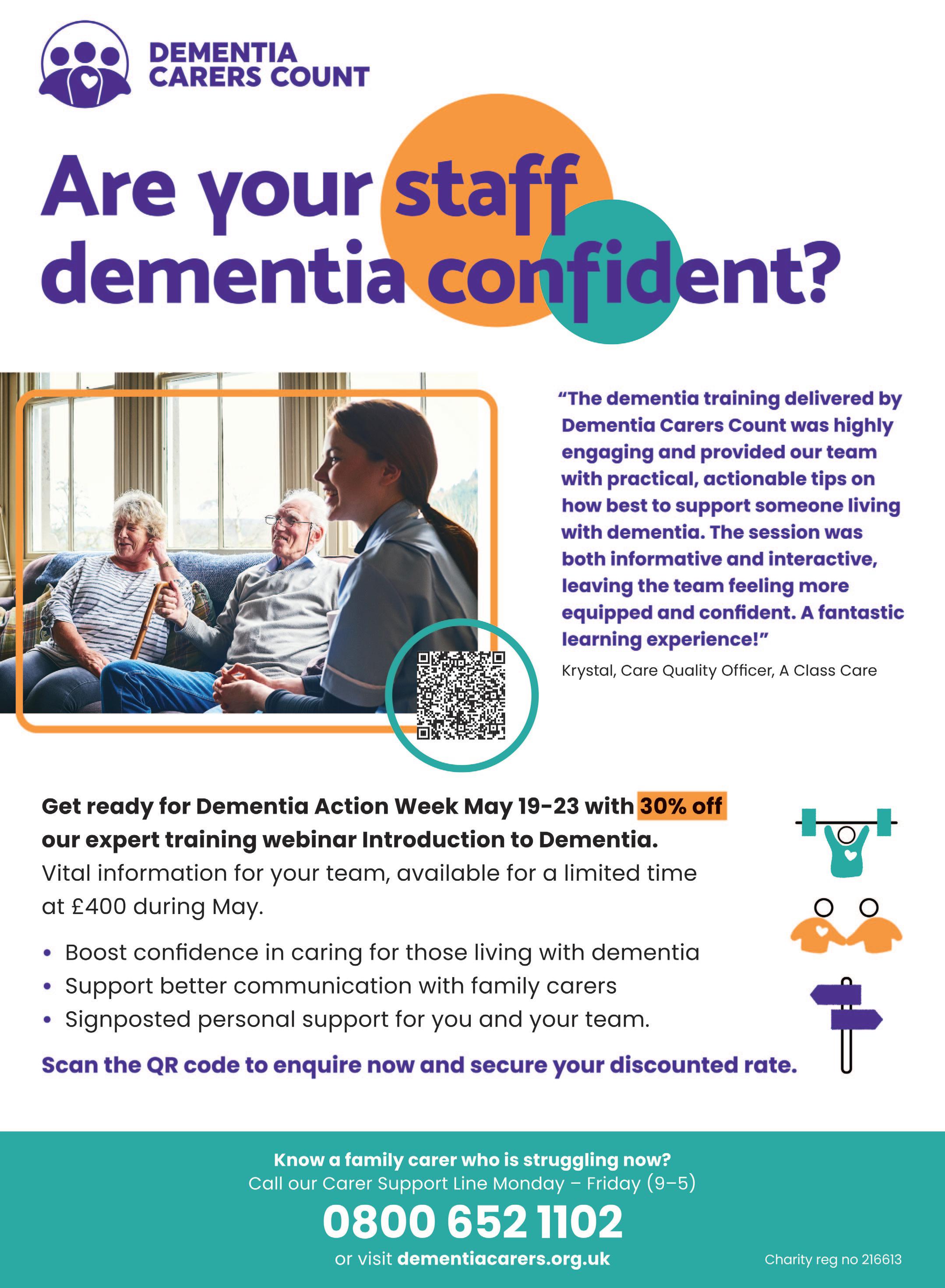
Further cuts to staffing and services are likely if NHS organisations need to shoulder additional pay costs above what is included in the NHS budget.
That is the warning from the NHS Confederation following reports that the government could accept a pay rise for NHS workers in England above what has been allocated in the health service’s budget for 2025/26.
Recent media reports have speculated that the Independent Pay Review Body, which advises on the pay of NHS workers, has recommended a pay award of 3 per cent for Agenda for Change staff in 2025/26. This covers the majority of NHS staff including nurses, paramedics, occupational therapists and healthcare support workers.
However, this would be above the 2.8 per cent that is budgeted for. A recommendation from the Doctors’ and Dentists’ Review Body has been submitted to government, and NHS leaders are worried this could also propose pay rises beyond what is budgeted for.
It is estimated that every extra 0.1 per cent on pay for all staff groups – doctors and dentists as well as Agenda for Change staff – costs around an extra £125 million a year recurrently. So, if both pay review bodies recommend a pay rise of 3 per cent it could cost the NHS an estimated £250 million extra on top of the funding it has allocated for pay rises this financial year.
Only days ago, NHS England chief executive Sir Jim Mackey thanked leaders on agreeing balanced budgets recognising the many challenges of now staying within those budgets. An unfunded pay increase runs the risk of unravelling much of that work.
With integrated care systems and NHS trusts already being asked to make tough efficiency savings in 2025/26, there is a risk that if NHS organisations in England have to find the extra funding from their own budgets this could require cuts elsewhere.
This will be challenging for all providers, but mental health and community providers will feel the pinch a

bit more as they spend a greater proportion of their budgets on pay due to the nature of the care they provide.
Matthew Taylor, chief executive of the NHS Confederation, said the NHS has little to no headroom to make up the difference if what is agreed is above what has been budgeted for in 2025/26.
He added: “While we respect the independent pay review body process and its recommendations, any decision by government to increase NHS pay beyond the 2.8 per cent that is in the budget this financial year will result in extra cost pressures that cannot be easily absorbed.
“It is vital we continue to invest in the dedicated staff whose hard work and goodwill keeps patients safe every day of the year. We know they have faced years of limited pay increases and that is why we welcomed the government prioritising ending the industrial disputes and uplifting pay – including more generous offers for resident doctors. This will be vital for helping to boost recruitment and retention in the long term.
“However, the NHS has entered one of its most challenging financial years, with NHS organisations having to deliver unprecedented efficiency savings. These are already resulting in cuts to certain roles and services, with more cuts expected this year.
“Asking local NHS organisations to cover the difference themselves is effectively asking them to make cuts elsewhere, which is not sustainable.”
Integrated care boards have been charged with cutting their running costs by 50 per cent from October 2025 and NHS trusts told to reduce their “corporate cost growth” by half the amount from the year before the pandemic.
The NHS Confederation has already called for a national staff redundancy fund to smooth the pathway to the major budget cuts, or it could leave the health service in a financial deficit in the next financial year.
Stowe Mount, Lichfield’s newest care home by Crystal Care Collection, introduces Cathy Coulson as its new General Manager. With nearly 40 years of care experience—much of it dedicated to dementia care—Cathy brings insight and compassionate leadership to the heart of Stowe Mount.
Her extensive career includes managing care homes across Staffordshire, where she has earned a reputation for delivering exceptional care with dignity and respect.
A registered nurse, Cathy champions a transparent, empathetic, and collaborative approach to care—values that align closely with the culture at Stowe Mount. Cathy said,
‘Outstanding care is about building a home where residents feel safe, understood, and truly cared for. At Stowe Mount, we’re creating a place where every detail matters—from the environment to the relationships we build with families and the wider community.’
Stowe Mount’s first residents have already reserved their rooms, and Cathy is excited to lead the home into its first chapter, starting with the home’s Grand Opening on Saturday 31st May from 11:00. Cathy continues, ‘All are welcome to our Greatest Showman themed Grand Opening, ‘This is the Greatest Stowe’, where we’ll have lots of circus themed games and entertainers, refreshments, and guided tours of Stowe Mount.’
Windmill House Care Home, part of the Runwood Homes Group, marked its 14th anniversary with a joyful celebration on Tuesday 29thApril, honouring more than a decade of dedication, compassion, and connection within the community.
To commemorate the milestone, Windmill House hosted a vibrant open day celebration featuring live entertainment by A Sinatra Affair, a delicious buffet, drinks, and cake. The event brought together residents, staff, and families in a warm and joyful atmosphere to reflect on the home’s legacy and future.
Home Manager Maria Paranal delivered a heartfelt speech, sharing her personal connection to the home and the journey that led her to Windmill House.
“It’s a real pleasure and honour to be with you all to celebrate 14 years of Windmill House—a home that has become a place of warmth, care, and connec-
tion for so many,” she said.
“To our staff—your hard work, compassion, and commitment are the backbone of everything we do. I especially want to acknowledge our longest-serving team members, Karen Gayton and Nicola Ashmore, who have both been with us since the very beginning. Your loyalty is truly inspiring.”
The occasion also recognised Jayne, Windmill House’s Employee of the Month, who was applauded by her peers for her outstanding dedication and efforts.
A highlight of the day was the presentation of certificates and flowers to Karen Gayton and Nicola Ashmore, celebrating their 14 years of continuous service.
As the home looks ahead, the sense of community and shared purpose remains strong.

The South West’s Leading Care & Occupational Therapy Event – Are You In? Here’s 5 Reasons You Need to Be at The Care & Occupational Therapy Show! On 16th July at Westpoint, Exeter, The Care & Occupational Therapy Show is bringing together the best in the Care and Occupational Therapy industries for a game-changing event. We will be there, here’s why you need to be there too:

�� Unmissable keynote sessions from industry leaders like The Homecare Associations, Care Rights UK, and many more.
�� Networking opportunities with likeminded professionals

�� CPD-accredited seminars and workshops to level up your skills.

�� Meet expert exhibitors showcasing innovative solutions.

�� It’s 100% FREE!



A groundbreaking Europe-wide gene therapy trial, delivered in Wales by the Advanced Neurotherapies Centre, funded by Health and Care Research Wales, could potentially stop the progression of frontotemporal dementia (FTD) with a single procedure.
Patients across the continent are being recruited to the ASPIREFTD trial, which will be delivered at Cardiff and Vale University Health Board. The Advanced Neurotherapies Centre is currently the only centre in the UK, and one of just two across Europe, able to perform MRI-guided infusions of gene therapies, providing the capability to dose clinical trial participants from across the UK and beyond.
This first in-human trial, sponsored by AviadoBio, aims to evaluate an investigational gene therapy, AVB-101, in people with frontotemporal dementia with GRN gene mutations (FTD-GRN). FTD is a form of early-onset dementia, the most common form in people under the age of 60. It accounts for around one in 30 cases of dementia in the UK. Symptoms include reduced mobility, changes in personality or uncharacteristic behaviour, progressive loss of language and loss of executive function and cognitive abilities.

People with FTD-GRN produce a reduced amount of a protein called progranulin. The investigational therapy uses a minimally-invasive procedure to deliver a functional copy of the GRN gene directly to the brain. This could potentially restore progranulin levels and, crucially, stop progression of the disease. Michael Bowdery, Head of Programmes, Research and Development Division at Welsh Government, said: “This is a really exciting study which has the potential to be absolutely transformative in the treatment of this devastating form of dementia.
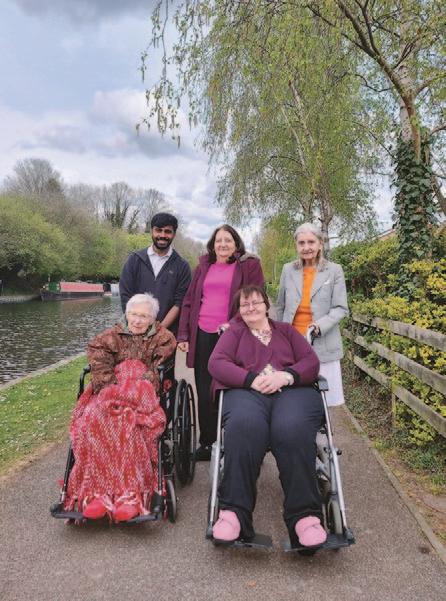
“Thanks to funding from Health and Care Research Wales, the Advanced Neurotherapies Centre – and its predecessor, the BRAIN unit – over nearly a decade, Wales has the capacity and capability to deliver this cutting-edge clinical trial which has the potential to change lives for patients across Europe and the UK.
“We are very proud that the Advanced Neurotherapies Centre is spearheading the delivery of this trial in the UK.”
Professor William Gray, PI, Neurosurgeon at Cardiff University and Cardiff and Vale University Health Board and Health and Care Research Wale Senior Research Leader, said,
“We are delighted to be able to surgically deliver AVB-101 in the ASPIRE-FTD trial in Cardiff, offering hope to patients living with FTD in the UK and beyond. This trial represents a major step forward in the search for a treatment in FTD, potentially bringing a new therapy to reality for patients.
“In order to fully understand the impact of AVB101 on the brain, we need to overcome some of the barriers that can prevent drugs from reaching the brain. At the Advanced Neurotherapies Centre, we are able to deliver drugs directly into the brain, targeting specific regions. Not only this, but we are able to do so in an MRI scanner, to get real-time imaging of the process and its impact.”
Suzanne Rankin, Chief Executive Officer at Cardiff and Vale University Health Board, and Senior Responsible Officer for the Advanced Therapies Wales Programme, said: “It’s great to see these advanced therapies positively impacting patients across Wales. I’m proud that Cardiff and Vale University Health Board continue to contribute to this exciting research. It’s brilliant to be able to support such pioneering work, and I’m grateful to our researchers and wider team involved for their hard work and dedication.”
Residents at HC-One’s River Court Care Home in Watford, Hertfordshire, recently embraced the beauty of the season with two uplifting Spring outings that combined fresh air, wildlife, and the joy of companionship.
The first of the two excursions took place at Byewaters, near Croxley Green—a picturesque canal-side haven well-loved for its tranquil setting and rich wildlife.
Residents spent a peaceful day enjoying tea and snacks by the water, feeding ducks and swans. The highlight of the trip came when an unusual duck species sparked curiosity and friendly debate among the group, culminating in much laughter and a shared sense of discovery as they identified the mystery bird together.
Not long after, the group ventured out again—this time to the Aquadrome in
Rickmansworth. With its stunning lakeside views and nature trails, the setting offered a refreshing change of scenery. Residents were delighted by the variety of birds and the many friendly dogs being walked, enjoying several heart-warming encounters that added an extra layer of joy to the day.
Cecilia Kassanga, Home Manager at HC-One’s River Court Care Home, said:
“These outings are a lovely way for residents to reconnect—with nature, each other, and the wider community.
“The laughter, fresh air, and shared moments made it truly special.”
Both trips were part of River Court’s commitment to enhancing resident wellbeing through meaningful, enriching activities. They served as powerful reminders of the simple pleasures that can bring the greatest happiness.
Wellington resident Brian Standring is not one for sitting still.
When not getting involved in life at Ivy House, the Abbeyfield-run independent living scheme he lives at in Corams Lane, the 86-year-old can often be found enjoying his hobby of Nordic walking or participating in his local parkrun in Taunton every Saturday morning.
More recently, however, he has discovered a new pastime. While jumping out of a plane at 15,000 feet may not be everyone’s cup of tea, Brian describes the experience as “magic”. He will be attempting his fourth skydive this Saturday 24th May, during Dementia Action Week, to raise money for Alzheimer’s Society.
“It’s breathtaking,” he effuses, “quite outstanding to see the world from up there. It’s great fun.”
The reason that skydiving appeals to him is not just the thrill of it, but it is also a great opportunity to raise money for a cause very close to his heart.

Having previously helped to care for his friend, Alan, and had other friends who have lost their lives to dementia, Brian knows all too well the tremendous toll it can take, not just on people who live with dementia, but also their friends and family. He calls the day-to-day experience of carers “the rough end” when it comes to dealing with the effects, and it was Alan’s diagnosis that inspired him to become a Dementia Friend in 2014, a programme run by Alzheimer’s Society.
“Ever since,” he says, “I’ve been passionate about trying to do something, whatever it might be, to help people with dementia. The great thing about being a Dementia Friend is that you can be a ‘friend’ to someone with dementia, however you interpret that to be. There are so many opportunities to choose from and you can give however much time you want.”
Brian has volunteered as a Companion Caller and has sat on the Volunteer Advisory Panel for the organisation. They have recognised his contribution by presenting him with two prestigious People’s Awards in
2021: in the Couldn’t Do Without You category, which is chosen by a group of staff, volunteers and trustees; and in the Best of the Best category, which is given by the Chief Executive.
Ever modest, Brian is keen to downplay these achievements.
“I was very proud and honoured to receive the awards, but I just see them as awards for volunteering,” he explains, “and there are a lot of very good volunteers. I don’t pretend to be particularly special in that regard.
“I suppose the aspect of helping those less fortunate is in my DNA. That’s what I’ve tried to do with the Marlow Striders,” (an inclusive running club Brian co-founded in 1990 when living in Buckinghamshire), “and with Alzheimer’s Society.”
Brian also regularly helps out at his local church, and helps to organise fundraisers at Ivy House, which is run by the charity Abbeyfield Living Society. One such event is happening this Friday, where proceeds from the raffle will be donated to Alzheimer’s Society, one of their chosen charities.
Brian is aiming to raise £2,000 for Alzheimer’s Society through his upcoming skydive. If you would like to donate, please visit his fundraising page at www.justgiving.com/page/brian-standring-11 (or you can search for his name at the justgiving.com homepage and click on the ‘Why I am jumping out of a perfectly good aircraft at 15,000 ft?’ heading.
Brian understands that the money he raises could go towards paying for somebody making phone calls to someone living with dementia or their carer; or to somebody answering the call for help; or to a researcher to continue to develop better treatments for the disease.
However, he says, “It doesn’t really matter to me what it’s spent on in specific terms.
“As long as it ultimately helps someone with dementia, or their carer, or their family, that’s why I do it.”
Up to two-thirds of foreign nurses working in the UK plan to leave and work in a country other than their home nation according to new research.
Recently proposed immigration measures announced by Prime Minister Sir Keir Starmer could “accelerate an exodus of migrant staff”, Professor Nicola Ranger, RCN General Secretary and Chief Executive, said.
In her Congress Keynote Speech, Professor Ranger called on the government to stop making life difficult for nursing staff who want to work in the UK. She said ministers should bring down immigration application costs, give IENs access to benefits and grant indefinite leave to remain to all nursing staff “without delay”.
The RCN heard the views of more than 3,000 IENs working in the UK, with 42% saying they are planning to leave the country, in a report released at RCN Congress. This comes as the government announced plans to close the care worker visa route at a time of widespread vacancies in social care.
“Our report shows thousands of migrant nursing staff are ready to leave the UK. This situation is bad enough, but now the government’s cruel measures could do great damage to key services,” she added.
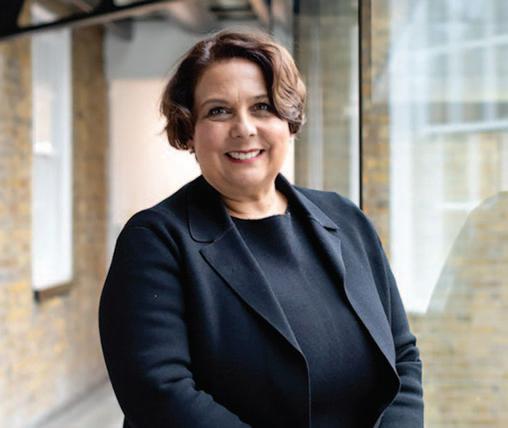
Of those who planned to leave, 70% said better salary would influence their decision to stay in the UK, and 40% said immigration policy would be another important factor. The report also details shockingly normalised levels of discrimination faced by migrant nursing staff. Overall, two-thirds (64%) of respondents said they had experienced discrimination since moving to the UK.
Two-thirds of people told the survey they planned to leave the UK for a country other than their home nation.
Other countries offer faster and less expensive routes to indefinite leave to remain (ILR), giving migrant workers greater security. In the UK, those on a Health and Care Worker visa must currently wait a minimum of five years, paying yearly visa renewal costs and then more than £3,000 per person to apply for ILR. Ministers have indicated they want to extend the wait to apply for indefinite leave to remain to 10 years, though we don’t know what this will mean for nursing staff. Without ILR, those on temporary visas like the Health and Care Worker visa are blocked from accessing essential benefits – such as housing benefit, child benefit and Universal Credit – under a condition called no recourse to public funds (NRPF). The situation has left some resorting to food banks and charity assistance to make ends meet, with one telling us they were forced to send their baby back to their home country.
Professor Ranger said that closing the care worker visa route and making migrant nursing staff wait longer to access vital benefits will create a “hostile environment on steroids”.
“They pay tax and work in our vital services, they deserve the same rights. Sadly, this government is intent on pushing people into poverty, away from the country, and with no credible plan to grow the domestic workforce in sight. Government must do all it can to get the next generation into nursing,” she continued.
“Rather than pandering and scapegoating, ministers should focus on what patients and vulnerable people need – safely staffed services. Without the measures we’re calling for, our amazing colleagues from overseas will continue to leave.”
Staff and residents at Barchester’s Mallard Court care home in Bridlington marked Parkinson’s Awareness Week, which runs from April 10th to 16th. The home welcomed the local Parkinson's UK branch for a special edition of the home's regular support café.
James Parkinson was a neurologist, geologist, scientist, and activist who was born on April 11, 1755, and died on December 21, 1824. Parkinson’s Awareness Week is a global call to action to raise awareness of Parkinson’s disease and promote a greater understanding of the condition and how it can affect a person.
The group and residents spoke about how Parkinson’s has affected their lives and how they support one another. Homemade cakes and refreshments were on offer, creating a warm and welcoming atmosphere.
The staff and residents spent time learning about how Parkinson’s
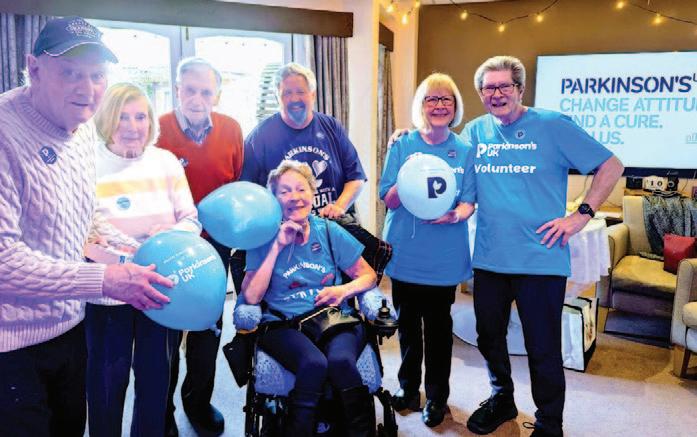
disease can affect different parts of the brain and body, causing involuntary movements or rigidity in muscles, which can then ‘freeze up’ and not work. Residents and staff also learned about the possible psychological impact of the medication used to treat the disease, which can cause compulsive behaviors and depression in some people. It can also be linked to a reduced sense of smell, impaired vision, and attention deficit disorder.
General Manager, Ange Dooley-Widd, said: “Parkinson’s affects a lot of older people, and some of our residents are living with the disease, so it was important for us to mark the week. We have all learned a great deal about the effects of Parkinson’s and have a greater understanding of how varied and unpredictable the symptoms can be.”
At Hatherleigh Nursing Home, we tell the story of Leslie Gilbert, a family member (resident) living here, who recently celebrated his 99th birthday. A lifelong farmer, devoted preacher and family man, here we share with you 99 years of a life full of love for the land he worked, the faith that guided him, and the people he holds dear. Born on the 30th of March, 1926, in Lower Stowford, Halwill, West Devon, Leslie grew up with his mother, father, who was a WWI veteran, and two younger sisters. The Gilberts were a farming family and later moved to Petrockstowe in 1930, where they rented a mixed farm from the Clinton Estate. He left school at 14 to work on the family farm, and by 17, became a local preacher for the Methodist Church—a role that remained central throughout his life.
When Leslie turned 18, the Second World War was well underway. Initially called to work in the mines, he was later deemed essential to the war effort and continued farming. He raised prize-winning Large White pigs, joined the Young Farmers, and later became chairman of the local NFU branch.
In 1955, he married his first wife, Olive. They built up the farm after his parents retired and eventually purchased it from the Clinton Estate. The farmhouse has roots dating back to the Domesday Book of 1086. They had four children, Geoffrey, Marilyn, Michael and Kenneth—all involved in farm life from an early age. Leslie loved sharing stories with them after work. In 1989, Olive sadly passed away. He was supported by his son Michael, and in 1991, the arrival of grandchildren brought joy back into his life. Leslie served as an ambassador for the Leaders of Worship and Preachers Trust and was honoured for 70 years of service. With a strong bass voice, he joined a local choir, where a friend introduced him to Lucy, his future second wife.
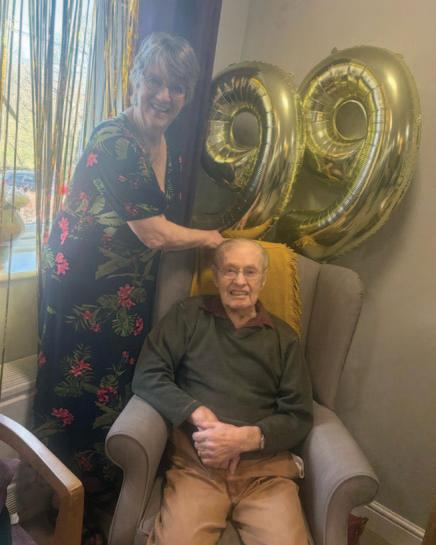
They married in 1995 and In his wedding speech humorously remarked that he had “always fancied her”. Leslie left the farm to move to Hatherleigh, adapted quickly to town life, and was delighted to welcome
three stepchildren and six grandchildren into the ever growing family.
Together, Leslie and Lucy have enjoyed 30 years of marriage and travelled to Tasmania, Perth, and Bangkok to visit family. Leslie is now a great-grandfather to four, with another expected in the summer, and keeps in touch online with his grandchildren in Australia.
Now living at Hatherleigh Nursing Home, Leslie is recognised for shaping his community through the generations, by supporting the war effort, being a strong voice in the agricultural community and his presence in the church. He’s supported to live a continuation of life, one that reflects his family values and lifelong passions. Lucy visits the home most days and often takes part in events and activities alongside Leslie. He enjoys participating in animal therapy visits, joining in the home’s regular church services and performances from the local choir, reading farming books and spending time in the garden. But most of all, Leslie treasures his time with his grandchildren, great-grandchildren, and his Lucy.
The team at the nursing home in Okehampton, Devon, organised an afternoon teastyle party to celebrate Leslie’s 99th birthday. The room was decorated with balloons and personalised banners, with a homemade spread prepared by the team to create a warm, welcoming space for Leslie and his loved ones. As part of the celebration, a member of his family gave a reading, reflecting Leslie’s faith and the importance it continues to hold in his life. As we celebrate this special day with him, he continues to be surrounded by care, companionship, and the people he holds dear, within a strong and supportive community.
We asked Leslie what his secret to a long life is. “Having a good woman”, he shared.
Happy Birthday Leslie!
Residents at an Oxfordshire care home had an ice-cellent time when two penguins visited on International Penguin Day (25 April).
Pringle and Widget waddled their way into the hearts of residents and staff at MHA The Homestead in Carterton, Oxfordshire, as they spent time wandering round the home, much to the delight of everyone.
Animals visiting care homes run by Methodist Homes (MHA), the country’s largest charitable care provider, is not unknown but this is the first time penguins have ever hopped over the threshold of one of their 75 homes. Many MHA homes have their own pets, ranging from cats to rabbits and rescued chickens, and therapy dogs and exotic animals such as snakes often visit.
The penguins came from Heythrop Zoological Gardens in Chipping Norton, and have visited schools and care homes previously.
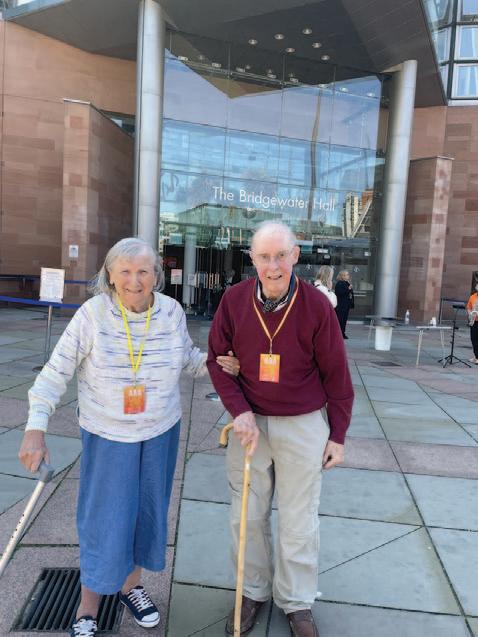
MHA The Homestead care home manager Pawel Wisniowski said: “Having animals visit the home helps enrich the lives of those who live here.
“Penguins are perhaps the most unusual animals we have had visit and they were loved by everyone. Residents had the opportunity to let them sit on their lap and give them a stroke.”
Resident Vera Hibberd (85) said: “I was so excited when I knew the penguins were coming. When they walked towards us, I just wanted to cuddle them. They were like little children wanting to go everywhere.
“I get one on my lap and stroked him. I thought they would be hard to touch but their surface was just soft like a baby.
“My favourite animal is a giraffe but I think the penguins were better because I could hold one.”
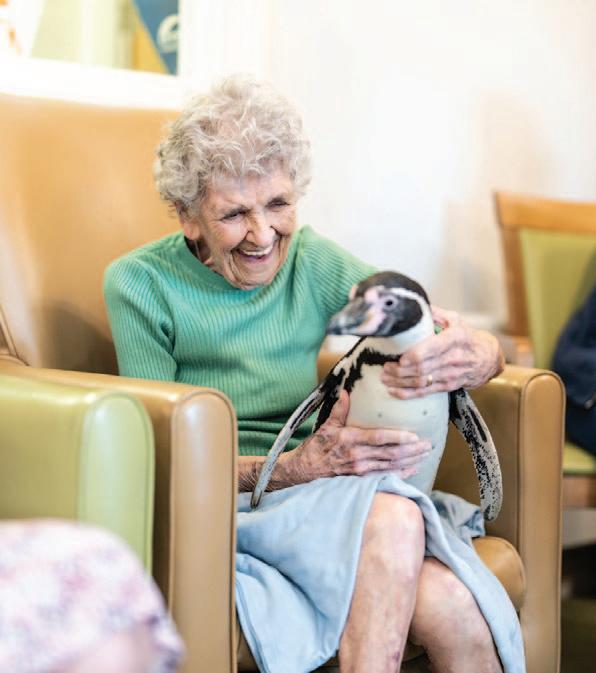
A person and person standing outside AI-generated content may be incorrect.
A resident couple living at an Altrincham home went on a trip down memory lane, courtesy of a music event.
John and Sue Rowe have recently moved into MHA Handsworth and went to the Bridgewater Hall, a venue very close to their hearts, as they would often visit to watch the Halle orchestra perform.
The couple along with activity coordinator Charlotte Fowke went to a music event at the iconic venue.
The event, titled Access All Ages, was set up by Intergenerational Music Making and Intergenerational England to celebrate the power of music, human connection, and intergenerational collaboration.
MHA Handsworth provides residential care for 43 residents.
Speaking after the event Charlotte said: ”The event hosts got in touch with me to see if it's something we would be interested in at MHA Handsworth.
“John and Sue have both mentioned the Bridgewater Hall to me before as a venue they used to visit, so I thought they would be perfect for it.
“We then put a request in for all of us to visit, which was approved by the hosts and away we went.
“It was a great event, very interactive and engaging and the pair had a lovely time.
“We enjoyed a morning of music, singing along to some well-known songs and being a part of recording a video for a song written by the group
“It was very intergenerational, we were told they had visitors ranging from 0 to 90 and that they aimed to connect five generations of people throughout music.
"Visiting the venue, you could see it was very nostalgic for the two, they both really enjoyed themselves and would frequently tell me how happy they were to be there.”
A Stafford home has raised £350 following a fundraising event including a charity car wash.
MHA Weston and Queensway held a fundraising event at the home where they set up a car wash station and managed to wash more than 20 cars.
Alongside the car wash they had a raffle, which combined with the car wash helped to raise £350.
The funds raised will go towards the homes amenities fund, which will be used to bring in live entertainment and arrange activities.
MHA Weston and Queensway provides high-quality dementia nursing care for 70 residents.
Deborah Phillips, activity coordinator said: “ The car wash worked really well and we had a good amount of support.
“The weather was nice, we had people driving past asking us what
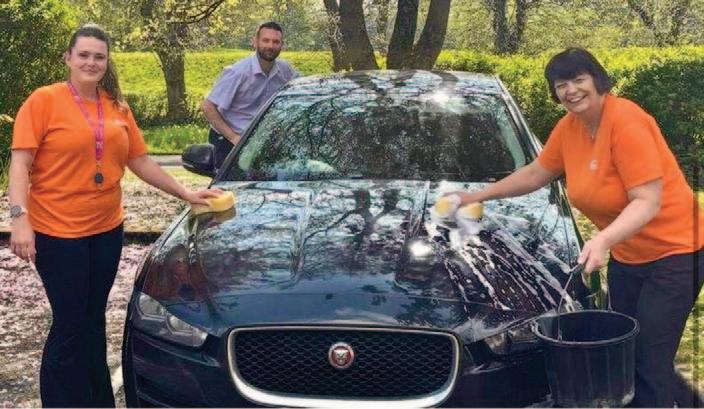
we were up to and some of them then decided to get their car washed.
“Family members of residents came down and got their cars washed, and it was a real community effort.
“We were asking for a suggested donation of £5 per car, but some people gave more which was really generous.
“The residents were keen to see what was happening and would come out throughout various times of the day.
“We had a lot of support for the raffle as well and are very happy with the amount raised.
“We are hoping to arrange some entertainment or some activities with the amount raised.
“On behalf of the home, I want to thank everyone for their support in making the event a success.”
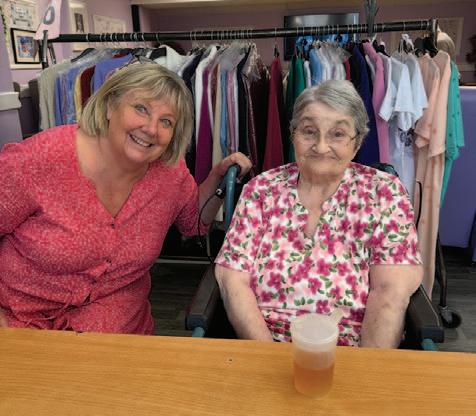
Residents at Diagrama Foundation’s Edensor Care Centre in Clacton-on-Sea were treated to a special shopping experience this week, thanks to a visit from Tina’s Clothing, a mobile pop-up clothing shop that has been supporting care home residents across Essex, Hertfordshire, London, Cambridgeshire, Bedfordshire and Suffolk for over 25 years.
Set up in the heart of the home, Tina’s pop-up shop transformed one of Edensor’s communal spaces into a welcoming boutique, filled with stylish, comfortable clothing tailored to the needs of older adults. From nightwear to underwear, and day-to-day outfits with elasticated waists and minimal fastenings, the carefully curated selection allowed residents to browse and choose their own items in a relaxed and dignified setting.
The initiative is perfectly aligned with Edensor’s commitment to the Montessori approach to dementia care, which places strong emphasis on promoting independence, choice, and meaningful activity for each resident.
Enabling residents to make their own clothing choices not only boosts confidence but also helps to maintain a sense of identity.
Ewa Ruskowiak, Care Coordinator, Edensor Care Centre said, “Our residents really look forward to Tina’s visits. These pop-up shops do more than just provide clothing they empower our residents to make choices, express their personalities, and enjoy a sense of independence that is so vital to their wellbeing. It’s a brilliant example of how small, thoughtful initiatives can have a big impact.”
Tina Pedersen, founder of Tina’s Clothing, shared her passion for the work, “Being able to bring stylish, easy-to-wear clothes directly to people who might not otherwise have the chance to go out shopping is so important. I choose every piece with care, elasticated waists, soft fabrics, no fiddly fastenings— because I want everyone to feel comfortable and confident. It’s not just about clothes—it’s about dignity, joy, and inclusion.”
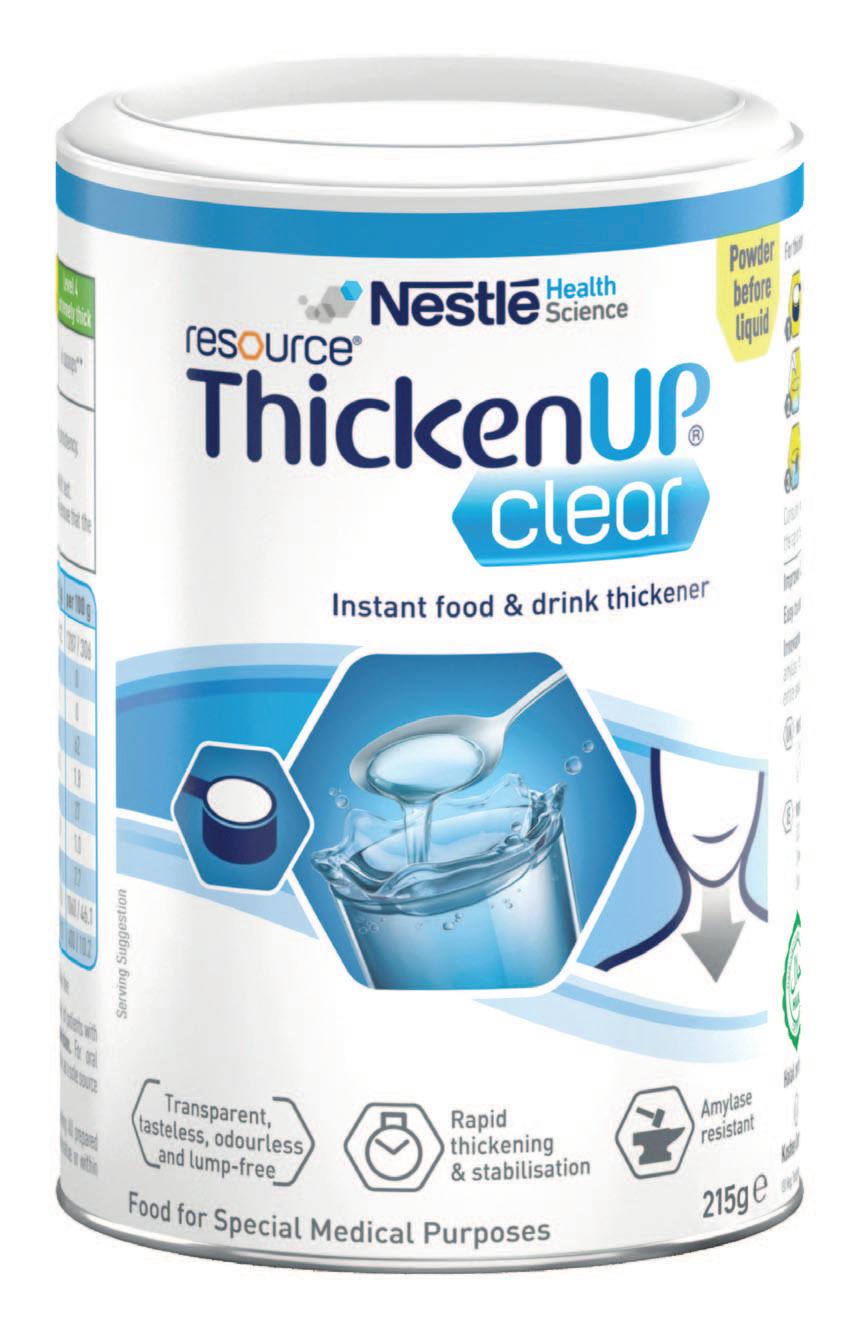


A family business has launched the UK’s first frozen nutritional supplement, ideal for care home residents who may be struggling to eat or drink.
icesupp are 100% plant-based frozen supplements, enriched with key vitamins, minerals, protein and calories, delivered in ice lolly formats to provide an easy-to-consume source of nutrition.

Amy Smith and her partner Robert Upton got the idea when they realised the lack of options for Amy’s father Ray as he struggled to build and maintain his weight during bowel cancer treatment.
Managing a conventional diet was very difficult, and the nutritional supplements available on prescription were unpalatable - too thick and sickly. However, Ray did discover that ice lollies were soothing and easier to consume.
“We were frustrated that the ice lollies Dad was having were just filled with sugar and water, and didn’t provide the nutrition and quality calories that he needed to keep his weight and strength up,” says Amy.
“The idea for icesupp was born – and it became our mission to create something that would combine the nutritional elements of a supplement shake with the more palatable form of a soothing iced refreshment.”
BAPEN’s Malnutrition and Nutritional Care Survey (2023) highlighted that nearly well over half (48%) of adults screened across UK health and care settings were at risk of disease-related malnutrition. This was particularly high amongst individuals with cancer, gastrointestinal conditions respiratory conditions, frailty and neurological diseases – so this is a very real issue for carers and families across the UK.
Following two funding rounds, Amy and Rob worked Reading University’s Food Science Department and a team of specialist advisors including top dietitians, an oncologist and a GP to create their unique, first-tomarket products, which come in two flavours – Mango & Passionfruit and Mixed Berries. 100% plant-based, each 86ml supplement pouch contains 5g of protein, 2.5g of fibre and 150 calories -
helping those who are struggling to eat to build strength and energy. A box of 12 products costs £23.75 from icesupp or Amazon. The products are shipped in ambient liquid form to be conveniently frozen then deliver the soothing sorbet-like iced consistency.
Nick Dutton, of Primrose Bank Care Home, says: "Helping those we care for to maintain and increase their nutritional intake is no easy task, made even more challenging when coupled with other dietary requirements, palliative care needs and the general challenges the care sector faces.
“When we came across icesuspp we were interested straight away. Having seen our own relatives struggling to eat well during palliative care and facing malnutrition and knowing the difficulties faced with different nutritional supplements and changing taste, we knew that a different way to deliver nutrients and flavour was a great idea.
“icesupps taste really good and we have had brilliant feedback from everyone in the home, residents, families and staff alike. We love that they are easy to store and also easy to eat without needing lots of preparation to make them enjoyable like some ONS.
“It’s great to have another tool for our team to use to improve our residents’ lives."


Amy concludes: “We have created an iced supplement that soothes and nourishes, helping to provide a moment of refreshing relief for those in need. Our goal is to help families like ours, who have experienced the devastating effects of dramatic weight loss and malnutrition, which can impact anyone, however those that are particularly at risk include those with an illness like our Dad such as cancer, and those aged over the age of 65, especially if they are in a care home or have been recently admitted to hospital.”
Dietitian Corrine Toyn says: “Malnutrition can be caused by range of factors. In the case of Ray, it was the side effects of the illness and his treatment, which is very common – but we know it is a real issue in care homes, along with dehydration. Oral nutrition supplements have been part of the solution to malnutrition for a while, as long as patients find them palatable and are compliant, but the majority of the ‘ready to drink’ supplements are highly concentrated, with a thick consistency that can be difficult to consume. Improving the flavour, mouth-feel and variety is vital to prevent patients’ taste fatigue, provide choice, and ultimately improve their quality of life. icesupp is such a brilliant idea, created with love and expertise, to respond to a real problem. It’s been incredible to see the reviews from customers, saying that icesupp tastes great and is easy to consume.”
For further information, email info@icesupp.com or visit the website at www.icesupp.com
Heathcare professionals can access the sample service at www.icesupp.com/pages/the-healthcare-professionals-hub

Taylor & Taylor, a group of family-owned residential care homes approached food procurement experts, allmanhall to achieve scalable cost savings and efficiencies to support their growth plans. They needed to ensure no detrimental impact to the excellent quality of their food offering and their residents’ dining pleasure.
Their desire was to achieve a 5% food cost saving and to ensure ongoing effective management of catering budgets and invoicing. Operationally, access to reports and insights were key, as was ease of ordering and management of stock and deliveries.
allmanhall undertook a like-for-like benchmark and identified achievable food cost savings of 11.4% - more than double the initial objective!
allmanhall delivered tech demos of the catering control platform for Taylor and Taylor, ensuring it met their needs and provided training for the team. As well as providing useful operational functionality like stock taking and standing orders, the catering control platform proposed would also give access to management reports and facilitate central billing and conversion of all supplier invoices in to 1 per month. Samples and on-site supplier meetings were also arranged on behalf of the homes, to confirm that the quality was to the required standard.
allmanhall have also supported Taylor and Taylor with the launch of a community engagement event for one of their newest homes.
A few months into the contract, the actual results were found to be an 18% food cost saving! You can watch this short video on You Tube to find out more… www.youtube.com/watch?v=e2QrrmaiG1Y
“From day 1, the care and attention provided by allmanhall has been exceptional. The team truly listen to us, to what our challenges are and are always willing to help in any way they can. Their approach is thorough and responsive, meaning we feel fully supported. Everyone we’ve met from allmanhall has been hands-on, down to earth, genuine and considerate.
We’ve been impressed by the savings we’ve already seen, the flexibility regarding suppliers and by the excellent quality. The consolidation of invoices into 1 per month is a huge win.
We have relationships and contact with people across the allmanhall team – all there to help and to advise or resolve depending on what we need. With challenges around labour shortages and food inflation, this is hugely valued. It frees up the team and gives us peace of mind.
We would wholeheartedly recommend allmanhall’s services to others in the care sector and look forward to continuing to grow our offering and provide outstanding food for our residents, with allmanhall as our trusted partners.”
allmanhall is an owner-managed, award-winning and trusted food procurement partner for care organisations across the UK. We help clients with a range of needs, including cost savings, administrative efficiencies, supplier management, dietetics and nutrition support, and sustainability goals. Get in touch to find out more:
Email: hello@allmanhall.co.uk
Telephone: 01225 745520
Website: allmanhall.co.uk
LinkedIn: @allmanhall


By Derek Aaronson, Founder & CEO of
Hart Home Group (www.harthomegroup.co.uk)

Infection control and prevention are critical components in safeguarding the health and well-being of individuals in medical, commercial, and domestic environments.
For the independent nursing and residential care home sector, maintaining stringent infection control measures is not just a matter of compliance, but a fundamental responsibility to ensure the safety of vulnerable residents. As the world continues to grapple with new and evolving health threats, the importance of infection prevention cannot be overstated.
THE
For nursing and residential care homes, infection control is especially crucial. Residents often have weakened immune systems due to age or pre-existing conditions, making them more susceptible to infections. In such settings, even a minor lapse in hygiene protocols can lead to the rapid spread of pathogens, which can have devastating consequences. Healthcare-associated infections (HAIs) continue to be a significant risk in care homes, leading to longer hospital stays, higher medical costs, and, in severe cases, death.
Therefore, infection control in care homes requires a combination of effective policies, thorough cleaning routines, and specialised equipment. Staff must be well-trained in infection prevention, and robust systems need to be in place to manage outbreaks when they occur. However, achieving a high standard of hygiene in care homes comes with its own set of challenges.
INFECTION CONTROL IN CARE HOMES
THE
Maintaining high levels of hygiene in care homes can be difficult for several reasons. The close proximity of residents, especially in shared rooms, communal spaces, and bathrooms, increases the risk of cross-contamination. Frequent touching of high-contact surfaces such as handrails, doorknobs, and shared equipment can facilitate the spread of germs. In addition, staff turnover and the demanding nature of care work mean that infection control protocols may not always be followed consistently.
The traditional reliance on manual cleaning methods can also be timeconsuming and may not always be effective in eradicating harmful bacteria and viruses. With the rise of antimicrobial-resistant organisms (AROs), which are more difficult to treat, care homes must adopt more advanced solutions to combat the spread of infection.
SOLUTIONS TO ENHANCE INFECTION PREVENTION IN CARE HOMES
The solution to these challenges lies in a combination of better practices, staff training, and, crucially, the use of advanced infection control technologies and equipment. Specialised hospital-grade fixtures, such as antimicrobial door handles, bed rails, and mobility aids, are invaluable in preventing the spread of infection in care homes. These fixtures are designed with non-porous materials that are easy to clean and resistant to microbial growth, ensuring that harmful pathogens have fewer places to thrive.
In addition, the use of touchless technologies is gaining traction in care homes as a way to reduce human contact with frequently touched surfaces. For example, touchless faucets, soap dispensers, and hand sanitisers can significantly minimise the risk of cross-contamination. These innovations not only make it easier to maintain hygiene but also improve the overall user experience for both staff and residents, especially for those with limited mobility.
Innovative cleaning solutions, such as UV-C sterilisation devices, are also helping care homes maintain higher standards of hygiene. UV-C light has been shown to be effective at killing bacteria, viruses, and fungi on surfaces and in the air , providing an added layer of protection that manual cleaning alone cannot guarantee.
The role of design and product innovation in infection control is crucial. Products designed with infection prevention in mind—such as hospitalgrade furniture, non-porous flooring, and antimicrobial textiles—play a crucial role in reducing the potential for cross-contamination in care homes. By choosing products made from materials that are resistant to bacterial growth and easier to sanitise, care homes can significantly reduce the risk of infections spreading.
Mobility aids, including walkers, wheelchairs, and lift chairs, are another area where innovation is making a difference. Many of these products now come with antimicrobial coatings that help reduce the risk of pathogens accumulating on surfaces frequently touched by both residents and staff.
These small changes in the design of everyday equipment can contribute to a cleaner, safer environment for both residents and caregivers. Moreover, the growing use of digital solutions, such as automated temperature monitoring, air quality control systems, and remote monitoring devices, is transforming infection control in care homes. These technologies allow staff to track and manage infection risks more efficiently, making it easier to identify potential outbreaks before they escalate. EMERGING TRENDS: TOUCHLESS TECHNOLOGY AND SUSTAINABLE MATERIALS
As the infection control industry evolves, there are two key trends that are gaining momentum: the integration of touchless technology and the use of sustainable materials. The increasing adoption of touchless systems, such as motion-activated doors and automated sanitation stations, is helping to prevent the transmission of pathogens, especially in hightraffic areas. These technologies not only improve infection control but also enhance the overall user experience by reducing the need for physical interaction, which is particularly beneficial in care settings where residents may have limited mobility or dexterity.
Sustainability is another important consideration in infection prevention. The use of environmentally friendly materials—such as biodegradable cleaning products, sustainable textiles, and recyclable medical supplies— ensures that infection control measures are both effective and responsible. The growing demand for eco-friendly solutions in care homes is part of a larger global movement towards sustainability, where reducing environmental impact goes hand-in-hand with enhancing hygiene standards. Infection control and prevention are vital to ensuring the health and safety of residents in care homes. While the challenges of maintaining hygiene in these environments are significant, the solutions are becoming increasingly effective with advancements in technology and product innovation. From hospital-grade fixtures and antimicrobial mobility aids to touchless technology and sustainable materials, these innovations are helping to reduce cross-contamination and improve overall safety. As the sector continues to evolve, adopting these innovations will be key to enhancing infection prevention protocols and safeguarding the health of vulnerable individuals across nursing and residential care homes. Through a combination of best practices, innovation, and thoughtful design, care homes can create a safer, cleaner, and more resilient environment for residents and staff alike.
How can buyers of cleaning chemicals find sustainable solutions that are also effective and safe to use. The Cleaning & Hygiene Suppliers Association (CHSA) has published a White Paper designed to help: The Evolution and Regulation of Cleaning Chemicals.
Buyers and end users of cleaning chemicals want environmentally sustainable, safe and effective cleaning chemicals. Environmental mes-
sages can be seductive, particularly when coupled with highly competitive prices. In the regulated arena of cleaning chemicals, it is difficult to produce products that are effective, have a minimal impact on the environment and are sustainable. It takes years of investment and testing to get the products right and clear the regulatory hurdles. It’s not surprising, therefore, that some organisations are looking for short cuts.

They argue technology is moving so fast there is no time for independent verification or regulation. Essentially, they are suggesting the need for some kind of environmentally sustainable solutions outweighs the need to know if the solution is indeed environmentally sustainable, if it works or how to use it to be certain it is safe.
Regulations, however, matter. They guarantee safety. They underpin transparency and ensure consistency. They provide a framework for comparison, so a buyer really knows if they are getting the product or solution they need. They also provide accountability, giving buyers a route to recourse if needed. In short, they underwrite an ethical approach.
The CHSA’s White Paper was written by Peter Thistlethwaite, Technical Manager – Cosmetics and Biocides at MSL Solution Providers. Peter is a Microbiologist and MSL Solution Providers offers an integrated regulatory and laboratory testing service. Its in-house accredited microbiology and virology laboratories provide a comprehensive range of standard tests, including efficacy testing against bacteria, fungi,
spores, viruses, mycobacteria, legionella, and algae.

The White Paper explains the evolution of cleaning chemicals. It explains how testing systems with recognised methodologies were introduced to “to prove chemicals were effective but hand-in-hand they gave a way to remove fraudulent products, offering better protections”. Peter explains in the White Paper, “Regulations are intended to ensure a cleaning product is safe for the user and the environment when used correctly. The aim of enforcing regulatory requirements is to ensure products on the market can be trusted and that the companies selling them maintain the highest standards of integrity.”
Peter continues: “Product innovation means testing and regulatory requirements in the biocide market are becoming more complex, and the costs to enter markets are rising. This is expected to lead to a rise in fraudulent products, bypassing or ignoring regulations. Many are making claims about safety and efficacy without the proper technical support from correct testing. They are also using eco-friendly language to appeal to environmentally conscious consumers. Buyers need to beware.” @CHSACleaning www.CHSA.co.uk
Angloplas are a UK manufacturer who specialise in producing dispensers for the health and hygiene industry. Although these are designed to keep the workplace tidy and uncluttered they are, more importantly, built knowing the control of healthcareassociated infections (HCAIs) are a priority for healthcare providers, and who are employing a combination of infection prevention and control strategies, including hand hygiene, cleaning, training and the adoption of new technologies, to tackle the problem.

As a result, a wide range of infection control products and technologies are emerging on the market, including antimicrobial technology. Angloplas’ range of dispensers are produced in the world’s
first proven Antimicrobial PVC with silver ion technology and which is exclusive to Angloplas. This helps reduce the risk of cross infection by stopping the growth of bacteria and mould and works continuously for the lifetime of the product, reducing levels of bacteria such as MRSA, E Coli, Legionella, Salmonella and mould by up to 99.99%. For non-clinical environments Angloplas has recently launched its new Budget Range of products which are made to the same exacting standards as the antimicrobial protected ones but with lower price tags.
You can order Angloplas products directly from its website at www.angloplas.co.uk

Ensuring strict hygiene standards in care homes is a complex yet essential task, particularly when it comes to laundry processes. With infection control a top priority, operators must comply with stringent regulations, including CQC guidelines and WRAS Category 5 requirements. The latter classifies care environments as high risk due to the potential contamination of water supplies, necessitating specialist equipment and backflow prevention measures to safeguard residents and staff. Failure to meet these standards can not only compromise infection control but also lead to regulatory penalties and reputational damage.
Laundry plays a critical role in infection prevention, yet many care homes still rely on domestic machines that are not fit for purpose. Unlike commercial alternatives, these machines do not achieve the necessary wash temperatures, cycle durations, or thermal disinfection standards required to remove harmful pathogens effectively. This not only increases infection risks but also puts facilities at risk of non-compliance. Furthermore, improper segregation of laundry—such as mixing soiled items with general loads—can accelerate the spread of infections, a concern that has only intensified in recent

years. Best practice guidance advises that care homes implement a clear separation of clean and contaminated laundry, supported by colour-coded processes to avoid cross-contamination.
Forbes Professional, an expert in commercial laundry solutions, advises care home operators to invest in WRAS-approved, commercial-grade washing machines and sluice systems designed specifically for healthcare environments. Miele’s hygiene-specific functionality, for example, ensures that thermal disinfection is achieved within every cycle, offering protection against bacteria and viruses. Additionally, hot water feeds, appropriate drainage, and compliance with Category 5 backflow prevention are crucial in preventing contamination. With evolving compliance requirements and the ever-present risk of infection outbreaks, care homes need to ensure that their laundry operations are fully up to standard. Forbes provides expert guidance and tailored site surveys to help care operators navigate these challenges, ensuring their facilities remain both compliant and safe for residents and staff alike.
We have recently set up a specialist facility in St. Neots, near Cambridge, in which we are going ahead with this specialist refurbishment programme. This programme involves purchasing existing machines, and replacing the parts on them, so that they are as good as new, whilst retaining the look and feel that existed before, but with a massively increased lifespan, and a warranty on the machines that’s as good as a warranty on a new machine to go with the refurbishment too.
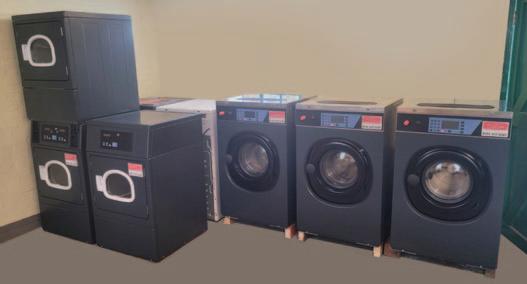
Our refurbishment programme in our specialist facility includes stripping down the machines, and giving them a check-over, to see which parts, if any, can be carried over the refurbishment. Lavamac will only carry over the highest-quality parts from the machine from pre to post
info@laundrytec.com www.lavamac.eu
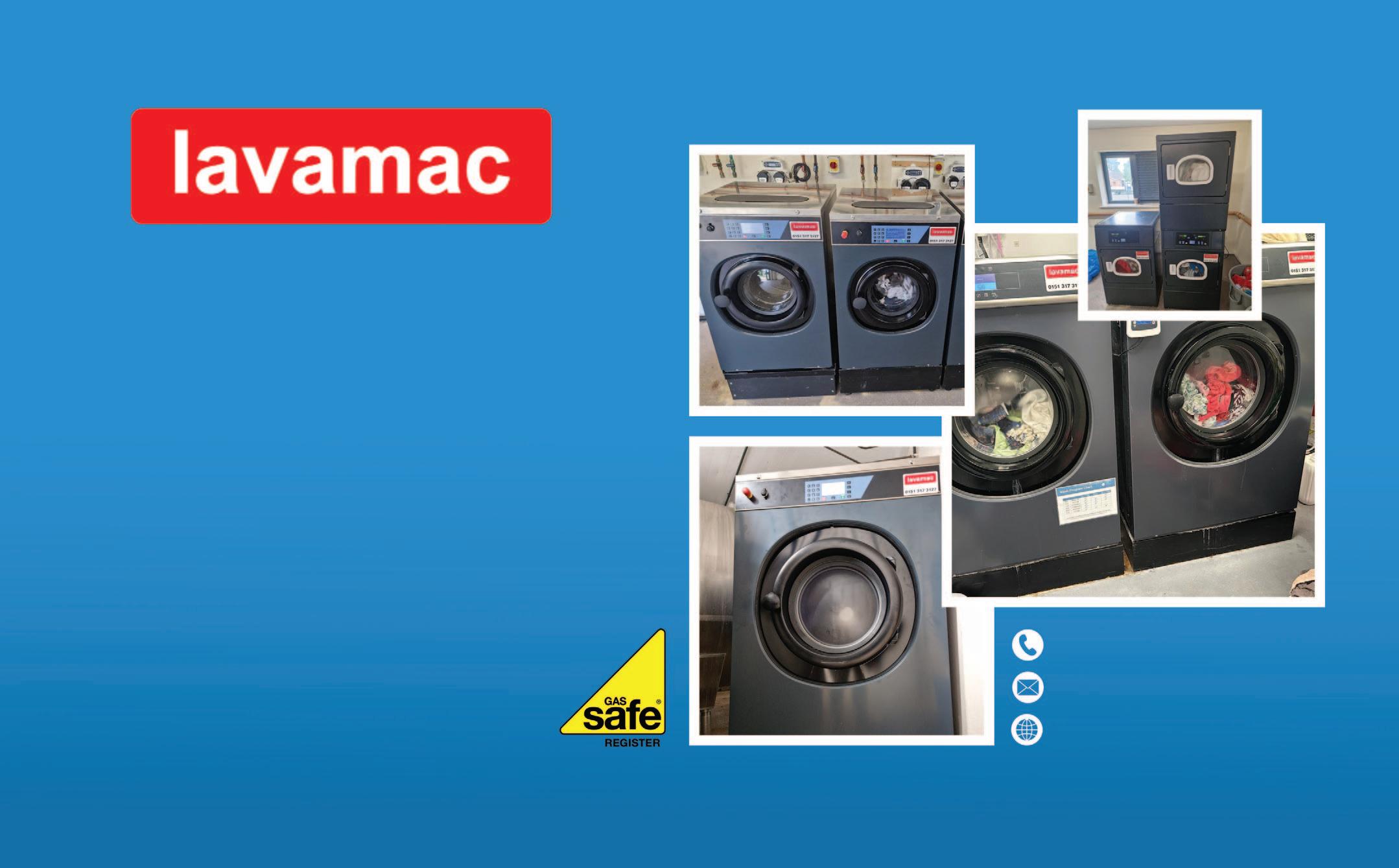

Pinpoint ltd, the UK’s leading provider of staff alarm systems to high-risk workplaces, has seen its P2 System installed in the UK’s first safe drug consumption facility, The Thistle.
The facility opened its doors on 13 January 2025 to provide a clean, safe space for the public to use drugs safely under clinical supervision. It also provides drug users with access to a wide range of treatment and support.
Pinpoint’s P2 Staff Attack System was chosen as the preferred staff safety alarm system to ensure the swift delivery of assistance in high-risk medical situations. Access to the Pinpoint P2 System ensures help can be summoned quickly providing staff with the peace of mind that help is forthcoming when they need it most.
Staff members at the Thistle will be given a personal alarm, or P2 PIT, at the start of each shift which can be activated if required with the simple press of a button.
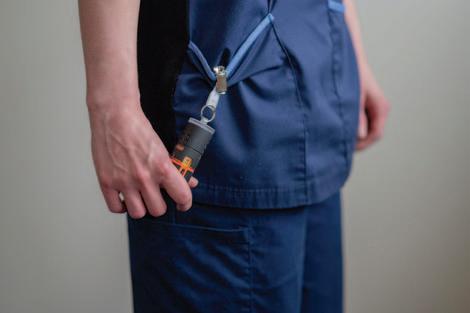
Once activated, the P2 PIT communicates with receivers located throughout the building, which in turn notifies display devices of the exact location and severity of the alarm call. This provides vital information to enable colleagues to respond appropriately.
Daniel Waring, CEO of Pinpoint Limited, said:
“Pinpoint is proud to be part of this UK first Safer Drug Consumption Facility. Having worked with The Hunter Street Health Centre, where The Thistle is based, since 2003, we are well aware of the challenges staff may face in their day-to-day duties.
“The P2 System, chosen for its precision, reliability and durability, will ensure staff can access a response when they need it most, allowing them to carry out their duties without fear and provide the highest quality of care.”
Visit http://pinpoint.ltd.uk for further information or see the advert on page 19.
Skopos Studio is a new design library idea from Skopos, enabling interior designers for Care to pick from a large range of designs to suit their project.
Categorised under different design types, such as ‘Botanical and floral, textures, stripes and checks’ this format provides choice for customers to select their end use and appropriate flame retardant base-cloth, and then select the designs and colourways which can bring their schemes to life.
The Studio collection provides a easy ‘go-to’ option containing design inspiration to create a Caring‘Home from Home’ experience. Skopos have a long history in print, with over 50 years of design experience which shines through in the Studio binder, with samples of all designs available via the

website.
Designs in Skopos Studio have been developed to work hand in hand with our beautiful accent collections and upholstery fabrics for a cross-section of projects. Choose from our fabric-only solution or a full-service option, including measure, product make-up (curtains, cushions, blinds and bed-throws) and installation. If you require something unique, our Bespoke service can offer custom colour options for a minimum meterage.
View the complete collection: www.skoposfabrics.com/studio-prints See the advert on page 4 for more information.
Chiltern Water & Environment was established in 1991 by Robert Hunt after gaining 25 years' experience as an operational and analytical scientist in the water supply industry. The company gained engineering and further management knowledge when David Hunt joined in 2012. Since then, other water industry professionals have added to the breadth of knowledge and experience within the company.
We have always provided high-quality consultancy, testing and remedial services in a professional but personable manner. Our steady growth has reflected our clients' trust in our services. Our current clients include large housing associations, pharmaceutical companies and facilities management companies, as well as individual landlords and small businesses. We ensure all our customers receive the same level of care and attention to detail.


Duty Holders of all commercial and public building premises are legally required to assess the risk from legionella to anyone using the water systems and put in place legionella control measures if required. The HSE has produced ACoP L8 and HSG274 as guidance for Duty Holders obligations.
We have clients throughout the South East, London and the Midlands, and carry out water tests nationally and internationally. We currently provide regular water sampling and testing for over 500 sites.
Tel: 01844 347678
Email: info@chilternwater.co.uk www.chilternwater.co.uk
See the advert on page 21 for more information.
Consort Claudgen’s innovation in the electric heating industry takes another leap forward by introducing Wi-Fi-enabled heaters to their low surface temperature (LST) range. These cutting-edge heaters offer unparalleled convenience and efficiency.
The heaters connect directly to Wi-Fi, enabling users to control heating through the digital control panel on the heater or via the Consort Connect app. With a comprehensive 7-day timer, which allows 24 individual heating periods per day, and features such as a lock function, open window detection, and custom automation, users can tailor their heating needs to their preferences.
Adding to the ease of use, users can view the energy consumption statistics of
all connected heaters, providing insights into usage patterns and potential savings. The LST heaters with Wi-Fi and occupancy sensors have a self-learning control ability. They utilise in-built occupancy sensors to detect and learn a user’s weekly presence in a room, creating an intuitive heating schedule. When the space is unoccupied, the heater conserves energy by switching to a setback temperature or frost protection mode.
BIM (Building Information Modelling) objects for the heaters are available for download from Consort’s website. 01646 692172 | sales@consortepl.com | www.consortepl.com
See the advert on page 5 for more information..
CareZips® Classic are patented, easy dressing unisex adaptive pants designed for older and disabled people suffering with problems associated with continence, mobility, mental function and cognition. Suitable for persons living in care institutions, receiving care at home or living independently at home, CareZips® Classic enable people to dress themselves or with assistance from carers.
CareZips® Classic feature patented 3-zipper system, which opens the front of the pants from the waist to the knees for quicker access during toileting, continence pads changes and personal hygiene. The forward positioning of the two side zippers lessens pressure on sensitive hip areas, helping to eliminate discomfort. The third zipper facilitates simple full frontal opening for faster more dignified diaper changes, catheter adjustments, personal cleansing and hygiene routines.
CareZips® Classic have many benefits for the older and disabled users and their carers:
• People dressing themselves enjoy the practical functionality and versatility of the
CareZips® Classic, all day comfort and easy garment care.
• People dependent on assisted dressing appreciate quick easy dressing process with less stress, embarrassment and greater dignity offered by CareZips® Classic.
• CareZips® Classic offer practical gains to the carers, helping them to provide better care, whilst reducing physical efforts and saving valuable time.
CareZips® Classic are unisex, available in 6 sizes and 3 practical colours (i.e. black, charcoal and navy). Tapered fit at the ankles gives a tidy appearance. Made from breathable moisture-wicking 4-way stretchy crease-free and easy-care durable fabric, CareZips® Classic are comfortable, practical and conveniently functional.
For more information, contact Win Health Medical Ltd - 01835 864866www.win-health.com
See the advert on page 3 for further information on Win Health’s product range.

At Little Islands, we understand the power of nostalgia in bringing comfort and joy to care home residents. Familiar surroundings, evocative sights, and meaningful sensory experiences can unlock treasured memories, sparking conversation and connection. For years, we have been crafting bespoke themed rooms and areas that do exactly that—transporting residents back to fond moments in their lives. However, bespoke designs often come at a premium, making them inaccessible for some care homes.
That’s why we have developed a range of standard themed packages, making it easier than ever for care homes to create high-quality, engaging spaces that foster reminiscence. Many homes have the capability to build themed areas themselves but sourcing appropriate and authentic content can be a challenge. Too often, well-intentioned efforts result in spaces that feel more like children’s play areas rather than immersive environments tailored for adults.

Our themed packages take the guesswork out of the process. Each package includes everything needed to transform a space, allowing your maintenance and care staff to set it up with ease. Most homes already have suitable furniture and decorative items to complement the theme, but we also offer optional extras to enhance and expand each setting as required.
Whether it’s a traditional British high street, a 1950s tearoom, or a classic seaside retreat, Little Islands’ thoughtfully designed themes ensure that your residents can enjoy a truly meaningful and immersive
Since our founding in 2010, Activities to Share has been dedicated to enhancing the lives of those in care by providing thoughtfully designed activity products. Our mission is to support activity coordinators in delivering uplifting, engaging experiences that foster connection, joy, and well-being.
We achieve this by listening closely to your feedback and evolving with your needs. Whether over the phone, via email, WhatsApp, or Live Chat on our website, our team is always ready to offer advice and help you find just the right products to bring your ideas to life.
While we embrace the convenience of technology to expand our resources and share knowledge, we remain firm believers in the irreplaceable power of sensory
experience. By stimulating multiple senses in a focused direction, these environments help trigger happy memories, encourage social interaction, and improve overall well-being.
With our themed packages, creating an engaging reminiscence space has never been easier or more affordable. Let’s bring back those cherished moments—together.
Our S.M.A.R.T. Room packages include:
Unique
• Traditional flame effect stove (For H&S the heat element is
• Double sided railway wall clock
• Themed Railway game and jigsaw puzzle
• Interior design Specification sheet
Contact us today on 01282 869802 or via hello@littleislands.org to discuss how we can help transform your care home.
See the advert on page 5 for more information.


engagement. That’s why we continue to make our Reminiscence Kits and Sensory Bags with real, tactile items that stimulate the senses. Some experiences—like popping bubbles for the splash, breathing in a familiar scent, or piecing together a puzzle with others—simply can’t be replicated on a screen. These sensory moments are invaluable in encouraging storytelling, sparking memories, and fostering conversation.
Our values remain rooted in this commitment to meaningful connection. We’re here to partner with you—the professionals on the front lines of care—to create a sense of structure, well-being, and fun for those who need it most.
Are you longing for your activity diary to be full? Look no further www.activitiestoshare.co.uk are here for you! See the advert on page 21 or: customers@activitiestoshare.co.uk
0117 966 6761 07900 6751 50
MOWOOT II – proven solution to chronic constipation without medication
Developed by a team of doctors and other healthcare professionals, MOWOOT II performs gentle abdominal massage to speed up intestinal passage in people experiencing chronic constipation.
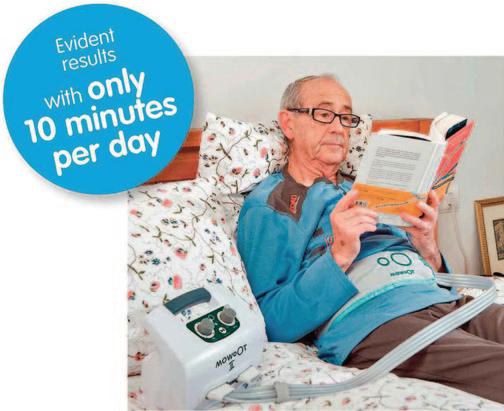
Clinically proven, safe and effective, relaxing and side-effects free, MOWOOT II Abdominal Massage Therapy System combats constipation and provides soothing relief to affected people. Easy to use and comfortable, the MOWOOT II treats and manages constipation in people with spinal cord injuries, multiple sclerosis sufferers, Parkinson’s Disease patients and people with constipation related to prescription medication. MOWOOT II also helps to relieve idiopathic constipation experienced by menopausal and post-
menopausal women and older and elderly people. In clinical studies MOWOOT II increased evacuation frequency, softened stools, improved regularity, reduced gasses, relieved bloating and eased off abdominal discomfort. 10 to 20 minutes daily of relaxing abdominal massage with MOWOOT II rapidly reduces symptoms of constipation.
Evident results are experienced only a few days after the first treatment. Regular abdominal massage with MOOWOOT II ensures lasting health benefits and better quality of life.
MOWOOT II – effective solution to chronic constipation for better quality of life!
Supplied by Win Health Medical Ltd - 01835 864866 - www.win-health.com See page 3 of this issue for other Win Health products. MOWOOT II for Constipation Free Life
REM have been manufacturing furniture for the Hair & Beauty Sector for over 100 years and are now considered to be one of the largest manufacturers in both the UK & Europe. Our exclusive designs and meticulous British workmanship offer customers a wide range of furniture for every conceivable Salon environment. Understanding the growing requirement for Care & Residential Home Salons the REM Design Team have produced the Pendle Care range for the small, compact Care Home Salon. This new range includes ergonomically designed, height adjustable styling chairs and

the Pendle Easy Wash Unit with two ceramic basins allowing frontwash with wheelchair access and a tilting backwash basin for the more able clientele. Should the need arise, our experienced Design Team can help you create a stimulating Salon environment for your clients. The REM Salon Interior Design Package which includes 2D and 3D AutoCad plans and visuals can be ordered for only £295 +VAT and is fully refundable on an order placement of £3000 or more. Contact us on 01282 619977 or email sales@rem.co.uk See the advert on page 17 for details.
The Oxford Up is an active manual stand aid, supporting assisted standing, seated transfers, and patient rehabilitation. Suitable for clients who require some assistance when standing but are able to participate and contribute effort to the process, the Up can also be deployed as a useful rehabilitation aid.
With a safe working load rating of 200kg (31st), the Up quickly disassembles into three separate components, significantly easing storage requirements and onward transportation. Reassembly takes a matter of seconds, and its ready for use again.

A large multi-point push handle aids manoeuvrability for the caregiver, and the foot push pad pro-
vides a means of generating forward momentum when moving a patient. Optimum positioning of the swing-away seat pads and knee support help ensure comfort for the patient. Adjustable leg opening allows closer access around furniture, promoting improved patient positioning and general ease of use. Additionally, the enclosed footplate ensures no accidental foot or toe entrapment associated with mechanical components.
Where additional seated support is required, the Oxford Deluxe Standing sling (With Clips) is fully compatible with the Up and available in three standard sizes: small, medium, and large. For more information including how and where to purchase, please contact the Oxford customer services team on 0344 811 1158 send an email to info@joerns.co.uk or visit our website at www.joerns.co.uk
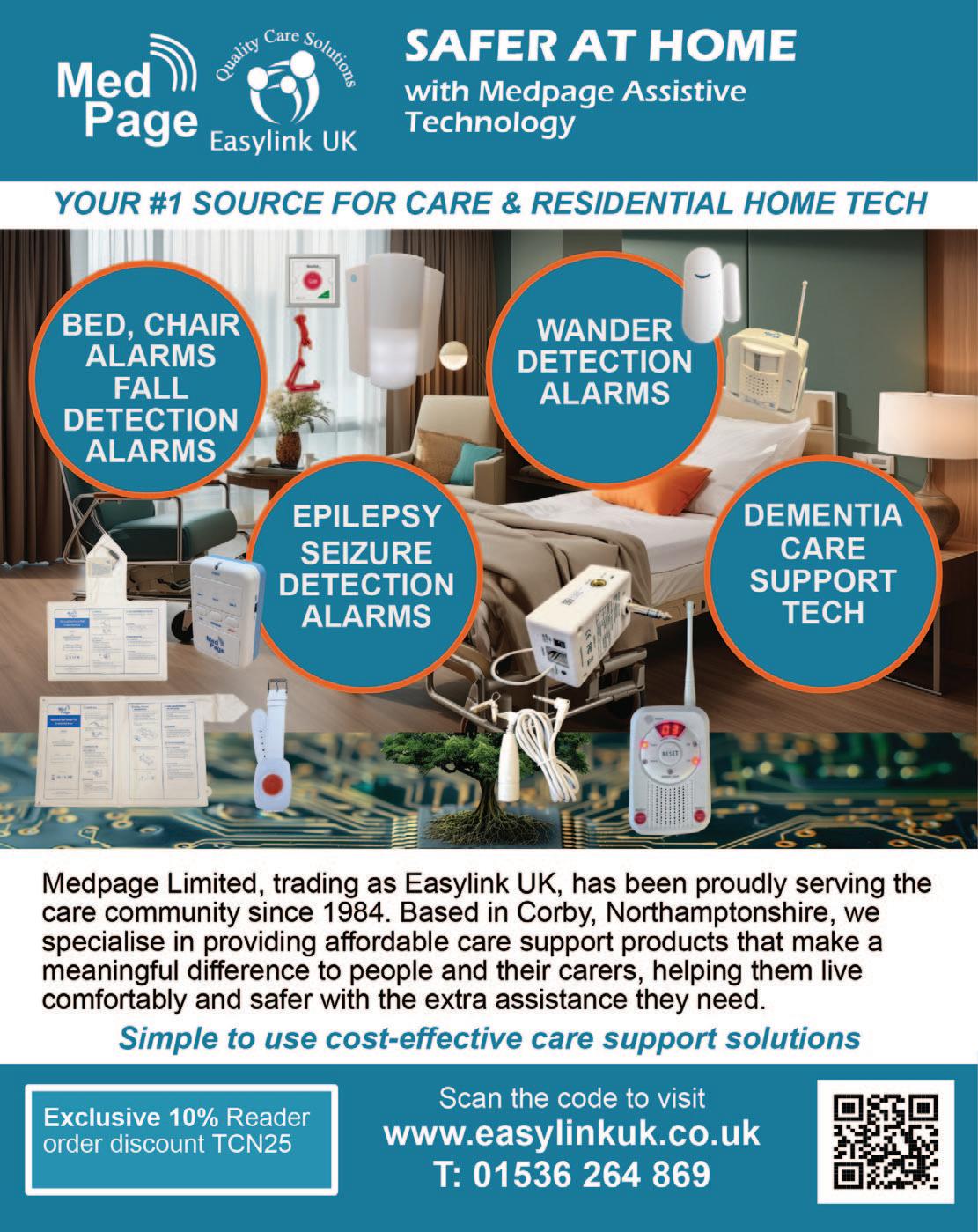
Falls are a significant concern for vulnerable individuals, especially seniors and patients at risk. Medpage, a leader in assistive technology, offers a range of cuttingedge products designed to enhance safety and provide peace of mind for caregivers and families. Here’s an indepth look at some of their standout solutions: MPRCG1 (2023) BED LEAVING DETECTION ALARM WITH CAREGIVER RADIO PAGER

The MPRCG1 is a comprehensive system tailored for fall prevention in domestic, commercial, and NHS care settings. This all-inclusive kit includes a bed pressure mat sensor, a BTX21-MP alarm sensor transmitter, and an MP-PAG31 radio pager. The system is designed to alert caregivers when a patient leaves their bed, reducing the risk of falls. Key features include: Wireless Alerts: Notifications are sent to the caregiver’s pager via tone or vibration.
Customizable Alarm Delays: Options for instant, 15-minute, or 30-minute delays.
Durable Design: Antimicrobial and disinfectantresistant materials ensure longevity.
• Ease of Use: Minimal installation required, making it user-friendly and portable.
HDKMB2 HOSPITAL DISCHARGE KIT FOR FALLS RISK PATIENTS
The HDKMB2 is a thoughtfully curated kit aimed at supporting patients transitioning from hospital to home care. It includes essential tools to mitigate fall risks and promote recovery. This kit is ideal for caregivers seeking a comprehensive solution to enhance patient safety during the critical post-discharge period.
CMEX-21 MULTI-PORT WIRELESS SENSOR INPUT EXPANDER FOR NURSE CALL CONNECTION
The CMEX-21 is Medpage’s latest innovation, designed to integrate seamlessly with existing
nurse call systems. This multiport expander allows for the connection of multiple wireless sensors, enhancing the monitoring capabilities of healthcare facilities. Its versatility makes it a valuable addition to any care environment, ensuring timely responses to patient needs.
RON-WC2 WATERPROOF DISABLED PULL CORD ALARM TRANSMITTER WITH WIRELESS ALARM RECEIVER
The RON-WC2 is a robust solution for disabled individuals requiring immediate assistance. This waterproof pull cord alarm is ideal for use in bathrooms and other high-risk areas. Paired with a wireless alarm receiver, it ensures that help is just a pull away. Features include:
• Waterproof Design: Suitable for wet environments.
• Wireless Connectivity: Reliable transmission to the alarm receiver.
Ease of Installation: Simple setup for quick deployment.
WHY CHOOSE MEDPAGE?
Medpage’s commitment to innovation and quality is evident in their product range. Each solution is designed with the user’s safety and convenience in mind, making them a trusted choice for caregivers and healthcare providers alike.
By investing in these advanced fall prevention tools, families and facilities can create safer environments for those at risk. Medpage continues to lead the way in providing practical, reliable solutions that make a real difference.
For more information, visit Medpage’s official website or contact their team to explore these products further. Safety starts with the right tools, and Medpage delivers just that.
www.easylinkuk.co.uk T: 01536 264 869

Courtney Thorne, a long-standing innovator in healthcare communication systems, is setting new standards in the care home sector with its advanced wireless nurse call technology—designed to improve resident safety, enhance staff efficiency, and support a more responsive care environment.
With over 30 years of experience serving the UK healthcare market, Courtney Thorne’s systems are now trusted by thousands of care homes nationwide. Unlike traditional hardwired solutions, their wireless nurse call systems offer non-invasive installation, scalability, and smart analytics—making them ideal for both new builds and retrofit projects.

“At the heart of our technology is the belief that better communication leads to better care,” says Graham Vickrage, Managing Director at Courtney Thorne. “Our wireless systems not only
reduce response times but also empower staff with the tools they need to deliver safe, person-centred care.”
Care providers are increasingly choosing wireless systems for their flexibility, reliability, and cost-effectiveness. With a full suite of accessories—including neck pendants, door monitors, fall detection, and bed sensors—Courtney Thorne systems can be tailored to meet the specific needs of each home and resident.
In an industry where compliance, safety, and staff pressures are always front of mind, Courtney Thorne provides more than just products—they offer ongoing support, training, and a commitment to innovation that helps care homes future-proof their operations.
For more information or to book a free demo, visit www.c-t.co.uk or contact
Blaucomm’s Nurse Call Messaging Service (NMS) is the market leading solution to remove the dependency on noisy nurse call panels and pagers, through its intelligent software, which delivers the alerts straight to the care staff who need them.
Care homes are rapidly introducing smartphones for digital care planning and eMar - now, the same devices can be used to receive the nurse call alerts they need for the residents under their care.
Furthermore, Blaucomm NMS is deeply linked into Person Centred Software MCM, so call bell data is linked straight to care plans. This unlocks a huge benefit to care homes to enhance the staff performance with how they accept and respond to residents, which ultimately pro-
motes better response times and visibility for management to audit their performance.
The best part is that Blaucomm NMS links into your existing nurse call system - we work with all major brands such as Aidcall, ARM, Courtney Thorne, C-TEC, ENS, Intercall, Medicare, SAS and TeleAlarm.
Care operators are constantly recognising Blaucomm NMS for its reliability and dependability to their care operations, which is why we’ve been chosen time and time again over other solutions.
Head of IT Trudi Harrow at WCS Care had this to say about Blaucomm NMS:
“We find Blaucomm is a genuinely fantastic company with a reliable product. "We would highly recommend this to anybody who wants to replace expensive pagers and silence those annoyingly loud nurse call screens!”
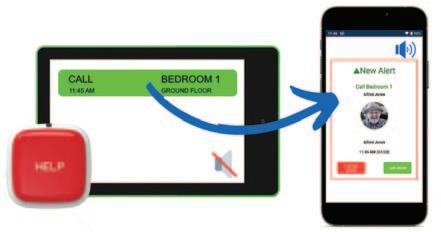
To find out more about Blaucomm NMS, visit www.blaucomm.co.uk/healthcare
See the advert on the front cover for more details.
Fall Savers®, are an experienced market leading healthcare provider of resident safety solutions for over 15 years.
FALL SAVERS ® WIRELESS MONITOR
Eliminate all cables with our new generation falls management solutions!
Upgrade your falls programme with the latest technology from Fall Savers®. The NEW Fall Savers® Wireless eliminates the cord between the monitor and sensor pad. This results in less work for nursing staff, improved safety for patients and reduced wear and tear on sensor pads. Wireless advantages include the ability to use one monitor with two sensor pads simultaneously and support for many new wireless devices.
BENEFITS INCLUDE:
Safer for patients; less work for staff

Bed and chair pads available
One monitor works with two sensor pads Integrates with most nurse call systems
A variety of options, including: Call button Pager Floor sensor mat Wireless door/window exit alerts
TREADNOUGHT ®FLOOR SENSOR PAD
The TreadNought® Floor Sensor Pad is built to last with a durable construction that far out lasts the competition. Our anti-bacterial floor sensor pad is compatible with most nurse call systems or can be used with a portable pager to sound an alert when a person steps on to the sensor pad. Caregivers typically place the sensor
pad at the bedside, in a doorway or other locations to monitor persons at risk for falls or wandering. An optional anti-slip mesh reduces the potential for slippage on hard surface floors.
FEATURES INCLUDE:
Connects directly to most nurse call systems
High Quality anti-bacterial Floor Sensor Pad
Large Size Pad: Measures (L) 91cm x (H) 61cm
Options (sold separately):
Anti-slip mesh for hard surface floors

See the advert on this page for further details or visit www.fallsavers.co.uk.
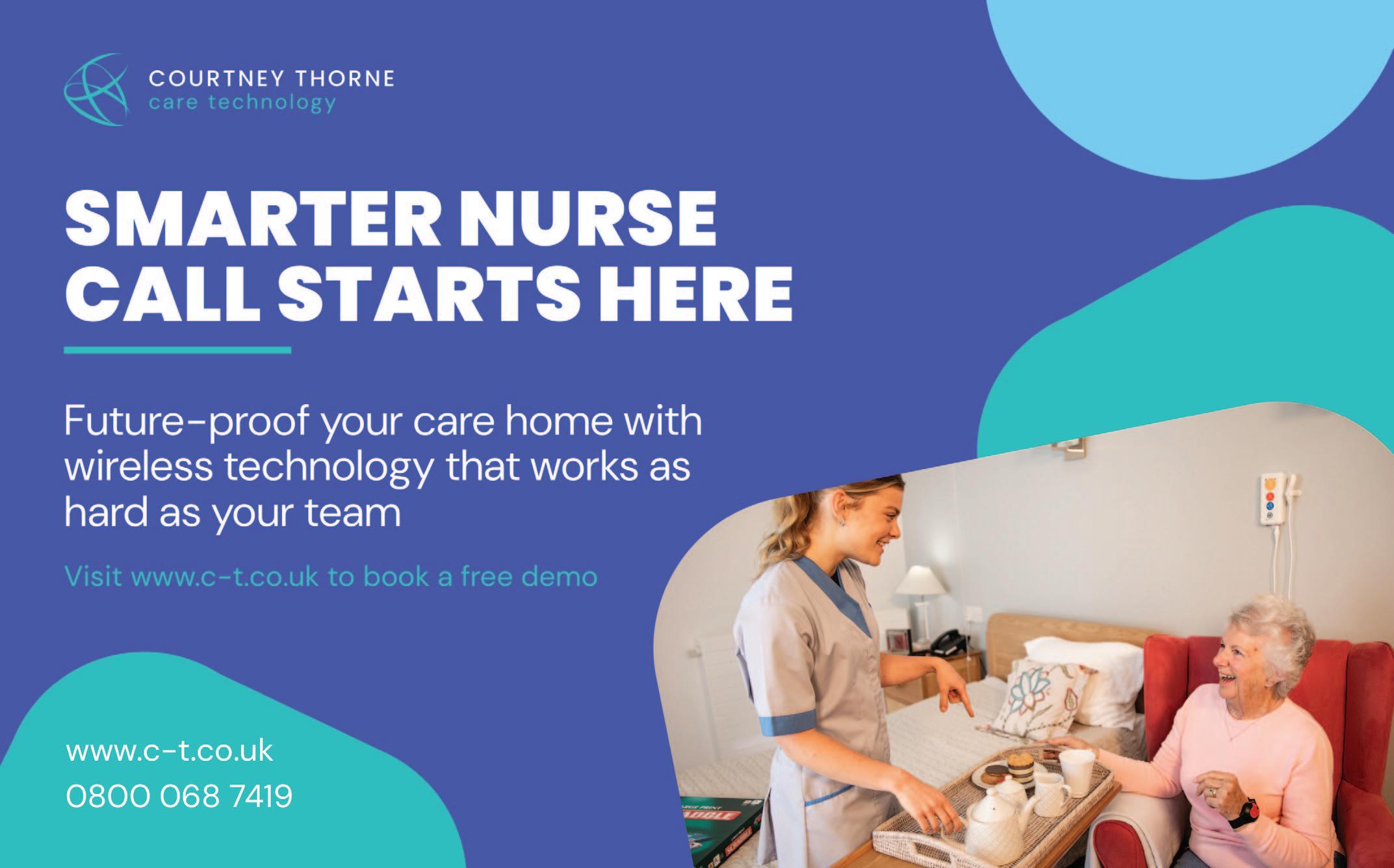
Cyber security is an increasing concern in social care, with data breaches, phishing scams, and cyber attacks putting sensitive information and essential services at risk. However, learning about cyber security can often feel overwhelming, full of jargon, and difficult to apply to everyday situations. That’s where the Digital Care Hub’s new Cyber Game comes in—an engaging, interactive way for adult social care providers to learn vital cyber security skills.
Learning doesn’t have to be dull. In social care, where training is essential but time is scarce, gamification—using game-like elements such as quizzes, rewards, and interactive challenges—makes learning more engaging and memorable. It provides a safe space to learn and make mistakes, increasing engagement, motivation, and knowledge retention. Gamification also allows for instant feedback and supports long-term behaviour change, making it an effective tool for cyber security training.
THE FIRST-EVER CYBER GAME FOR SOCIAL CARE
The Digital Care Hub has launched the first-ever Cyber Game designed specifically for adult social care providers. It offers a fun and practical way to learn about cyber security and data protection, helping care managers, care workers, and other staff members develop the skills they need to keep their organisation safe.
The Cyber Game takes players through real-world scenarios relevant

to social care settings, making it easier to recognise and respond to cyber risks in a safe environment. Whether it’s identifying a phishing email, ensuring secure data sharing, or responding to a cyber incident, players gain hands-on experience that translates directly to their work environment.
One of the biggest challenges in cyber security training is making it relatable. The Cyber Game brings cyber risks to life through realistic characters and workplace situations. Players can take on the role of a registered manager, a data protection lead, or a care worker, each facing different cyber threats.
Each scenario is based on real cyber incidents that have affected
social care providers. The goal is to manage the crisis effectively—containing the damage, notifying the right people, and implementing steps to prevent future incidents. Decisions impact security, time, and cost, requiring players to balance risk and consequences.
WHY GAMIFY CYBER SECURITY TRAINING?
Daniel O’Shaughnessy, from the Digital Care Hub, explains:
“We created the Cyber Game to make cyber security training more accessible and engaging. Gamification encourages active participation and helps staff retain information better, making learning feel rewarding and practical.”
WHAT CARE STAFF SAY
Care staff who tested the game found the scenarios helpful and realistic:
“These are good scenarios – typical and indicative of what may occur and give people an idea of what they need to be thinking about.”
Through interactive decision-making, players experience the consequences of their choices, reinforcing key lessons in a way that traditional training cannot.
TRY THE CYBER GAME TODAY!
The Cyber Game is available online, completely free to play. It’s a great way for care providers to improve their cyber security awareness in an engaging and practical way.
Play the game online at: www.digitalcarehub.co.uk/cyber-game
The delivery of safe care is the paramount responsibility of social care providers. Central to achieving this is the governance framework adopted by service providers. And at the core of this framework are policies and procedures. These enable the provider to comply – and evidence compliance –with relevant legislation and regulations, as well as facilitating best practices, supporting business needs, and assisting in recognising and managing risks.
Providers have a legal duty of care to the people they employ. Policies and procedures should provide clear guidelines to staff on how the organisation operates, as well as informing them of best practices and processes to be followed.

Policies should be reviewed annually as a minimum to ensure they are still fit for purpose and align with legal and regulatory requirements. They should be reviewed not only by
employees of the business, but also by experts in various subject matters (e.g., infection control or medicines management).
For many small- to medium-sized providers, there may not be the in-house skills, knowledge, and experience to complete such a robust annual review. Many choose instead to purchase their policies and procedures from a reputable provider like W&P Compliance & Training, who will also complete reviews and ensure their policies and procedures remain up to date. This way a provider not only ensures they remain compliant; they also benefit from best practice policies and procedures that provide a solid foundation for safe working practices and – ultimately – protect and support service users and staff. Ben Erskine – Director at W&P Compliance & Training www.wandptraining.co.uk | Tel: 01305 767104 See the advert on page 2 for further information.

Training care home staff is vital for delivering high-quality care, especially when managing complex resident needs such as dementia, frailty, and mental health challenges. However, traditional methods often fall short in engaging staff, leaving critical gaps in understanding and preparedness. Innovative approaches, such as game-based learning and peer-to-peer collaboration, are revolutionising training, particularly in addressing the ethical and legal challenges of restrictive practices.
Restrictive practices—measures that limit an individual’s freedom—are sometimes necessary to ensure safety. However, they must be applied with great care, adhering to legal frameworks and ethical guidelines to protect residents’ dignity. A groundbreaking digital training resource, co-designed by Queen’s University Belfast and Focus Games, exemplifies this innovation. The resource uses interactive, expert-driven content to help staff navigate restrictive practices responsibly and effectively.
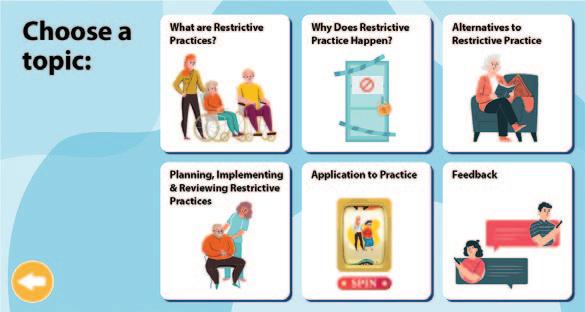
Game-based learning plays a central role, transforming topics like restrictive practices into engaging,
real-world scenarios. Simulations allow staff to explore ethical dilemmas, practice decision-making, and test alternative solutions in a safe, low-pressure environment. This approach enhances critical thinking, teamwork, and retention of essential knowledge.
Peer-to-peer learning further strengthens the training by encouraging staff to share experiences and insights, fostering collaboration and practical problem-solving. This creates a dynamic learning environment where staff feel supported and empowered to deliver compassionate care.
By integrating these modern approaches, care homes can elevate training into a meaningful experience, equipping staff to balance safety with residents’ autonomy and dignity. At Focus Games, we are proud to offer tools designed to empower care home teams through innovative training. Visit www.FocusGames.com or email info@focusgames.com to learn more about our Restrictive Practice resource and how it can enhance care home outcomes for residents and staff alike. For further information see the advert on the front of this issue
By Chris Sparling, Senior Director,

In the care industry, reputation is everything. Choosing a care facility or in-home provider is a deeply personal decision based on location, budget and individual needs. It’s also based on trust. Families rely on providers to deliver quality care, so a strong reputation is essential. In the UK, adult care homes are rated by official bodies like the Care Quality Commission (CQC) and by residents and their families. However, as the CQC undergoes reform, personal feedback and reviews have become critical in offering an unfiltered view of the resident experience.
Selecting a care facility or in-home provider is a deeply personal decision based on trust, location, budget, and individual needs. Families rely on providers to deliver quality care, so a strong reputation is essential.
EMERGING TRENDS IN THE CARE INDUSTRY
The growing reliance on authentic reviews offers facilities an opportunity to set themselves apart and offer the insights prospective patients seek. Yet, a recent research report reveals that in-home care providers average just nine reviews annually, with the top 20% receiving fourteen reviews. This indicates a gap in review engagement that providers can turn into an opportunity.
The difference between a trusted care facility and a questionable
one often comes down to how effectively a provider manages its reputation. Managing various listings and online reviews can weigh heavy on a facility with stretched resources.
ENCOURAGING AUTHENTIC REVIEWS
The true measure of reputation comes from the experiences shared by current and former residents and their families. Proactively soliciting feedback is powerful - 22% of the public report they leave reviews when asked. A steady flow of fresh feedback prevents outdated sentiment from impacting perception. In a market with such high demand for care home places, this could have serious consequences.
Reviews need to be managed and cultivated as part of continuous improvement within customer service, as they’re one of the primary indicators of quality.
BUILDING TRUST WITHIN THE COMMUNITY
It is important that reviews are managed transparently, so providers can build trust with their current and future patients. The same report found that top-performing care providers respond to over 80% of reviews, while the industry average lags at 68%. However, these numbers drop significantly for negative reviews, which is a missed opportunity.
Acknowledging both positive and negative feedback is crucial for building credibility. Doing this will reassure prospects that a facility is open to listening and proactively addressing concerns. Filtering reviews to exclude the negative ones presents an unrealistic image and will deter prospects evaluating whether a facility is the right one for them.
PROMOTING RESIDENT AND FAMILY SATISFACTION
Responding to online feedback is an extension of customer service quality, and many prospective patients seek this level of engagement. By providing thoughtful and timely responses, care providers can
at
increase customer satisfaction and strengthen their overall reputation.
Facilities that listen to residents and their families, and take proactive steps see improved satisfaction and stronger relationships with those they serve. Addressing negative reviews can even turn challenges into positive outcomes.
Industry leading providers are already leveraging technology to maximise the impact of online reviews. Many automate review responses, ensuring that every reviewer feels respected and appreciated. This approach also eases the pressure on internal resources by streamlining the feedback response process.
Moreover, facilities can use data from reviews to identify strengths and weaknesses, addressing areas of concern proactively. For those with smaller budgets, data-backed insights help allocate funds effectively, so that the focus remains on what matters most to residents and families. Whether that’s staff excellence or a provider’s welcoming environment, marketers should highlight these strengths in their promotional materials, and use customer feedback as a way to validate them.
Care providers should embody their commitment to people-centred service in their online interactions, regardless of whether feedback is positive or negative. Reputation management is a crucial part of this commitment, as it ensures that patients feel valued and heard, while offering sought-after insights to those trying to make big decisions.
With the right tools and strategies in place, care providers can harness the power of online reviews to build trust, improve satisfaction, and build a lasting reputation that resonates with both current and future residents.

In an age where data breaches and cyberattacks are increasingly common, cybersecurity is a critical priority for all organisations, including nonprofits and charities. Protecting sensitive data—such as donor records and beneficiary details—is a round-the-clock responsibility that demands both organisation and vigilance. This is where Security Operations Centre (SOC) systems come into play, offering a powerful way to strengthen your defences, even on a tight budget. WHAT IS A SOC SYSTEM?
A Security Operations Centre (SOC) is a centralised framework—often a combination of software, tools, and processes—designed to monitor, protect, and manage an organisation’s information systems and networks against cyber threats. Whether through in-house teams or external ser-
vices, a SOC uses advanced technologies to detect, analyse, respond to, and prevent cybersecurity incidents in real-time. Why Are SOC Systems Important?
The consequences of a successful cyberattack can be catastrophic, from financial losses to reputational damage, and the risks are growing each year. Cybersecurity is no longer a one-off task but a complex, ongoing effort requiring expertise, proactive monitoring, and rapid response capabilities. For nonprofits and charities, where budgets are often stretched thin, a SOC system offers an efficient solution. It provides 24/7 network monitoring, identifies vulnerabilities before they’re exploited, and helps mitigate threats swiftly, reducing the likelihood of a breach.
BENEFITS OF SOC SYSTEMS FOR NONPROFITS AND CHARITIES
1. Proactive Threat Detection and Response: Equipped with sophisticated tools, SOCs can spot potential risks early and respond immediately, minimising damage.
2. Compliance Support: By monitoring data protection practices, SOC systems help charities meet standards like GDPR or CQC requirements, avoiding costly penalties.
3. Unified Security Management: Many SOC solutions integrate with popular antivirus and network security tools, letting you oversee everything from a single platform.
4. Scalable for All Sizes: Whether your organisation is large or small, SOC systems can adapt to your needs.
SES SOC FREE SYSTEM OFFER
SES Computers, with over 20 years of success in the healthcare sector, believes it’s time to give back. We’re excited to announce a unique opportunity for UK charities and nonprofits: free access to our Security Operations Centre (SOC) services.
No
East Cheshire Hospice plays a vital role in providing palliative care services to the community of Macclesfield and beyond. Like many organisations in the healthcare sector, the hospice needed to ensure that every pound was spent wisely and that internal processes supported rather than hindered their critical mission.
Faced with an increasing volume of invoices, a complex departmental structure, and the need for tighter financial controls, East Cheshire Hospice turned to Compleat Software for a solution. The result? Greater efficiency, full visibility into spend, and a major reduction in manual processing, freeing up valuable time and resources to focus on patient care.
THE CHALLENGE
Before adopting Compleat’s solution, East Cheshire Hospice was processing approximately 3,500 invoices each year manually. Each invoice needed to be coded, approved, and uploaded to their Sage 50 finance system. With over 35 departments, each with their own purchasing requirements, the process was time-consuming, prone to human error, and lacking in real-time visibility.
empowered budget holders to make informed, responsible decisions based on live financial data.
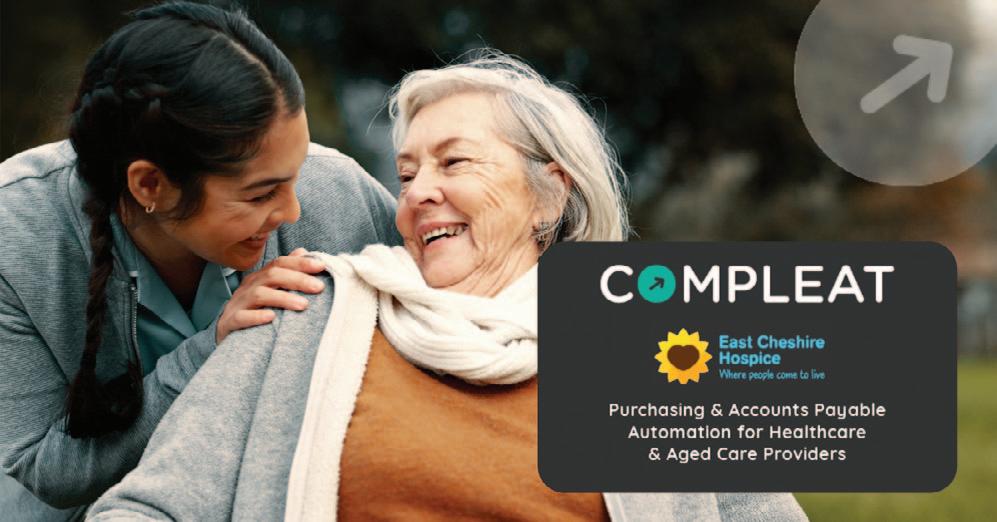
Manual AP processes made it difficult to track spending accurately, allocate costs appropriately, and ensure timely approvals. Staff often had to chase budget holders for signatures, delaying invoice processing and increasing administrative burden.
Recognising the need for a smarter, more streamlined approach, East Cheshire Hospice sought a solution that would integrate seamlessly with Sage 50, reduce manual workload, and provide better control and oversight of departmental spending.
THE SOLUTION
East Cheshire Hospice implemented iCompleat, Compleat Software’s purchase-to-pay (P2P) solution. Designed to automate AP processes while offering a simple, intuitive user experience, iCompleat ticked all the boxes.
Amazon Business was the standout feature that allowed their 45 purchasers to order supplies directly through a familiar online shopping experience, whilst maintaining compliance with internal financial controls. Orders placed via Amazon Business are automatically routed through iCompleat for approval, ensuring spend is tracked and coded correctly from the outset.
Additionally, 47 approvers across the organisation can now review and approve purchases in real-time, using any device, from any location. This level of flexibility has dramatically improved turnaround times and
From a technical perspective, the implementation was seamless. According to the Head of IT at East Cheshire Hospice:
"From an IT and budget holder perspective, iCompleat is very user-friendly and efficient to use. Raising orders and integration with Amazon Business is a great feature that I regularly use. The platform is reliable, easy to set up with Sage 50, and Compleat are always releasing new features to make it better."
The impact of AP automation has been significant for East Cheshire Hospice. By removing manual processes and digitising purchasing, they have:
Processed over 3,500 invoices annually automatically through iCompleat into Sage 50, saving hours of manual data entry.
Empowered 45 purchasers across the hospice to buy what they need quickly, without compromising compliance or budget control.
Enabled 47 approvers to review and authorise spend efficiently, with complete visibility over budgets and commitments.
Streamlined purchasing across 35+ departments, ensuring spend is correctly allocated, coded, and reported in real-time.
Instead of chasing paper trails or struggling with manual approvals, finance staff now have a clear, consolidated view of all spend across the organisation. Purchasers get the supplies they need faster, whilst budget holders can make better-informed decisions without delays.
Most importantly, the hospice can redirect the time and money saved through process improvements back into delivering outstanding patient care.
East Cheshire Hospice’s success story shows that smart, user-friendly digital solutions can make a profound difference in healthcare settings. By partnering with Compleat, they have not only improved operational efficiency but also laid a strong foundation for future growth and innovation.
In a sector where every resource counts, East Cheshire Hospice has proven that automating AP processes is not just about saving money, it is about reclaiming time, improving control, and empowering their teams to focus on providing extraordinary care.
Download Full Success Story Here

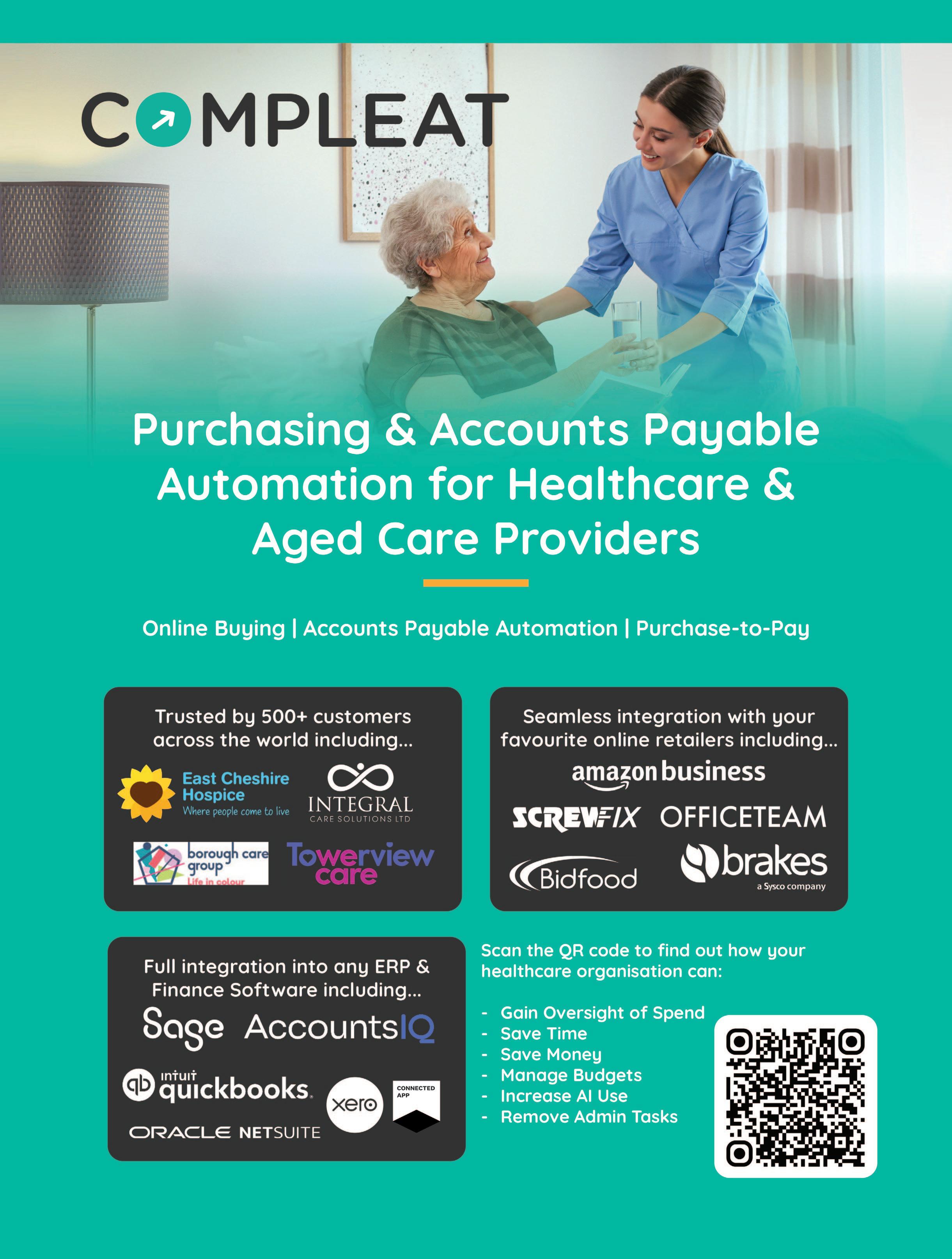
The social care sector has come a long way when it comes to digital transformation, and artificial intelligence (AI) is a big part of its future. While AI is still finding its place in many care settings, the impact it can have is huge.
Here’s a closer look at why AI is set to make waves in social care:
1. BOOSTING EFFICIENCY
AI can help handle those resource-draining tasks in seconds. Whether it’s crunching a mountain of data, summarising care notes, or suggesting next steps, it frees up your team to do what they do best.
It can also improve communication, such as helping new team members quickly access policies or answer routine questions without waiting for assistance. By handling these background tasks, AI allows organisations to redirect resources to other core priorities.
2. ENSURING PERSON-CENTRED CARE
AI can support your teams when providing persona-centred care by analysing data over time, so they can build tailored plans that align with each individual’s goals, preferences, and abilities. It can even predict future needs, flagging issues before they arise so your team can act proactively.
3. ENHANCED MONITORING
Care organisations often operate round-the-clock, and AI can offer
Pass by everyLIFE
PASS supports over 1,000 care providers every day, giving them access to market leading care management tools hand in hand with unlimited 24/7/365 support from our dedicated and friendly PASS team.

Assured by NHS Transformation Directorate, PASS provides a secure platform that allows you to plan, record and evidence the care you deliver. The only assured solution built specifically for the home care sector, it provides comprehensive real-time functionality and allows you to share progress against outcomes with customisable, exportable reports.
CARE PLANNING AND ROSTERING FROM A SINGLE PLATFORM
real-time monitoring to support this. For example, AI can highlight subtle behavioural changes, like someone sleeping poorly or becoming more withdrawn. These insights can alert your teams to potential concerns early, which means better, faster decisions can be made to support your clients.
For organisations, this level of tracking ensures care quality stays high, without adding to the workload. It’s like having an extra layer of support that’s always on duty.
4. EMPOWERING TEAMS
AI is here to help empower your care teams, not replace them. AI tools can provide instant recommendations or resources, which could help your newer employees confidently manage unexpected situations. Similarly, AI can assist with summarising care notes or giving quick access to up-to-date best practices, helping your teams provide the high-quality care they work so hard to deliver.
5. OPTIMISING COSTS
One of the big wins of AI is its ability to do more with less. By automating tasks and making resource allocation more efficient, it can help organisations manage tight budgets without compromising on care.
AI can even help reduce staff turnover by easing workload pres-
To meet the wider needs of the PASS community All-in-one PASS has recently been launched , bringing advanced rostering functionality to our established digital care planning platform. As a result advanced staff scheduling, payroll and invoicing functionality is now seamlessly linked with care planning and reporting, reducing the technical complexity, risk and overhead associated with integrating two separate systems.
As a result, PASS now provides an all-in-one suite of digital care management tools, available from a single platform, designed to: Save you time
Increase the efficiency of your teams
Improve the quality of care
Deliver better outcomes

Our commitment to the continual evolution of PASS is further illustrated by the addition of GP Connect. The first product of its type to offer this feature, PASS is still one of only a handful of digital care
sures, which means savings on recruitment and training costs too. Plus, because AI solutions are scalable, it can adapt to your organisation's needs.
THE FUTURE OF AI IN
AI in social care isn’t about replacing people with tech. It’s about giving your teams the time, insights, and tools they need to focus on the people they care for. That’s why OneAdvanced AI, the first UK hosted fully secure, private AI tool for businesses, was created. OneAdvanced AI can help care providers improve efficiency, deliver person-centred care, and empower teams, all while safeguarding your data. This marks a significant step towards a more innovative and sustainable future in social care.

Find out more at: www.oneadvanced.com/ai
management solutions to have completed this NHS Digital integration, and is the only one offering it to the home care market. PASS GP Connect provides authorised social care staff with realtime access to their client’s GP records. It makes medical information available when and where it is needed, leading to improvements in both care safety and outcomes:
Visibility of allergies, vaccinations and medications, especially useful for clients unable to reliably share their personal information Using medical information to inform care planning
Ensuring that the right medication is delivered to the right person in the timeliest manner. In one case, this allowed the administration of antibiotics on a Friday evening, aiding the service user’s swift recovery from infection
Available to all PASS users at no additional cost, PASS GP Connect is significantly more efficient than waiting for a GP response. It’s also a positive step forward on the path to the DHSC’s goal for widespread digitally enabled care and is in full alignment with their ambition for joined up care for everyone.
Get in touch: www.everylifetechnologies.com hello@everylifetechnologies.com





By Fozia Iqbal, Senior Business Immigration Solicitor at

Reports of exploitation, including unfair wages and poor working conditions, have drawn increased government attention to the treatment of overseas workers in the care sector. With a critical staff shortage, many businesses depend on international recruitment to fill vacancies, adding to concerns about worker welfare.
The Home Office has intensified its crackdown on non-compliant employers, with severe consequences for those who fail to meet legal and ethical obligations. Compliance with immigration and employment laws is no longer just an administrative requirement but an essential strategy for protecting business operations, reputations, and, most importantly, the wellbeing of workers.
To hire overseas care workers legally, care business owners must navigate a complex regulatory framework. They must obtain a sponsor licence issued by the Home Office, through which they can sponsor overseas health and care workers for a Skilled Worker visa, which is the primary route for recruitment, but this visa comes with strict sponsorship obligations. Employers must make sure that all hired workers have valid visas and are working in compliance with their visa restrictions and their sponsorship. Employers would need to implement correct right to work check policies and ensure they are meeting minimum salary requirements, can provide work that meets the contractual hours of work offered, and the employees are undertaking duties which fall strictly within the role for which they have been sponsored.
Additionally, all employers must ensure that their employees’ employment conditions align with legal requirements, for instance, providing safe working environments, adequate training, and following proper recruitment procedures. Fundamentally, overseas workers must receive their full rights and entitlements such as fair pay, breaks and leave, with no discrimination. Any deviation from these standards can place a business at significant risk.
THE GOVERNMENT’S CRACKDOWN ON NON-COMPLIANCE
The UK government is taking decisive action against care providers who fail to protect overseas staff. Increased inspections and audits are being carried out, with penalties ranging from significant fines to licence revocations and outright business closures. Employers found guilty of exploitation or modern slavery
offences face criminal prosecution, and businesses that lose their sponsor licences will lose their sponsored workers and be unable to hire overseas staff in the future.
In addition to heightened inspections, the Home Office is working closely with other regulatory bodies to share intelligence and data on non-compliant practices. This collaboration enhances the government’s ability to detect irregularities and enforce penalties swiftly, ensuring that any rogue employer faces immediate consequences. Such coordinated efforts not only deter potential offenders but also reassure compliant businesses that the sector is being rigorously monitored.
This increased enforcement underscores the necessity for care home owners to maintain high standards of employment practice. Failing to comply with legal obligations does not only jeopardise individual businesses but also tarnishes the reputation of the sector as a whole.
ETHICAL EMPLOYMENT:
Beyond legal obligations, treating overseas workers ethically is a crucial element of running a successful business. Providing fair pay, ensuring reasonable working hours, and fostering a safe and supportive environment contribute to higher job satisfaction and better staff retention. In an industry where continuity of care is essential, a stable and motivated workforce is invaluable.
Ethical employment also enhances a business’s reputation. Care businesses known for fair treatment of staff find it easier to attract both workers and clients. By proactively adopting fair employment practices, organisations safeguard their operations from legal risks and cultivate a more committed and engaged workforce.
To protect your business and your staff, you should regularly review your employment practices. By conducting internal audits, training staff on compliance obligations, and seeking professional legal guidance, you can help ensure ongoing adherence to the law. Being proactive in compliance not only mitigates legal and financial risks but also encourages a positive workplace culture.
Looking to the future, it is vital for care providers to establish a culture of continuous improvement in compliance. Regular training sessions, clear communication of legal updates, and robust internal controls can help your business stay ahead of regulatory changes. Embracing technology to monitor recruitment and employment processes further supports transparency and accountability, ultimately benefiting both your staff and the reputation of your business.
As the government continues its strict stance on non-compliance, you should take immediate action to ensure your recruitment and employment processes align with legal and ethical standards. Now is the time to assess your business’s current practices, implement necessary improvements, and secure the future of your business by treating overseas workers with the fairness and dignity they deserve.
By Katarina Morgan, Associate Solicitor
at Taylor Walton Solicitors (www.taylorwalton.co.uk)

An issue which frequently arises for care home operators is when they need to make a financial claim against the estate of a deceased resident for unpaid or outstanding fees. This can be complicated if the former resident was married but most of their assets are tied up in the marital home which their spouse still lives in. Another common situation is where there are insufficient funds left in the estate and the former resident would have qualified for Local Authority funding had they survived.
To manage these situations effectively, it is best practice to maintain good records of the contractual terms agreed, of fees due and invoices raised and what is outstanding. This helps prevent parties disputing the quantity of the bills, or where executors were unaware of what had been agreed.
It is hoped the care home operator has a good rapport with the deceased’s family so they can sensitively approach them with the outstanding invoices and ask them to be included as debts of the Estate. This helps probate practitioners and will assist with debt recovery when the Grant of probate has been obtained. Thankfully in recent months it is now a faster process following the delays which built up following the Covid pandemic. If the deceased owned a property (either under marriage or not), then there may be a right to pursue the debt against their asset. It would need to be considered if they died with a Will, whether a life interest trust was created under that Will (i.e. if people are still living in the house), and how the property was
owned and how much of it was owned by the deceased, whether there is any outstanding mortgage or equity release scheme in place. It is for this reason why good contractual terms need to be set out clearly and what happens in these circumstances.
If there are insufficient funds in the Estate, then the Estate will be insolvent. This means that the debts will be paid in a certain order:
o Secured creditors: mortgages or secured loans
o Funeral expenses: reasonable and proportionate to the size of the Estate
o Testamentary expenses: administrative costs
o Preferred and preferential debts: employee wages for example (not likely to apply)
o Unsecured creditors: care home fees, bank loans, other debts
o Interest on unsecured loans
o Deferred debts: informal loans between family members
If Local Authority funding may have been available, then the administrator of the deceased’s Estate (executor or administrator) may be able to make a retrospective claim. They will have to apply to the Integrated Care Board (ICB) which is the NHS body that assesses eligibility for NHS Continuing Healthcare funding where there is a need. That person will need to contact the ICB for guidance on how to deal with previously unassessed periods of care. It is likely that this may take a number of weeks if not months to be resolved and it would likely to be challenged given the universal squeeze on public budgets. Prevention of debts building up is always the best option, but it is not always avoidable. Ultimately having good, clear contractual terms which explain what has been agreed in terms of fees and when they can expect to be recovered and how is essential for every care home operator. Each case will of course depend on its
On-Demand Pay is now offered by almost a third of care providers in the UK. But why?
For many employees, payday isn’t just about receiving their earnings –it’s about catching up. Covering overdue bills, managing unexpected expenses, and paying off debts such as credit cards. With nearly 1 in 4 workers unable to pay an unexpected bill of just £100, financial stress is a growing challenge directly impacting businesses and their employees alike.
On-Demand Pay, also known as Earned Wage Access, allows staff to access some of their earned wages before payday. All without impacting their employer’s cashflow or payroll processes.

In addition to supporting staff, there are many tangible business benefits for care providers who opt to introduce this fast-growing employee benefit. Notably, by rewarding overtime more quickly you incentivise uptake; significantly lowering agency spending as in-house staff are motivated to cover more of the shift rota themselves.
HELPING EMPLOYERS HELP THEIR EMPLOYEES
Level are On-Demand Pay specialists for the care sector, working with the likes of Agincare, Home
Instead, Bluebird, Hollybank Trust and Bracebridge Care Group, to name a few. We understand the unique
challenges of the sector – from managing high staff turnover, to the nuances of franchising and dealing with agencies.
“We are really loving Level so far and our staff have nothing but praise for it. It’s also helping to cover our rotas as staff now have instant access to any overtime they may do rather than having to wait” – Bluebird Care. On-Demand Pay helps employees manage their finances without resorting to costly overdrafts, credit cards, or payday loans. For example, one of Agincare’s carers said that:
“Things have been a struggle as I'm a single parent. When I had a car issue it became very useful to be able to access my pay early.” SEAMLESS INTEGRATION WITH PAYROLL & WORKFORCE
Level’s On-Demand Pay is a market-leading solution. With existing integrations with many of the UK’s leading HR, rota and payroll systems, Level can offer a fully automated solution. Integrations with software like Sona, IRIS, Birdie, SAP, Humanforce and Planday make the setup and go-live process quick, simple and easy. This means you can offer staff flexibility without adding an extra administrative burden on your payroll team. For further information, visit www.levelft.com
"23 years, operating 4 Devon Nursing homes, has been pretty tough, as anyone in social care, knows, only too well. And if it was hard already, after 2024 budget, it's just got harder.

Anyway, at heart, I am just customer of Eden Alternative, and it was a stroke of luck to come across this whilst on holiday in New Zealand in 2009. It started in USA in 1994 and now runs in 22 countries.
The fact that I am now involved with this not-for-profit organisation (in the UK area) came about when one of the 2 main UK directors died suddenly just before Covid. But it's something I have run with for 11 years to help make 'vision' a reality, not a struggle. So, being both a customer and helping the admin seems quite natural.
It is a modern philosophy of care, but moreover, it's a pro-
gramme that is straight forward, tried and tested for 30 years and really works.
Its member care organisations generally become trainers for their own teams, and run it themselves. The programme is run in person over 2-3 days or online 1 hr a wk for 7 weeks. You choose. It addresses loneliness, helplessness and boredom and operates through 10 principles to underpin 7 critical domains of wellbeing.
Moreover, it's effective, transformational and really works. As residents, and team members wellbeing, matter so much , it's a must, in my opinion.
Geoffrey Cox Southernhealthcare.co.uk eden-alternative.co.uk"

Global assists clients throughout the U.K. who specialise in the healthcare sector to achieve their objectives of purchase, development and refinance.

We have organised over £1.8bn for clients in the past 30 years, providing clients with competitively priced funding to refinance existing debt, ease cashflow and develop businesses further.
From helping clients make their first purchase through to allowing groups to grow significantly in size we assist at every stage of your business expansion. Every proposal is individual and deserves to be treated that way, so we hope you will allow us to be of assistance to you and call us to chat through your plans and requirements, I am sure we will be able to tailor a facility to your requirements.
Call us on 01242 227172 or e-mail us at enquiries@globalbusinessfinance.net
